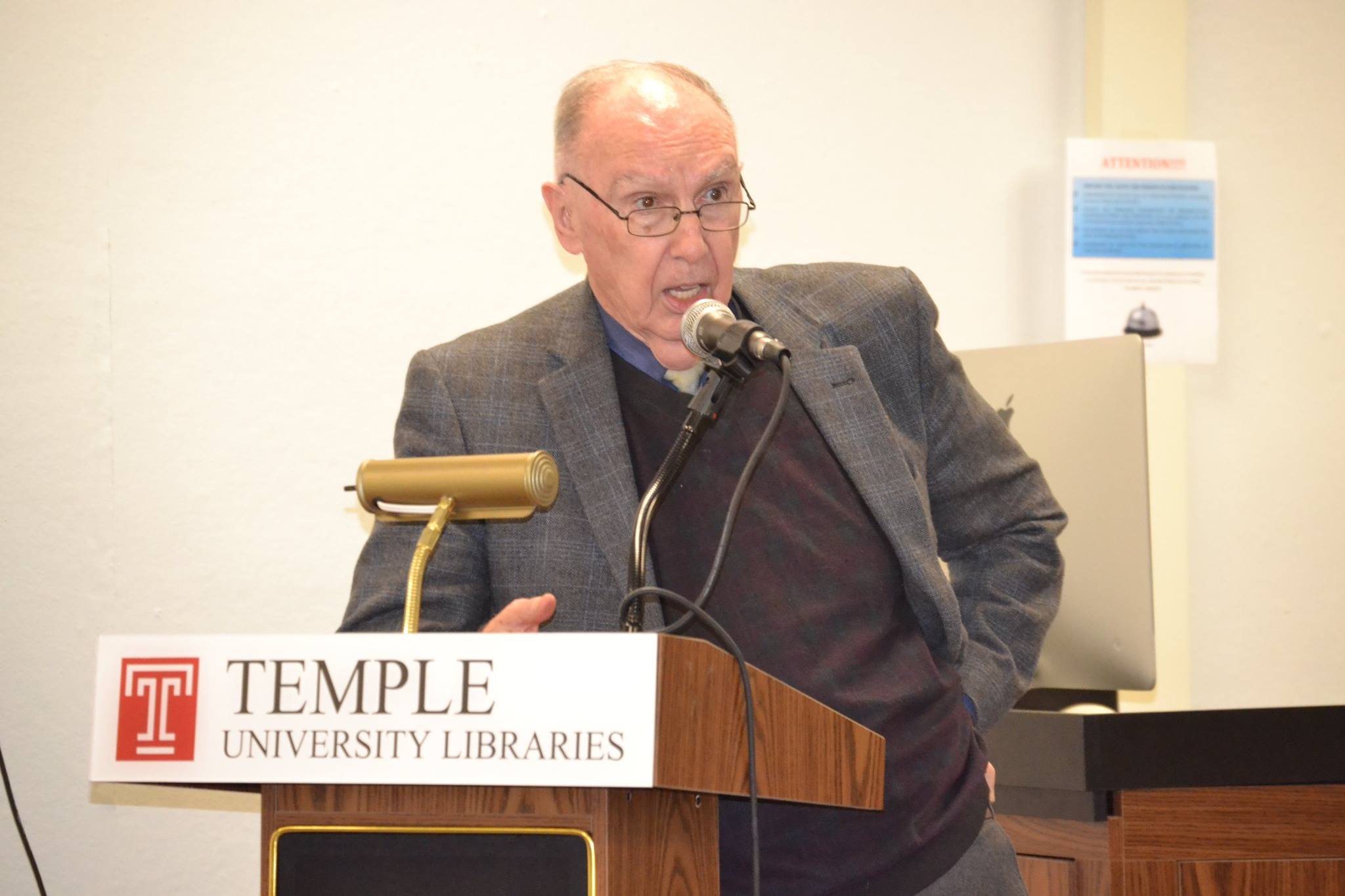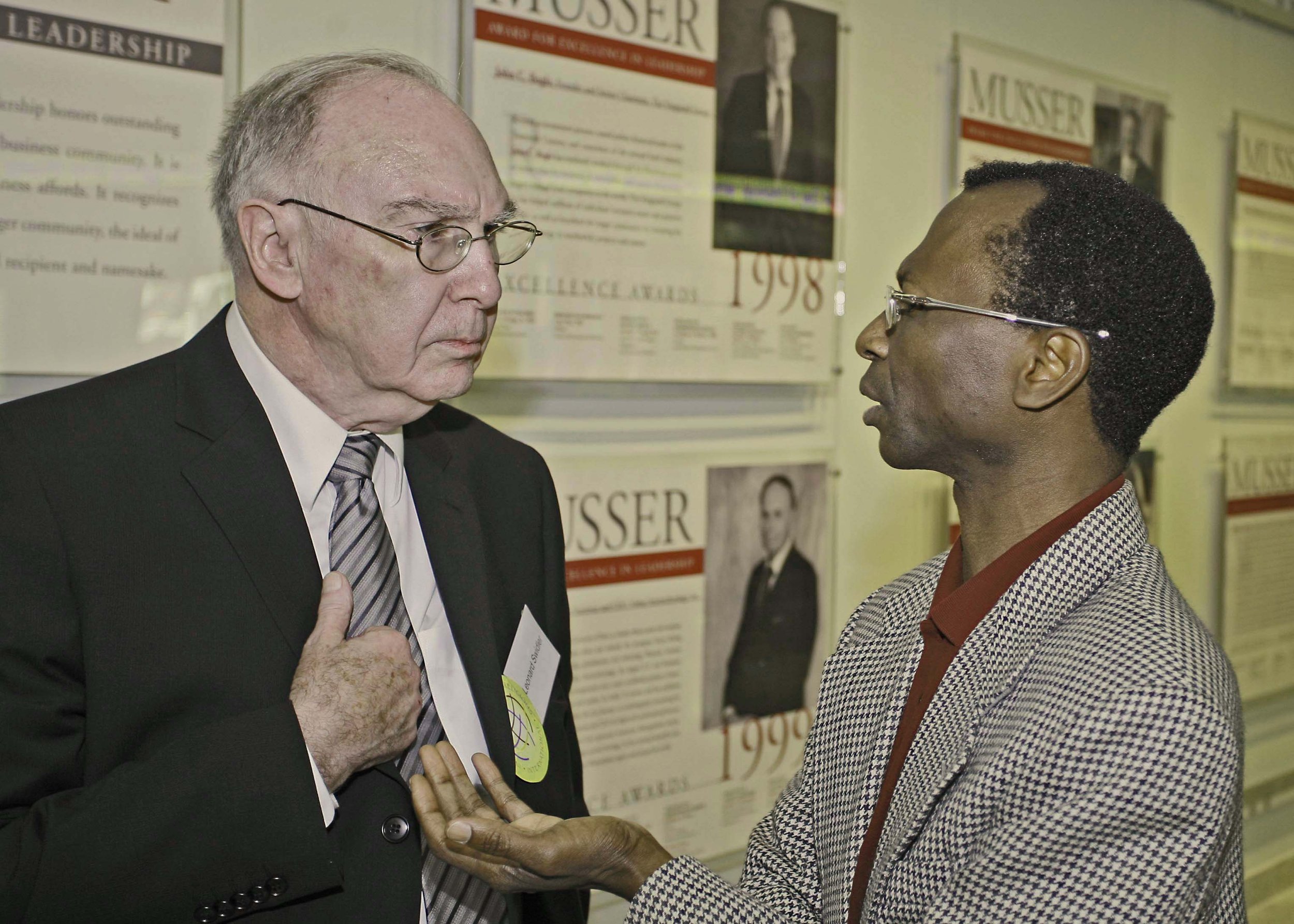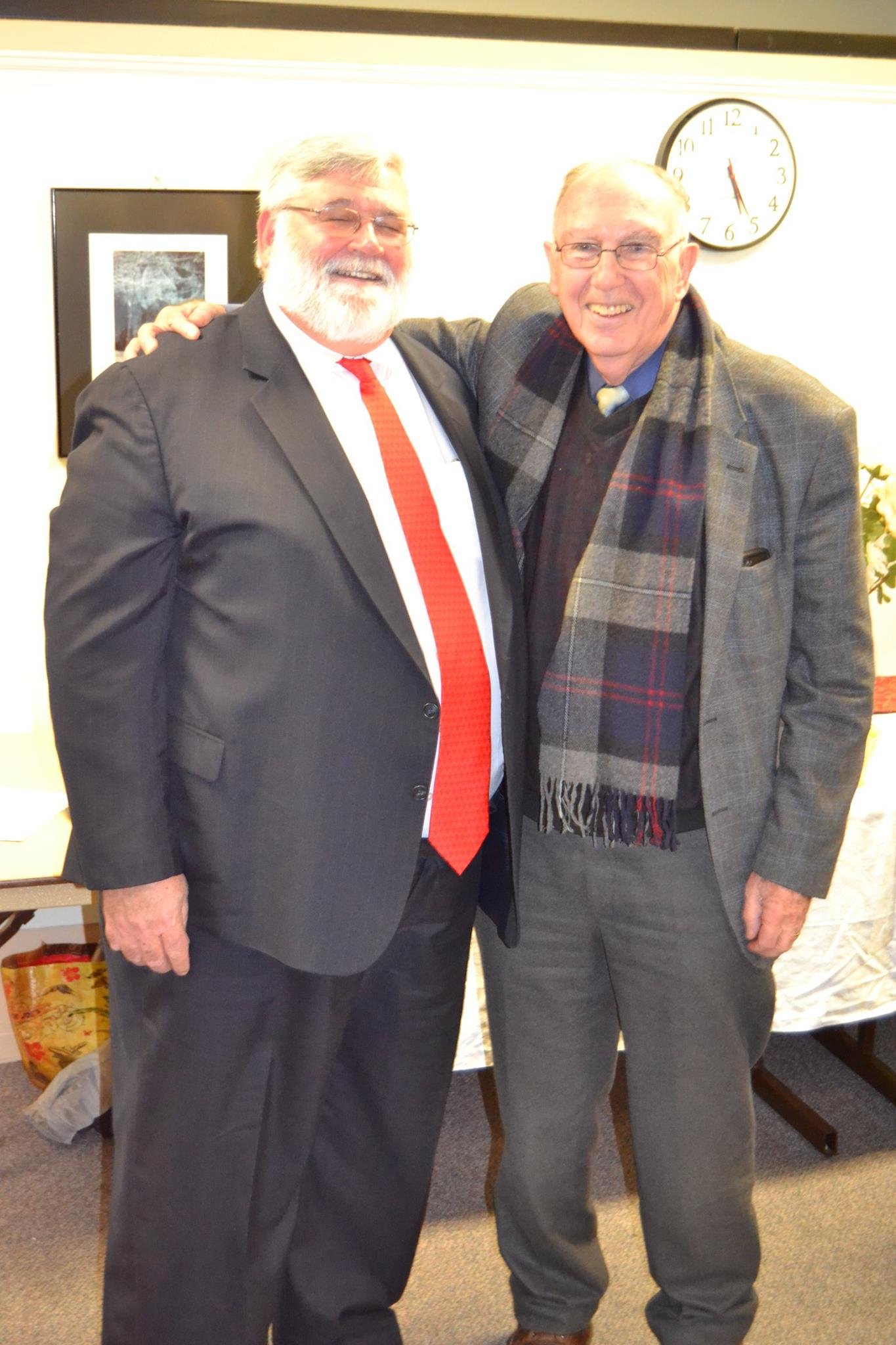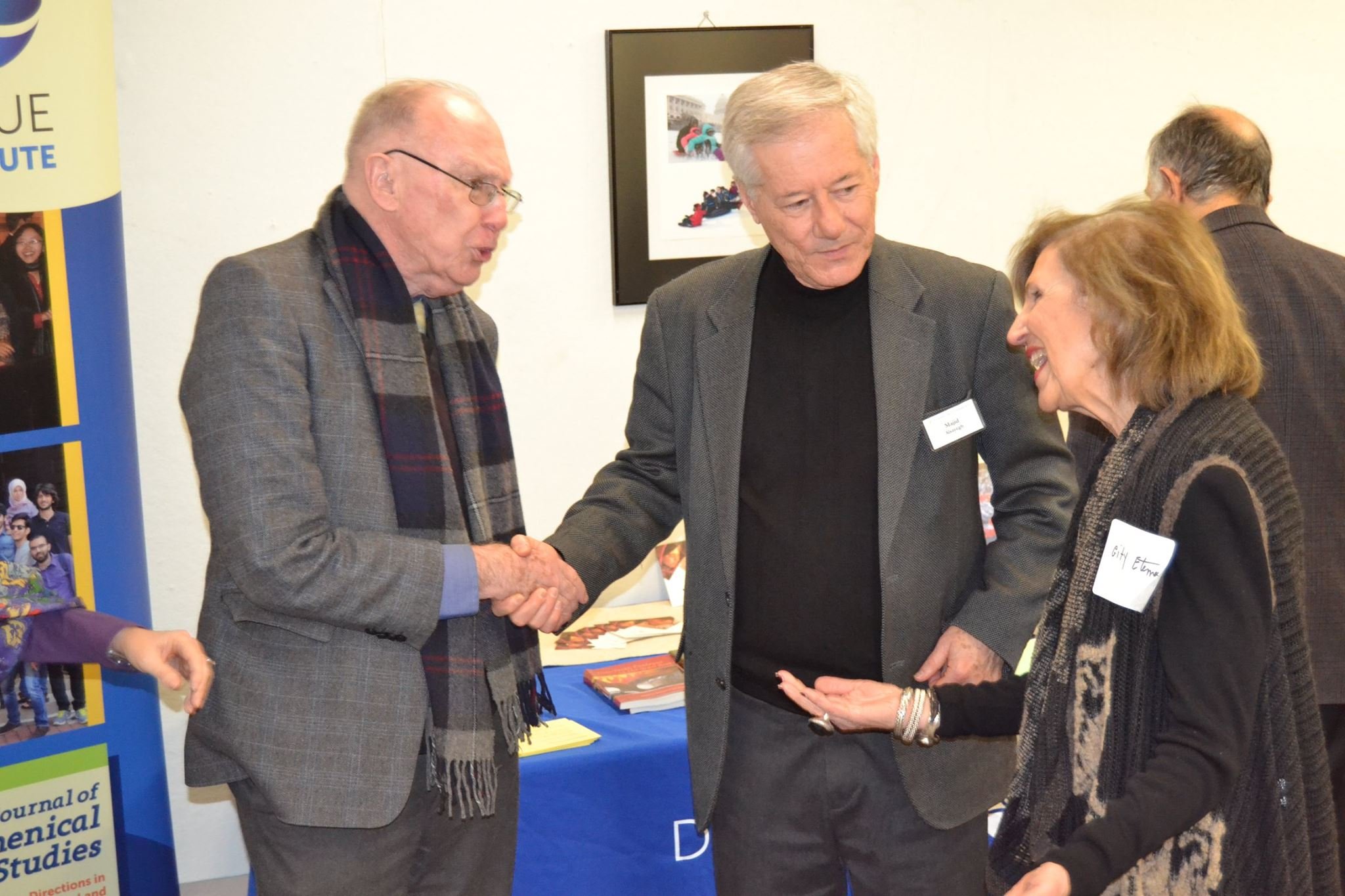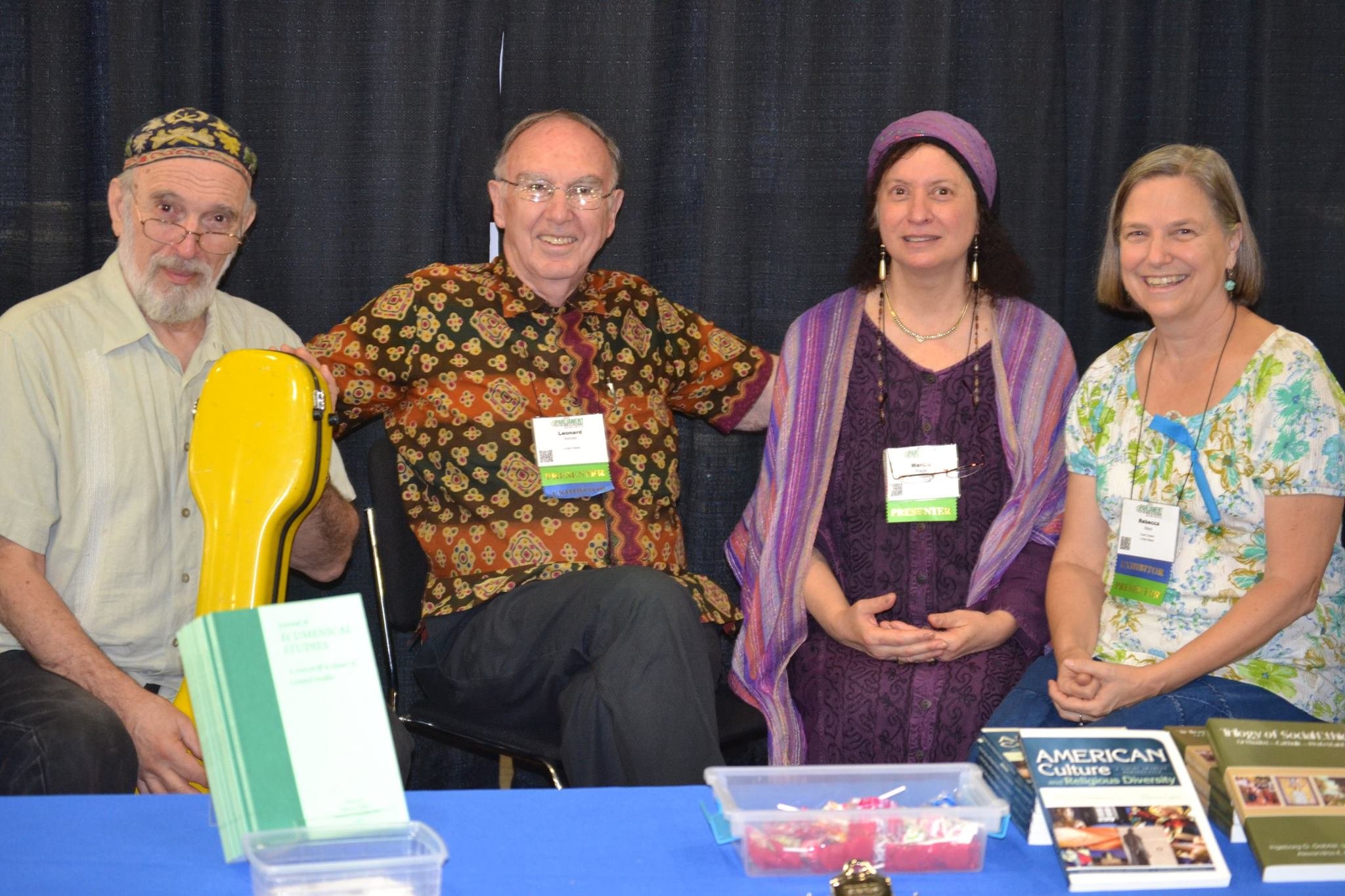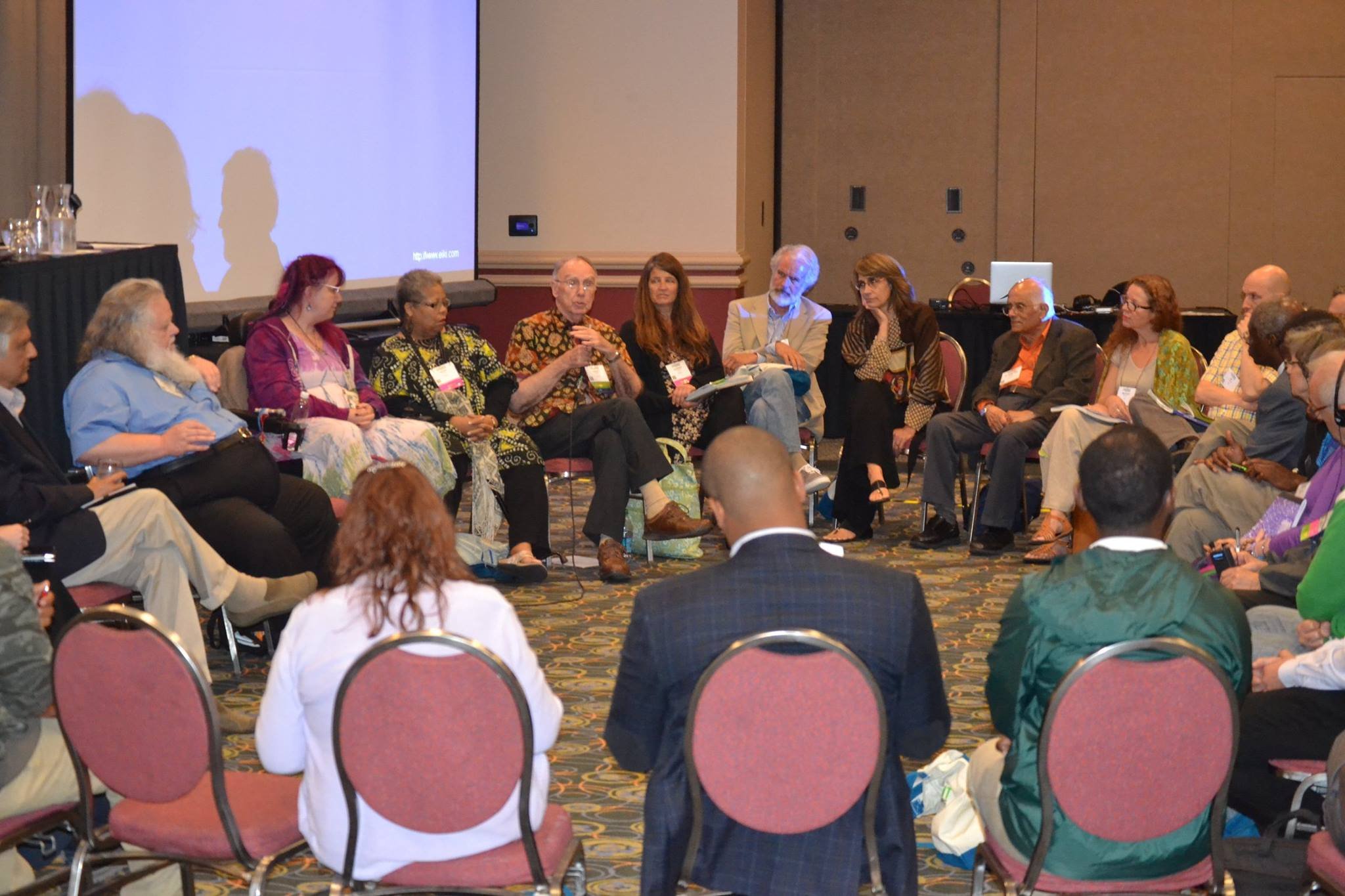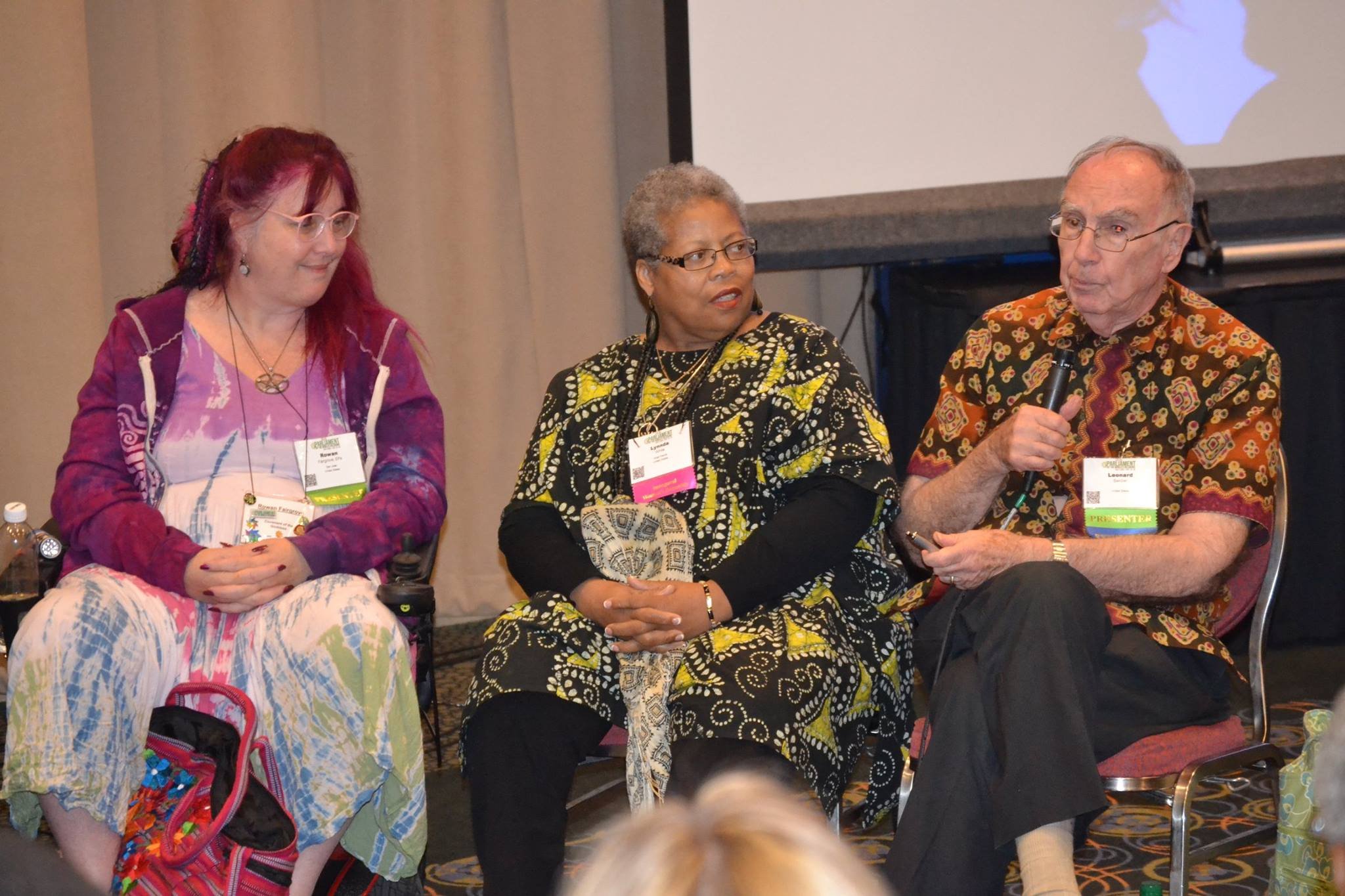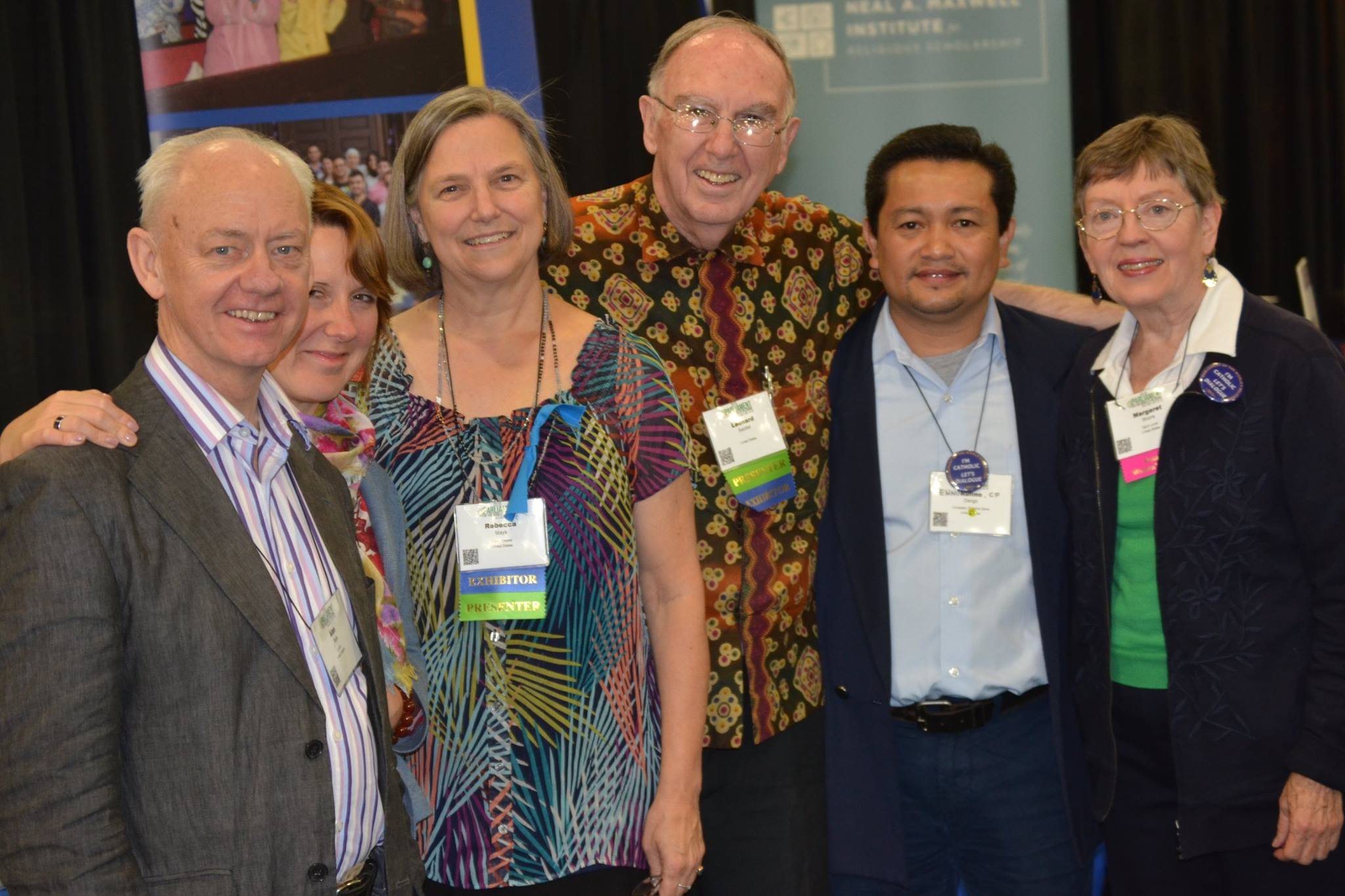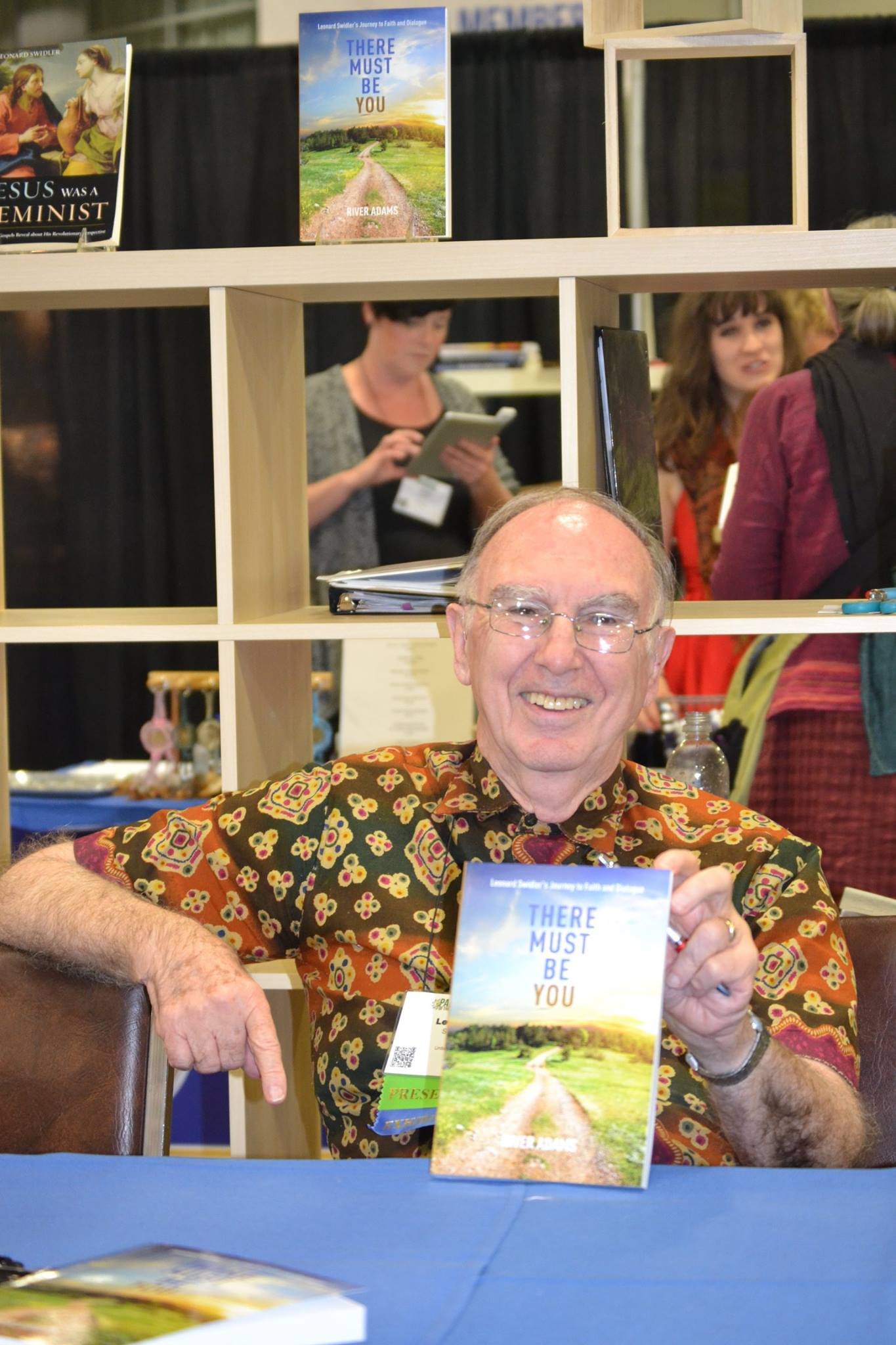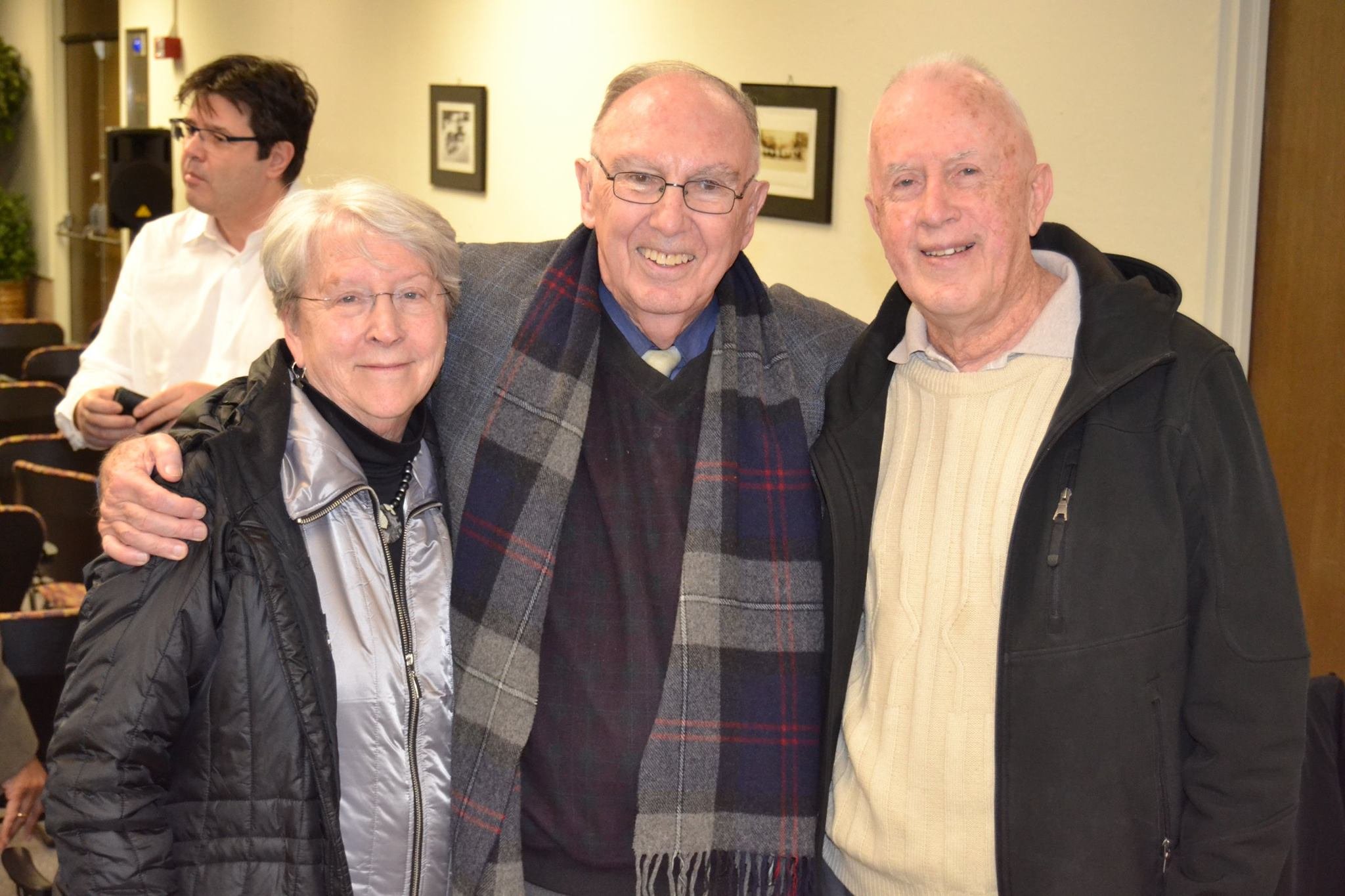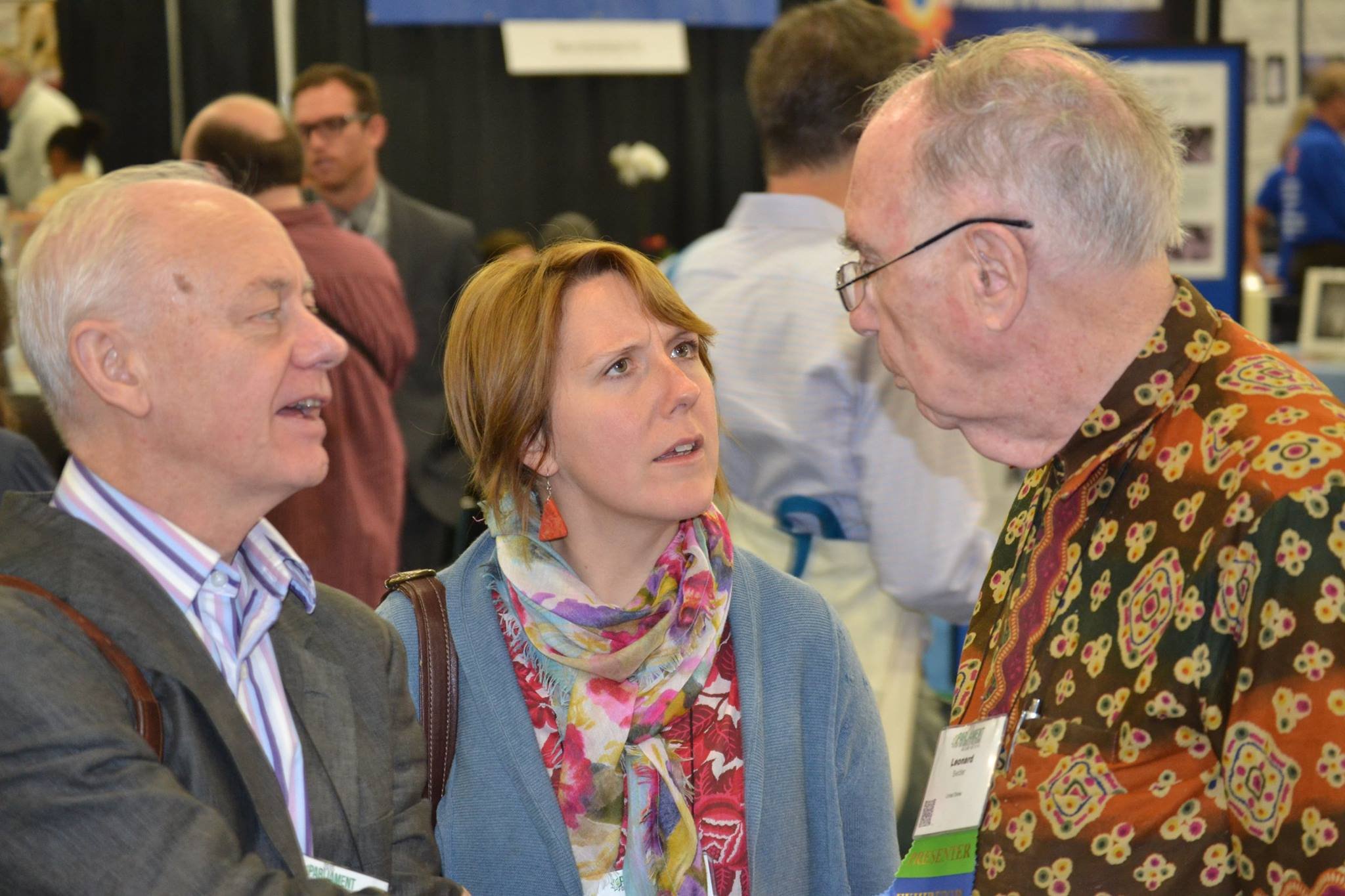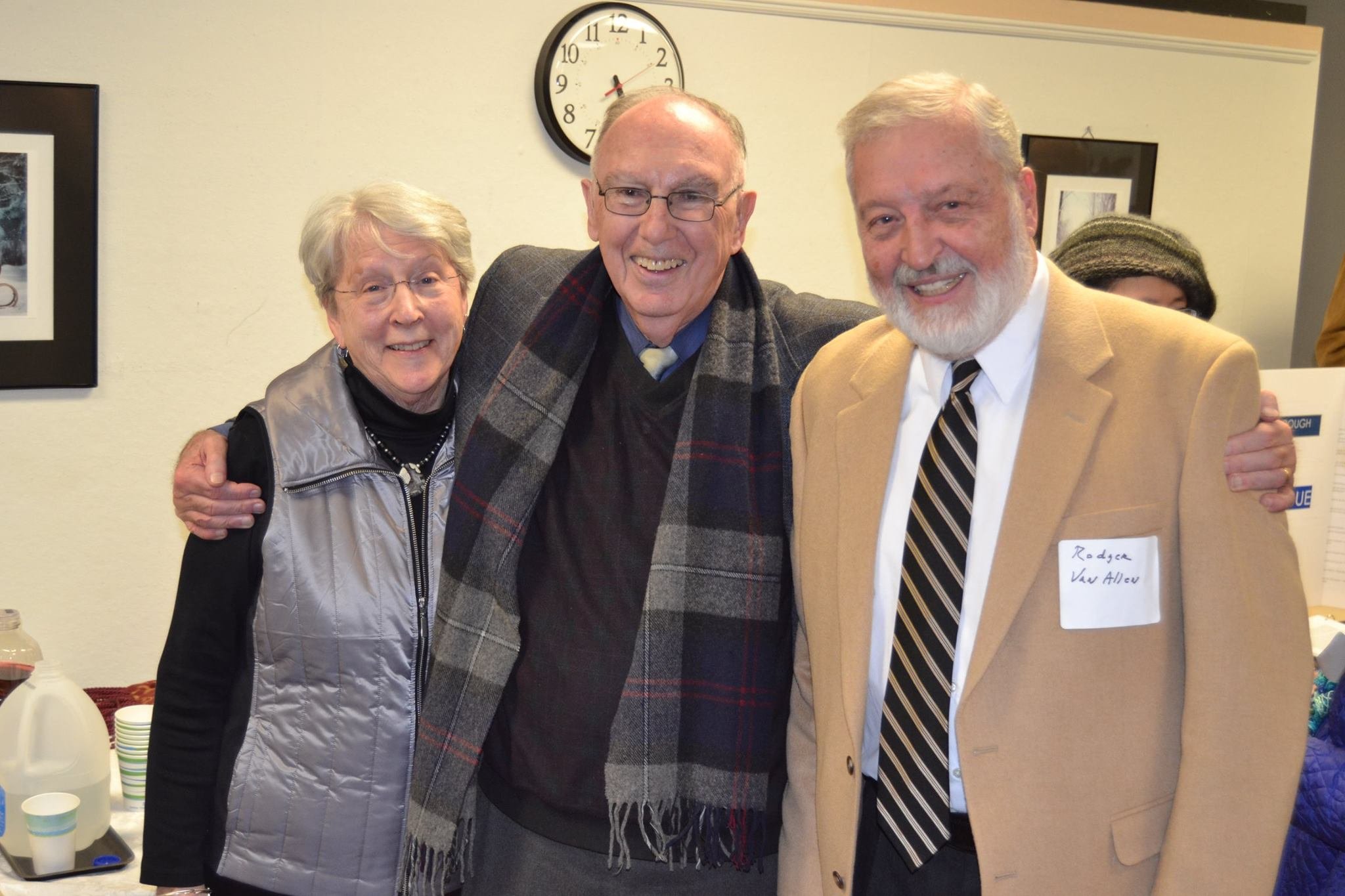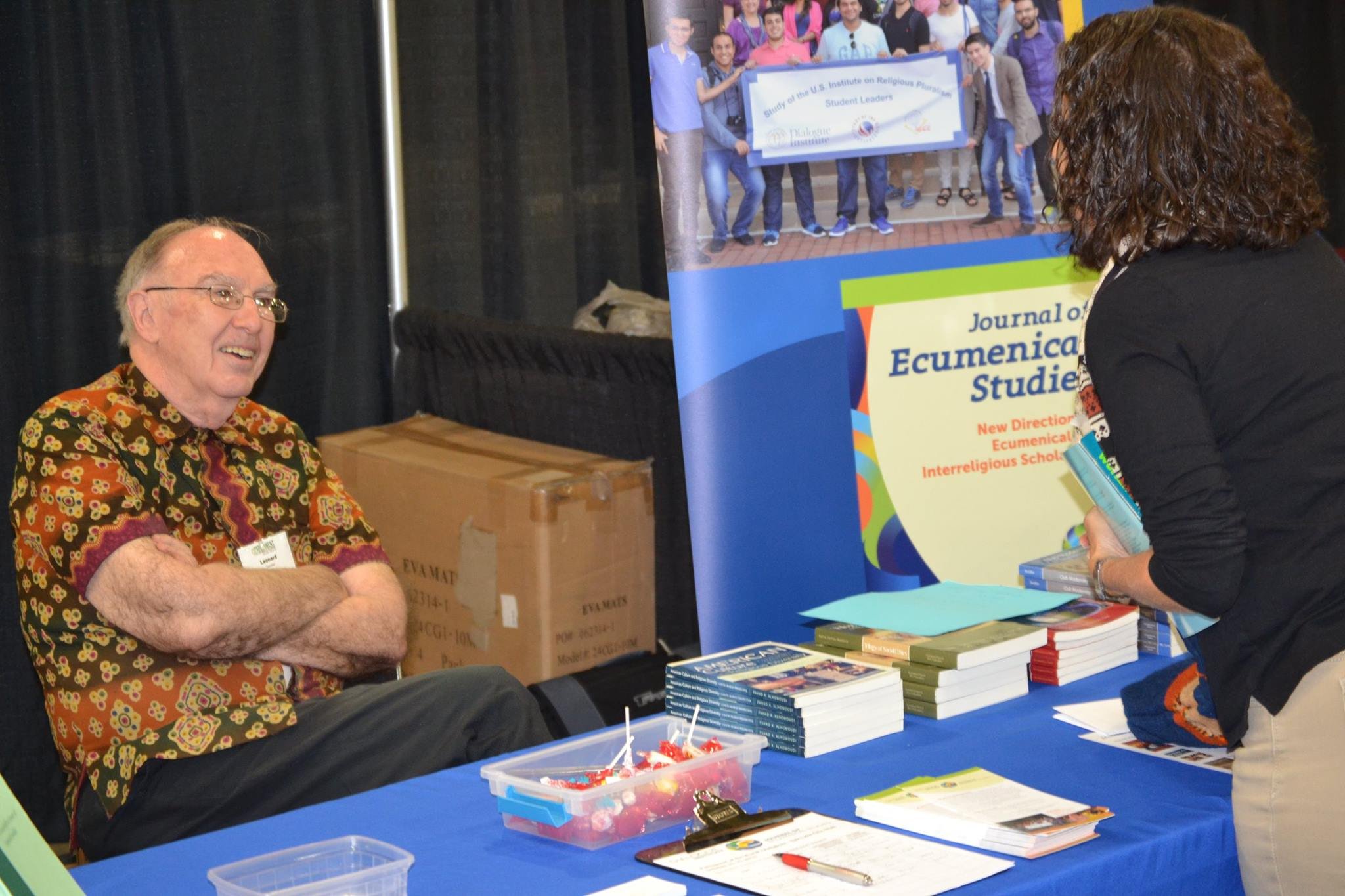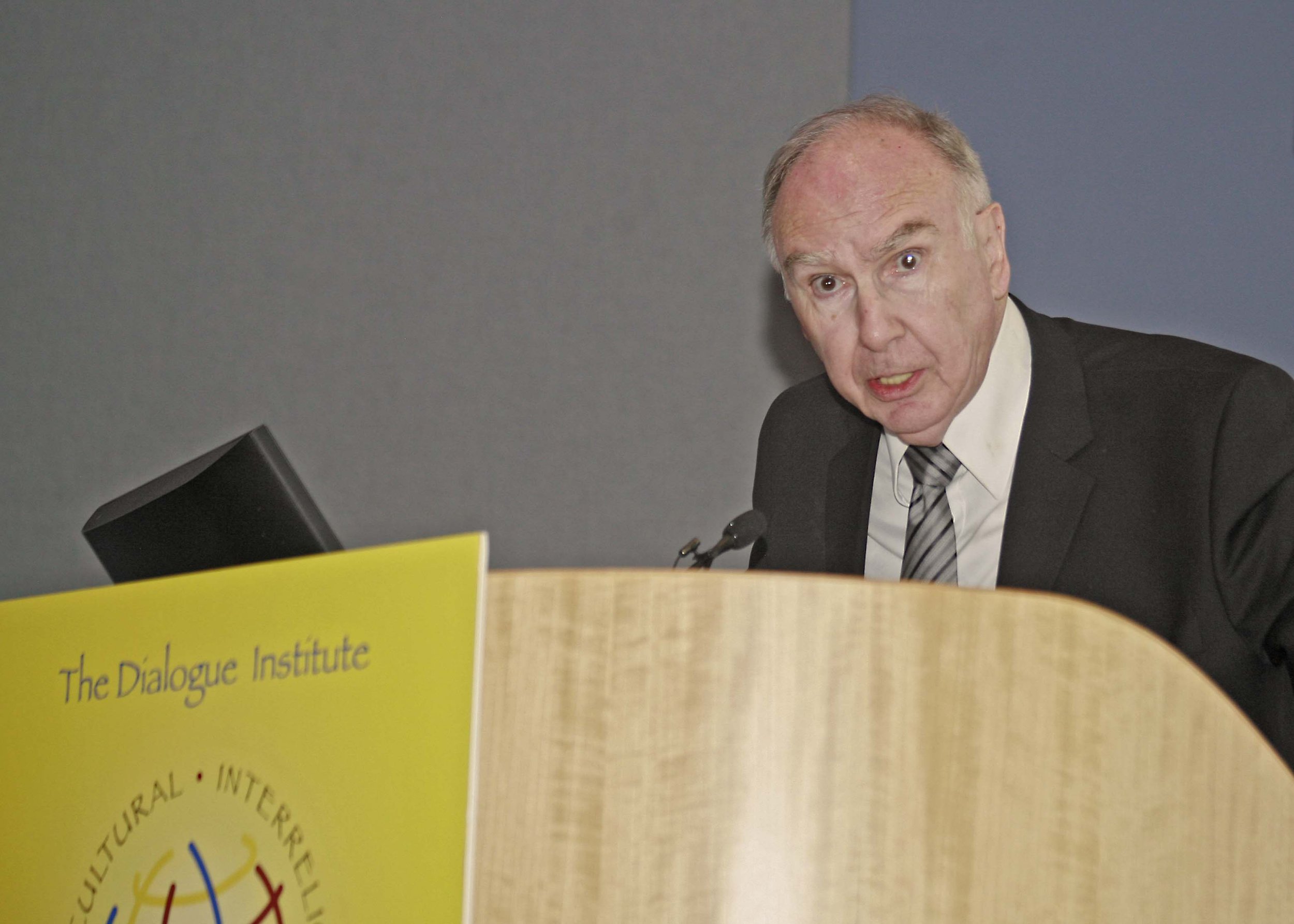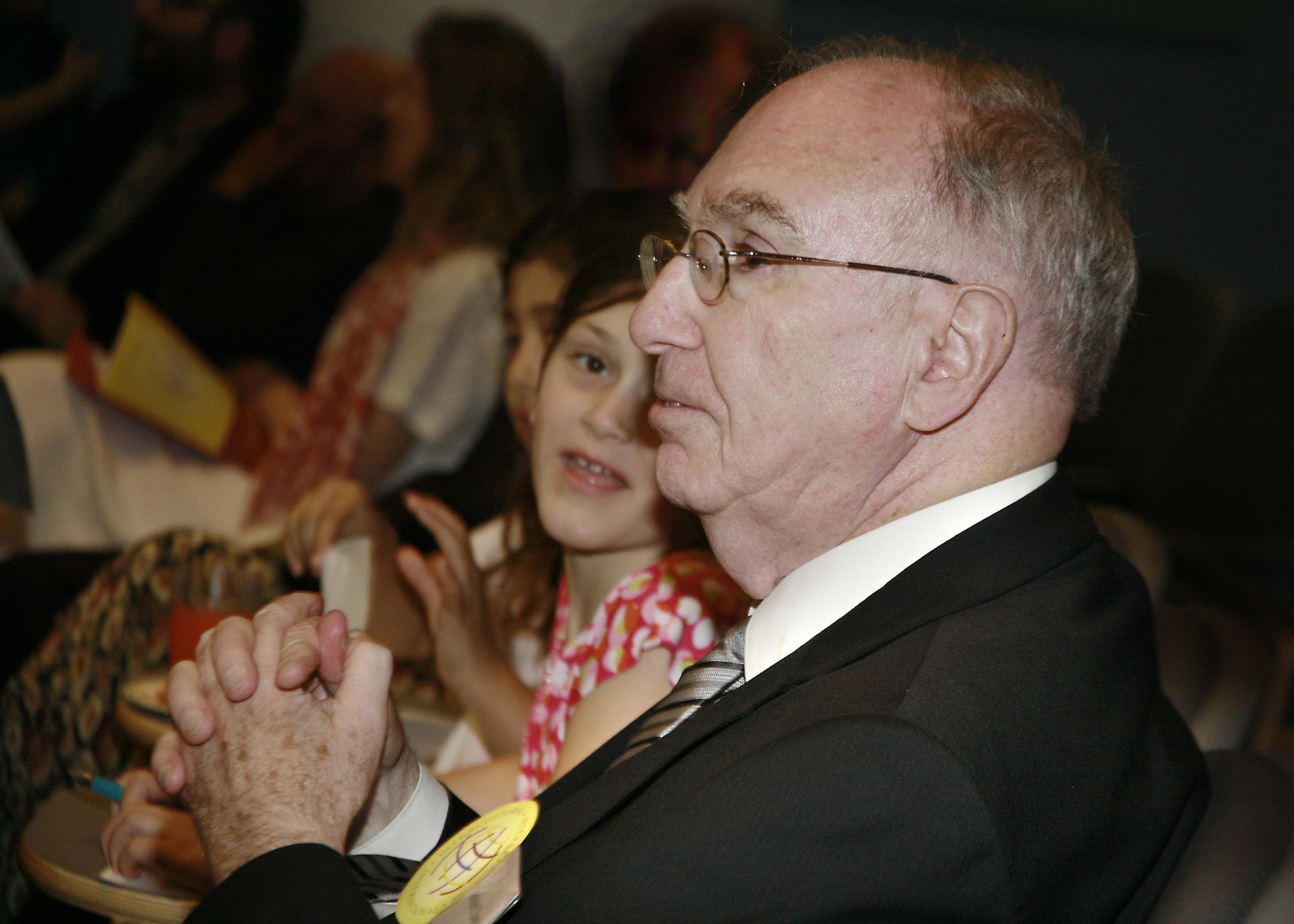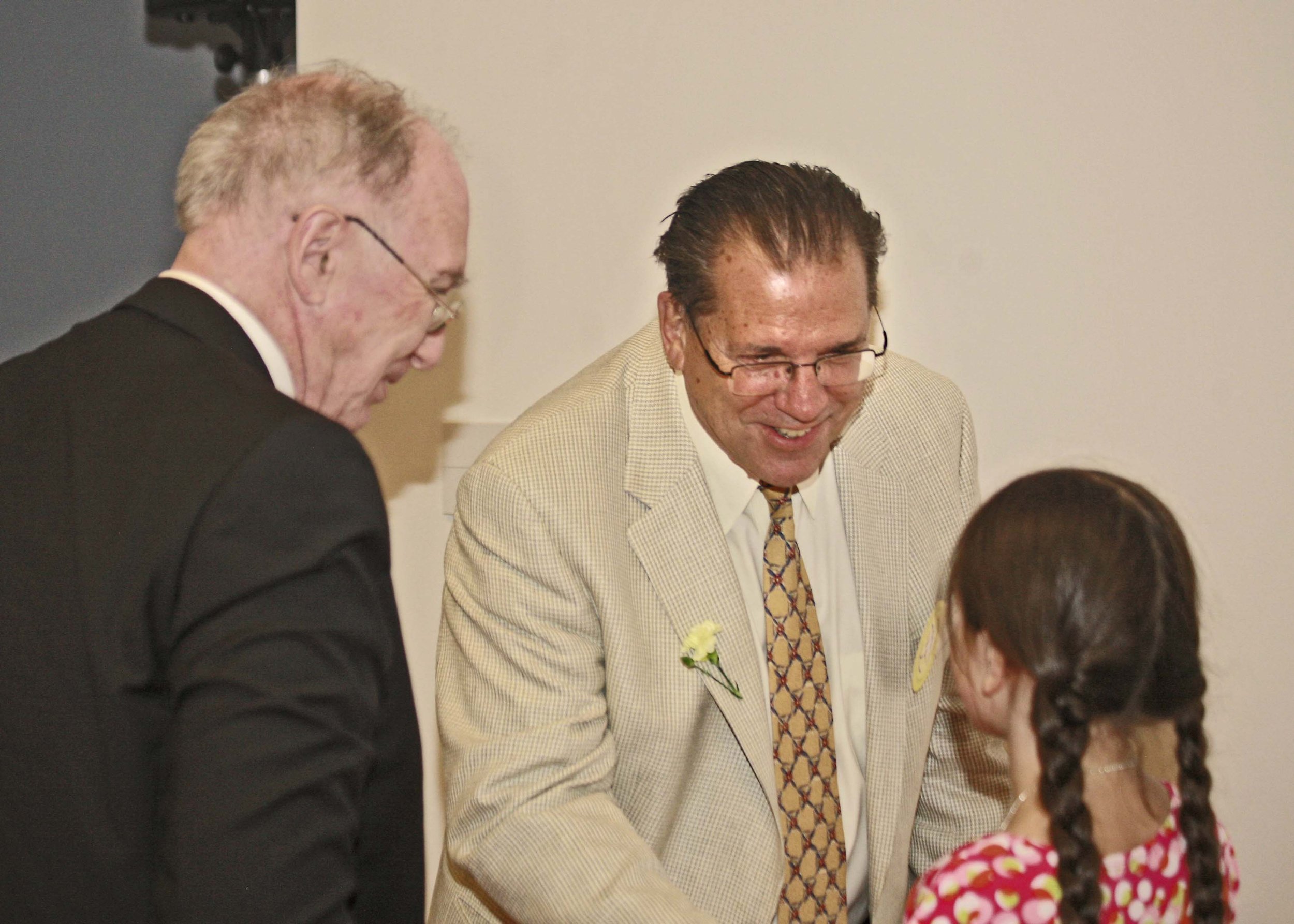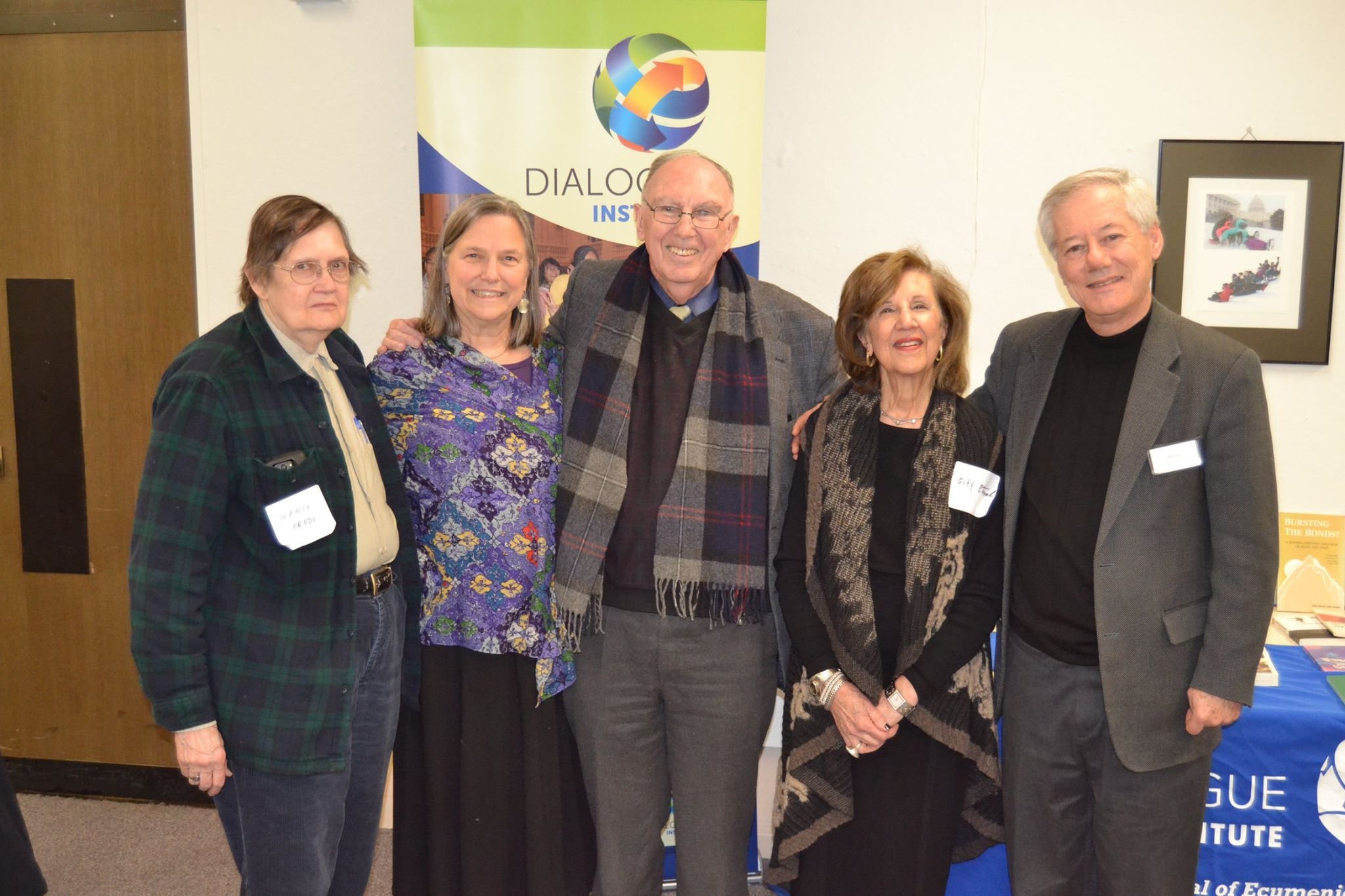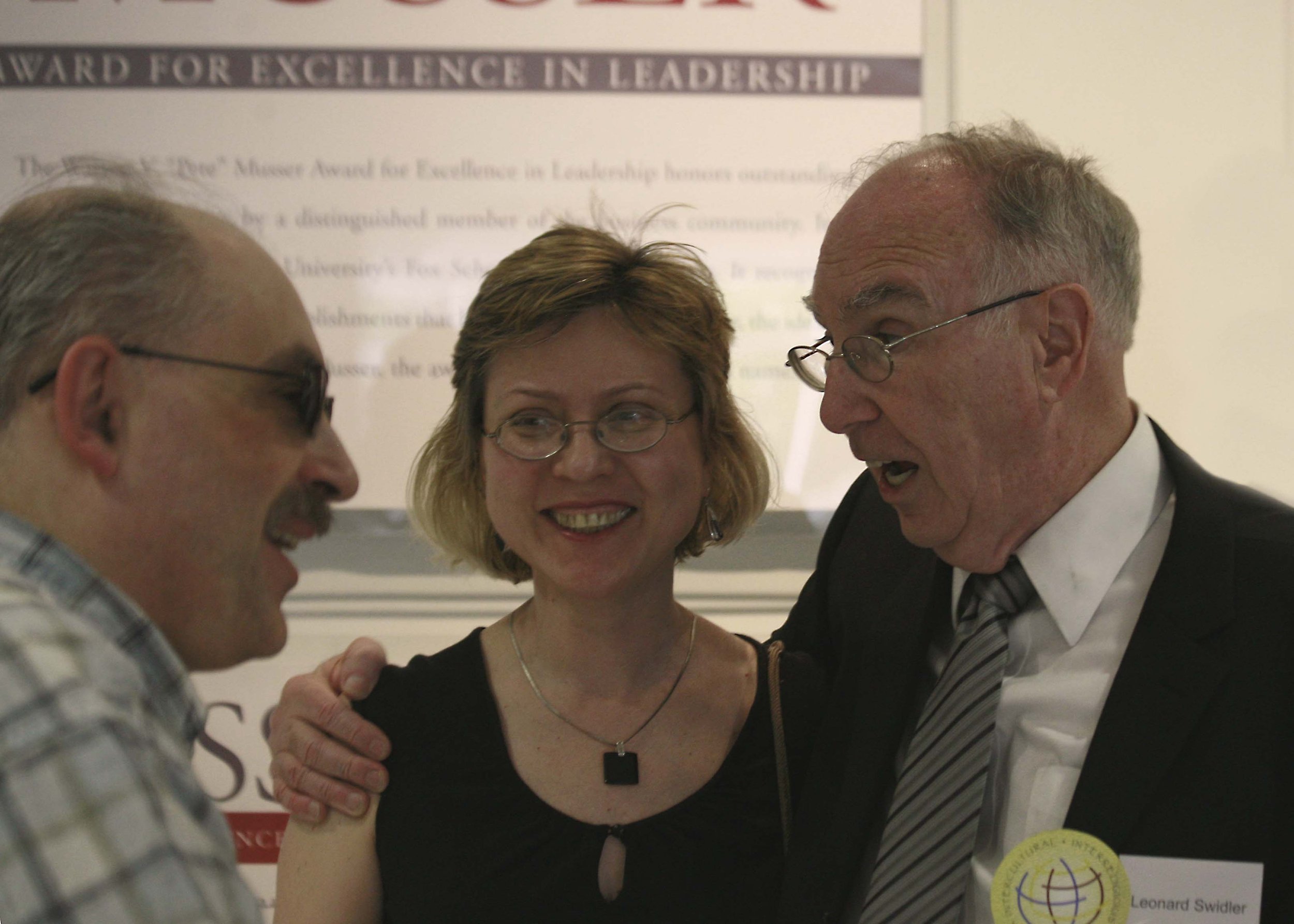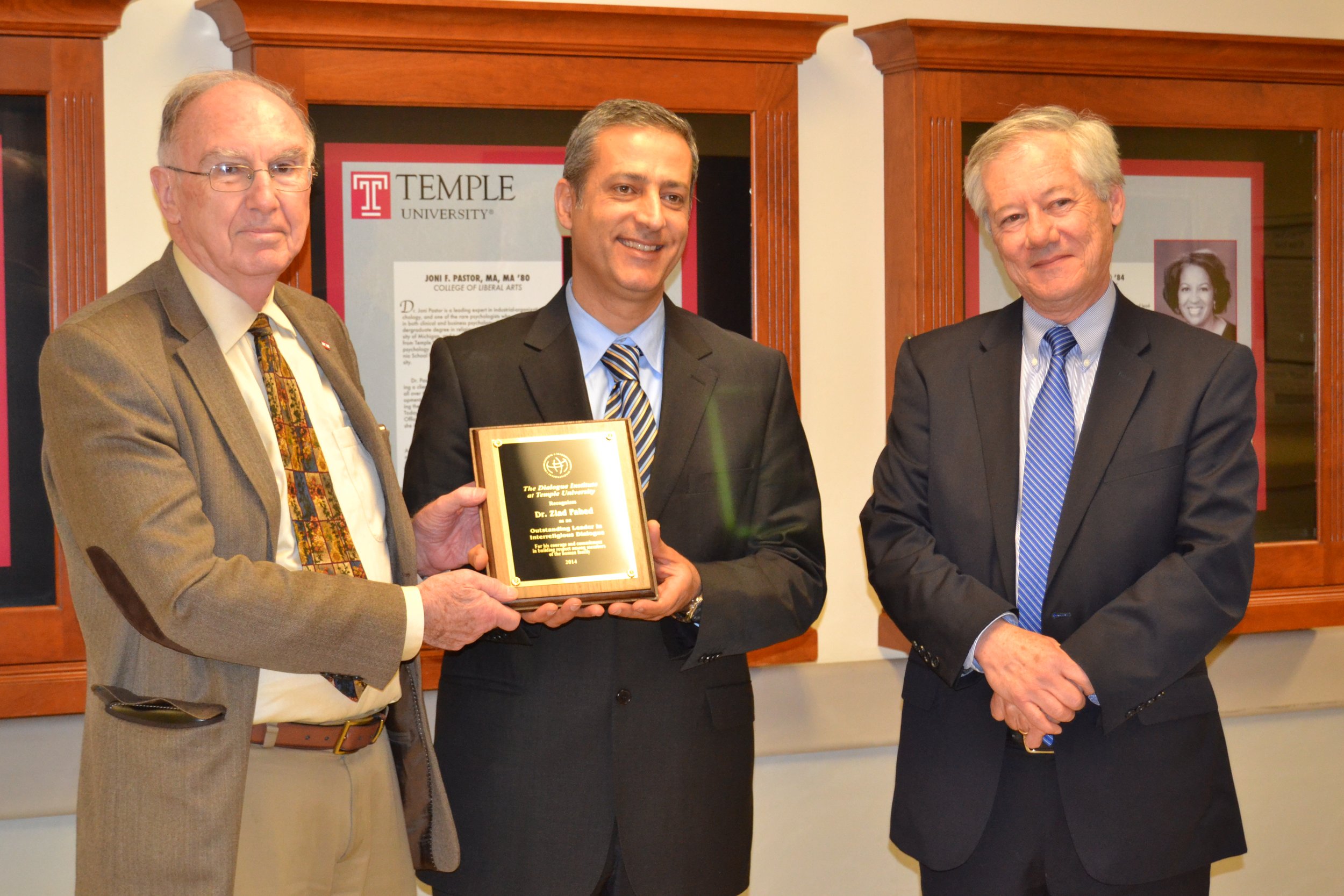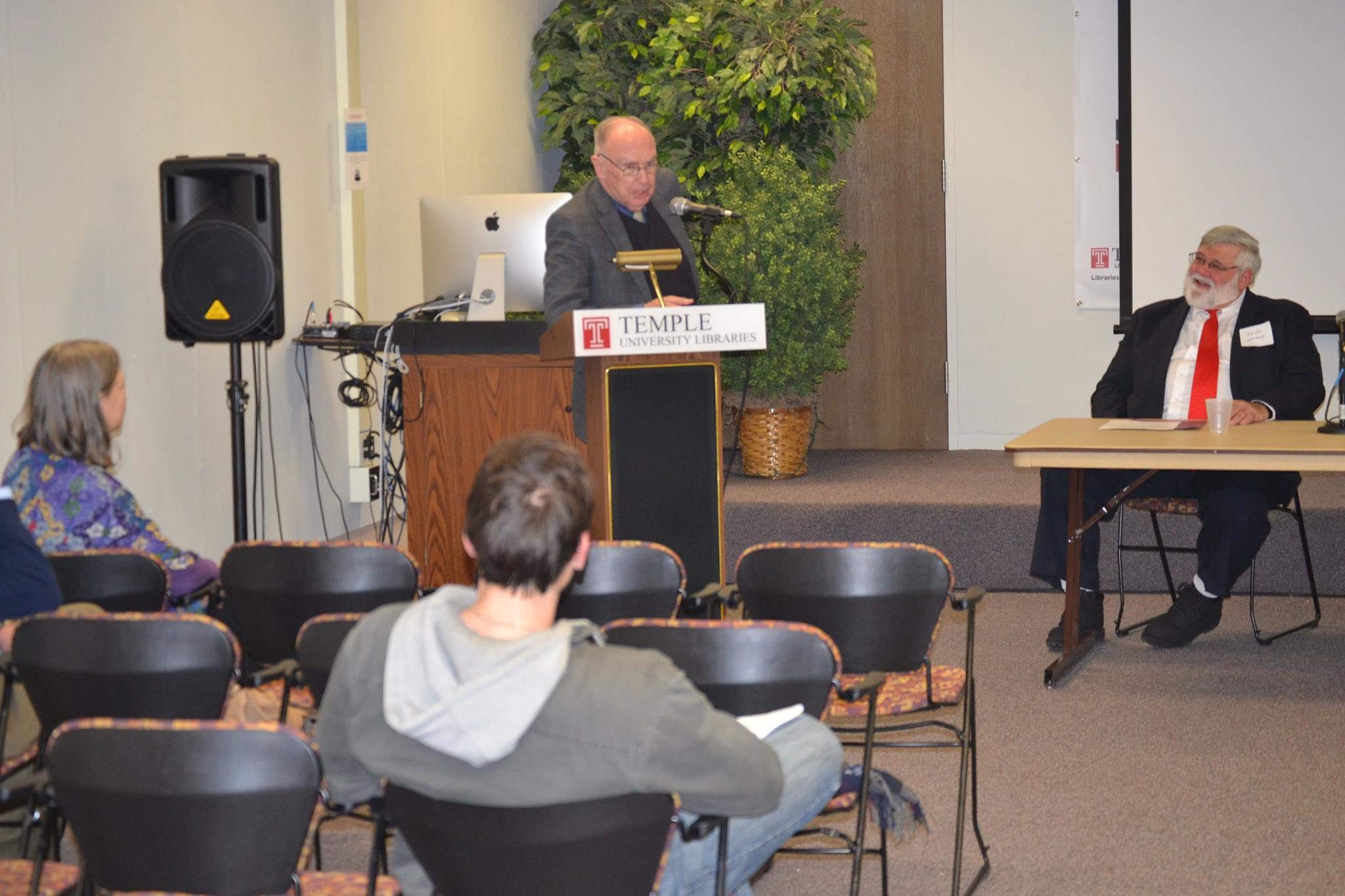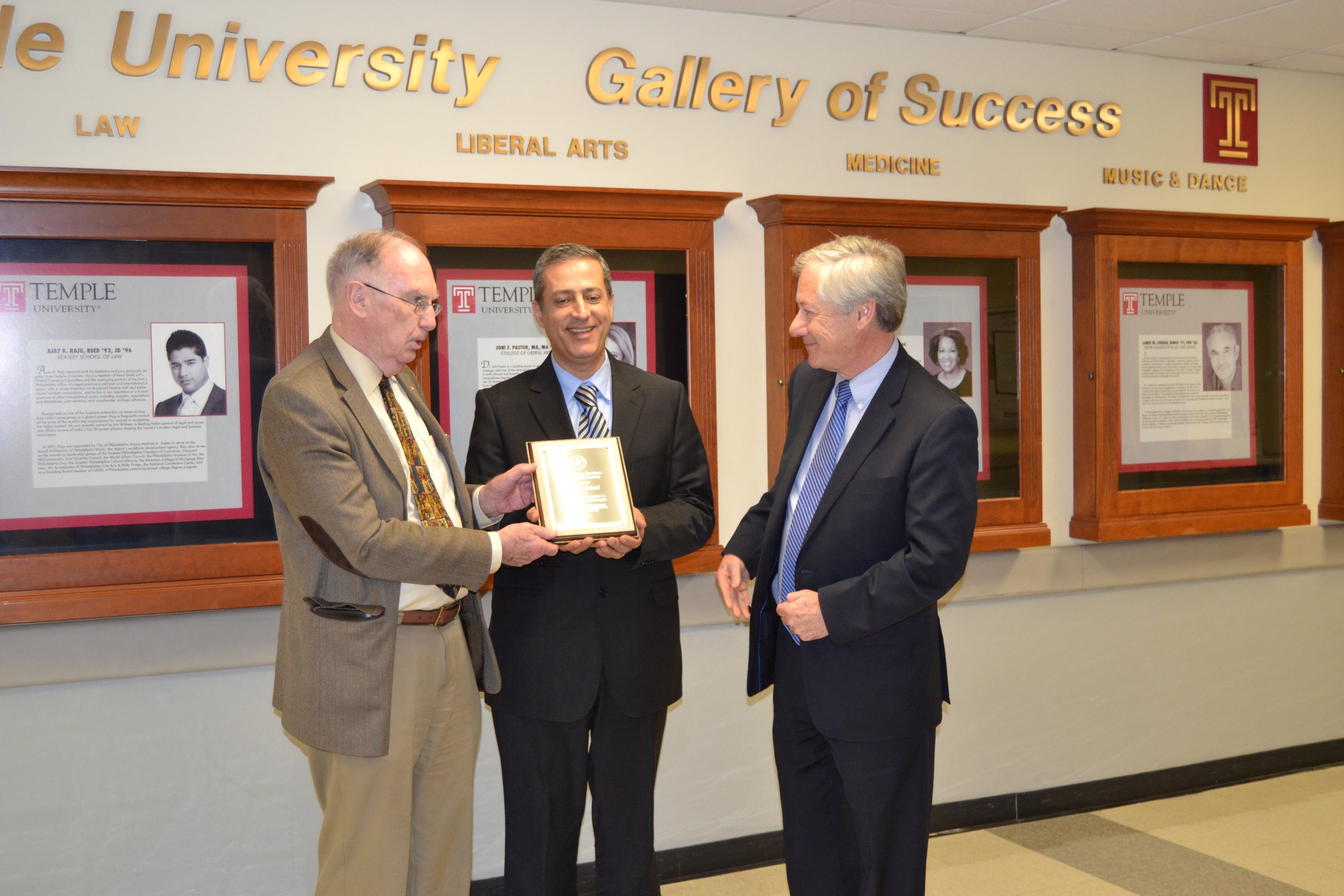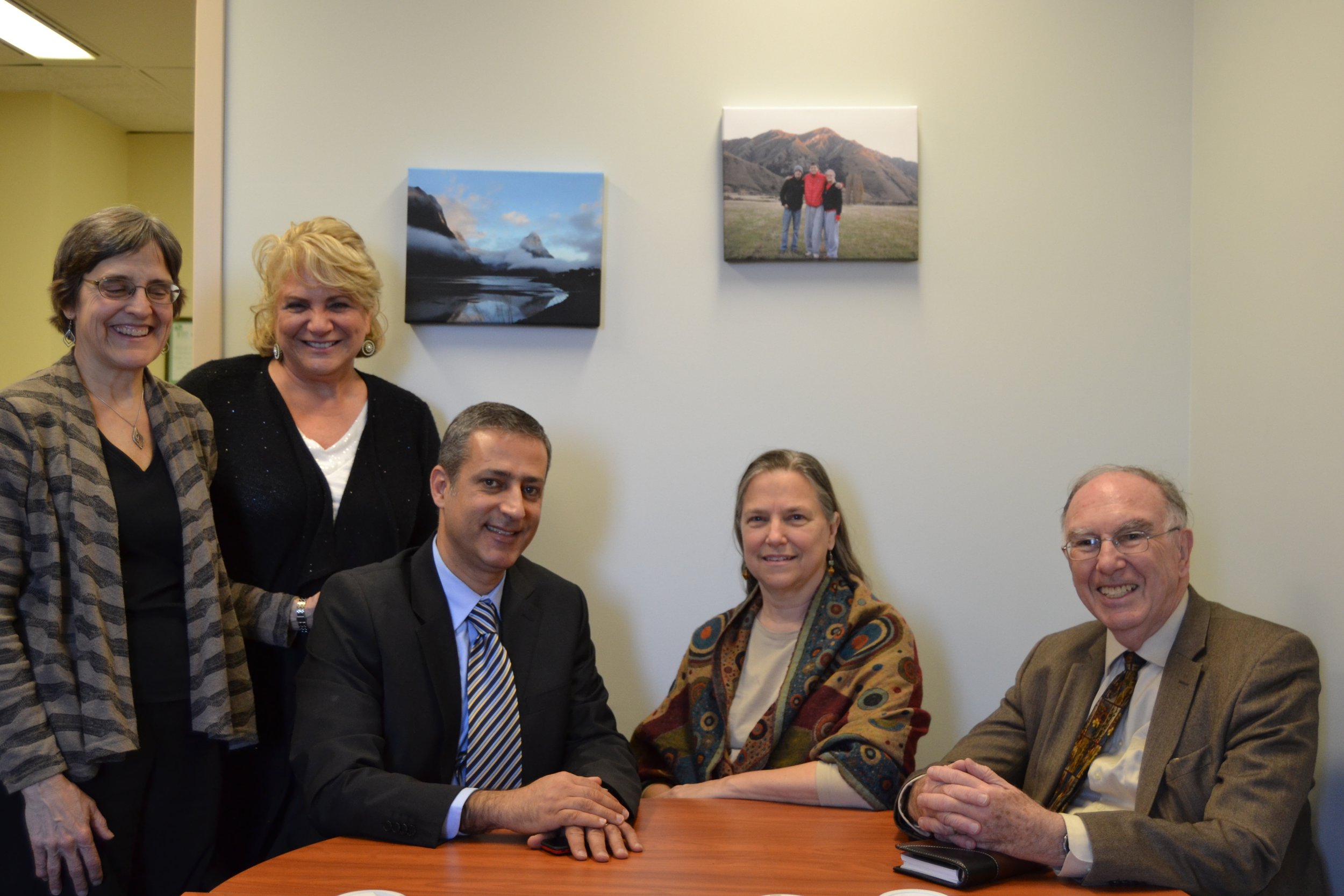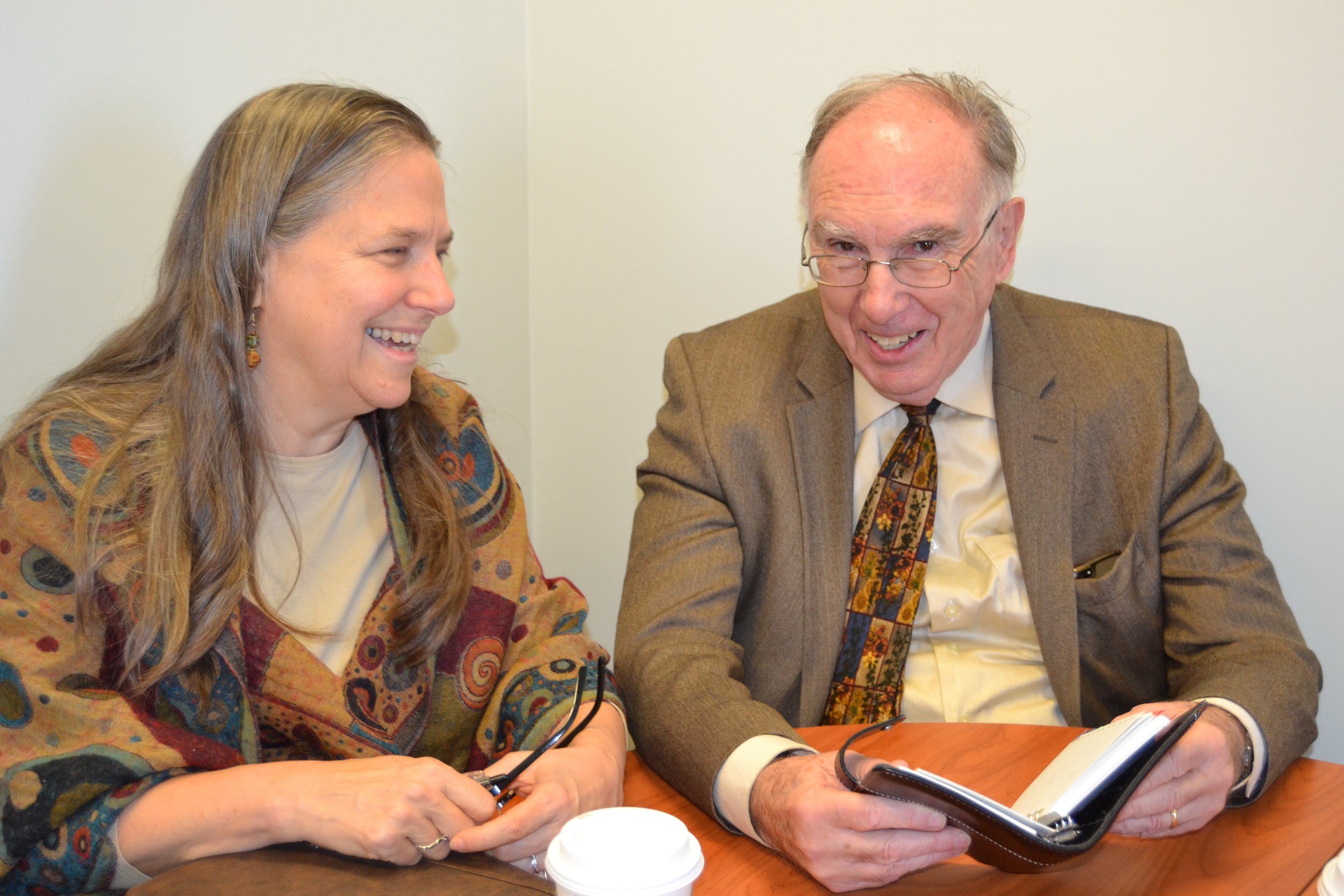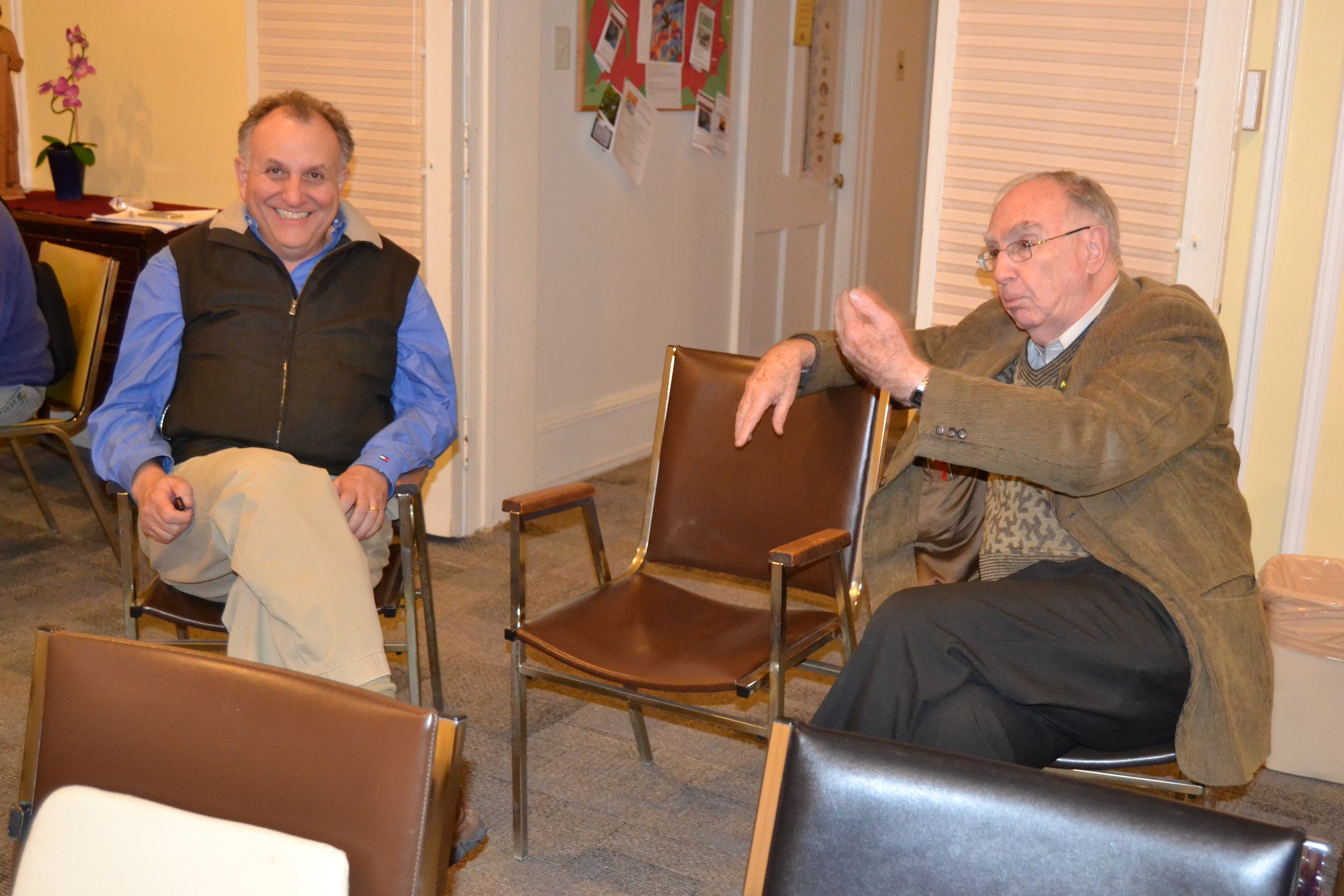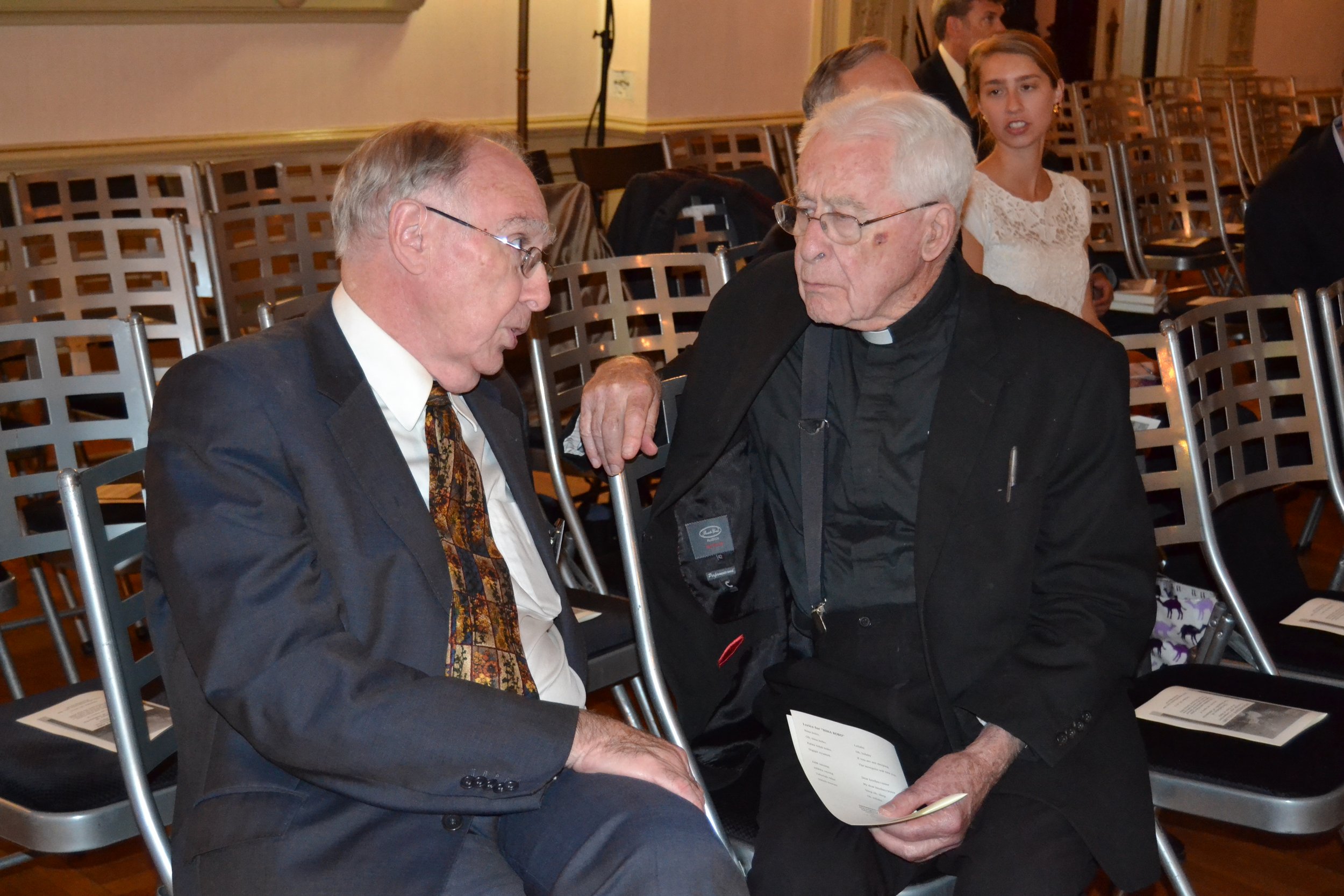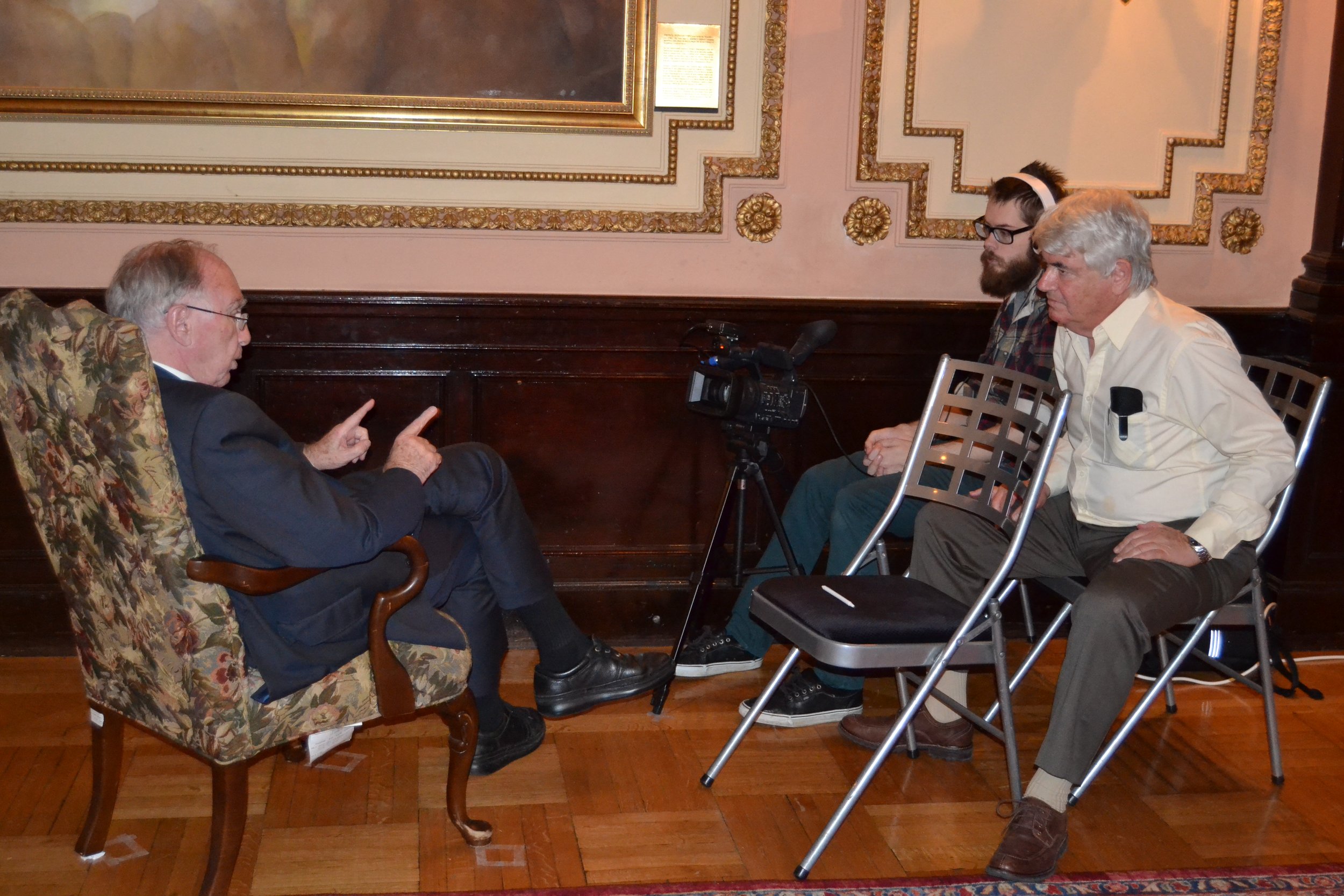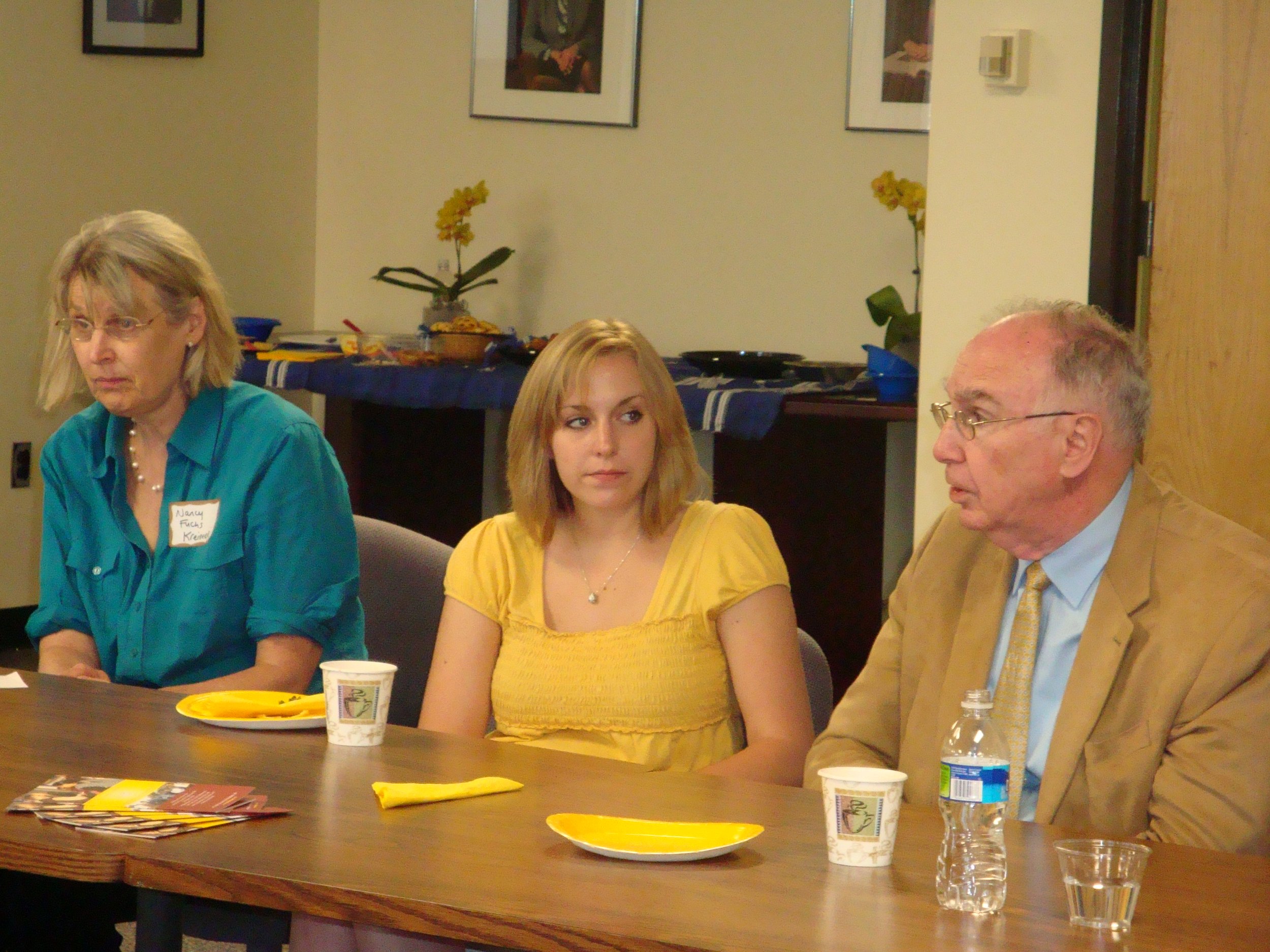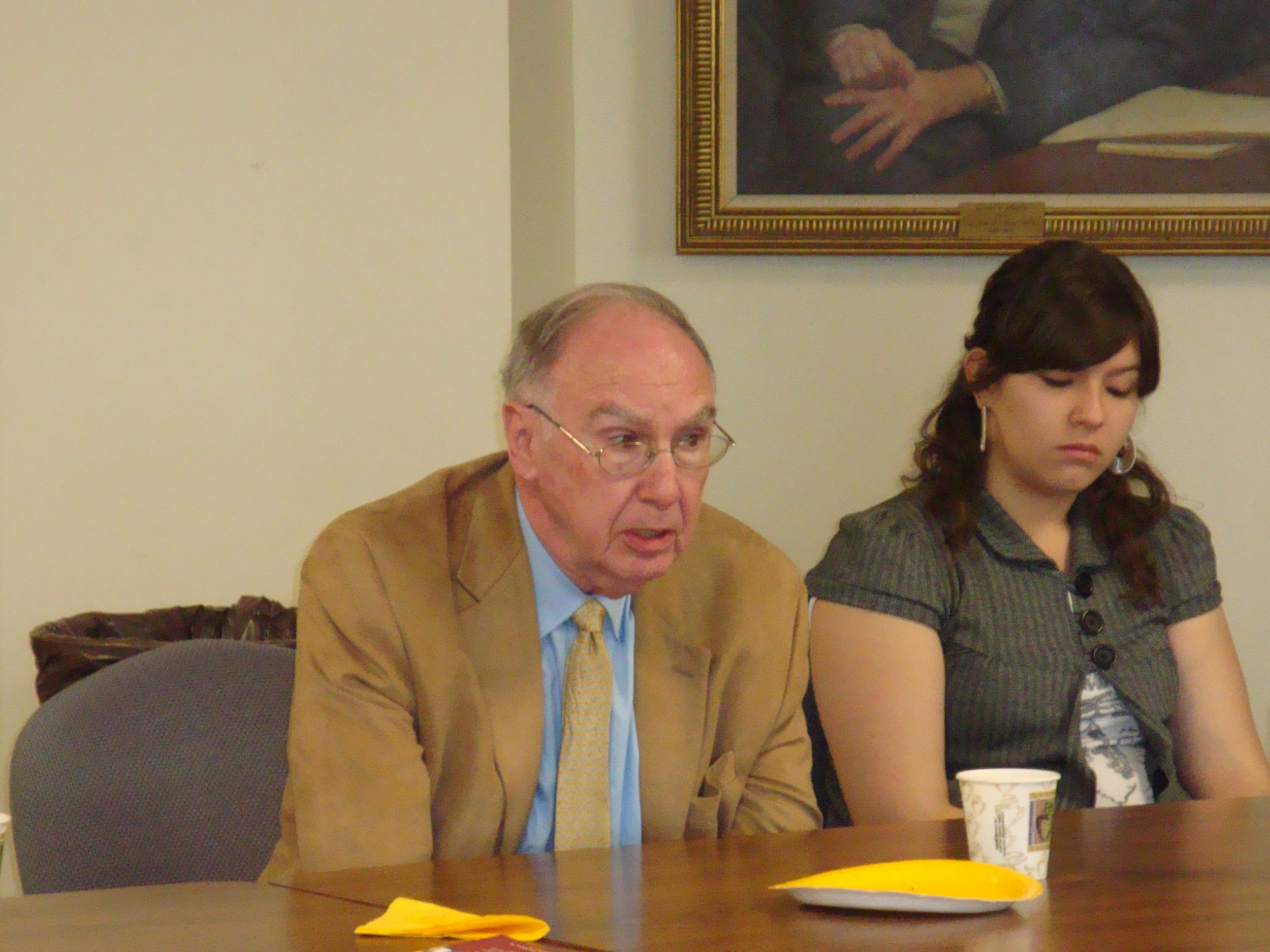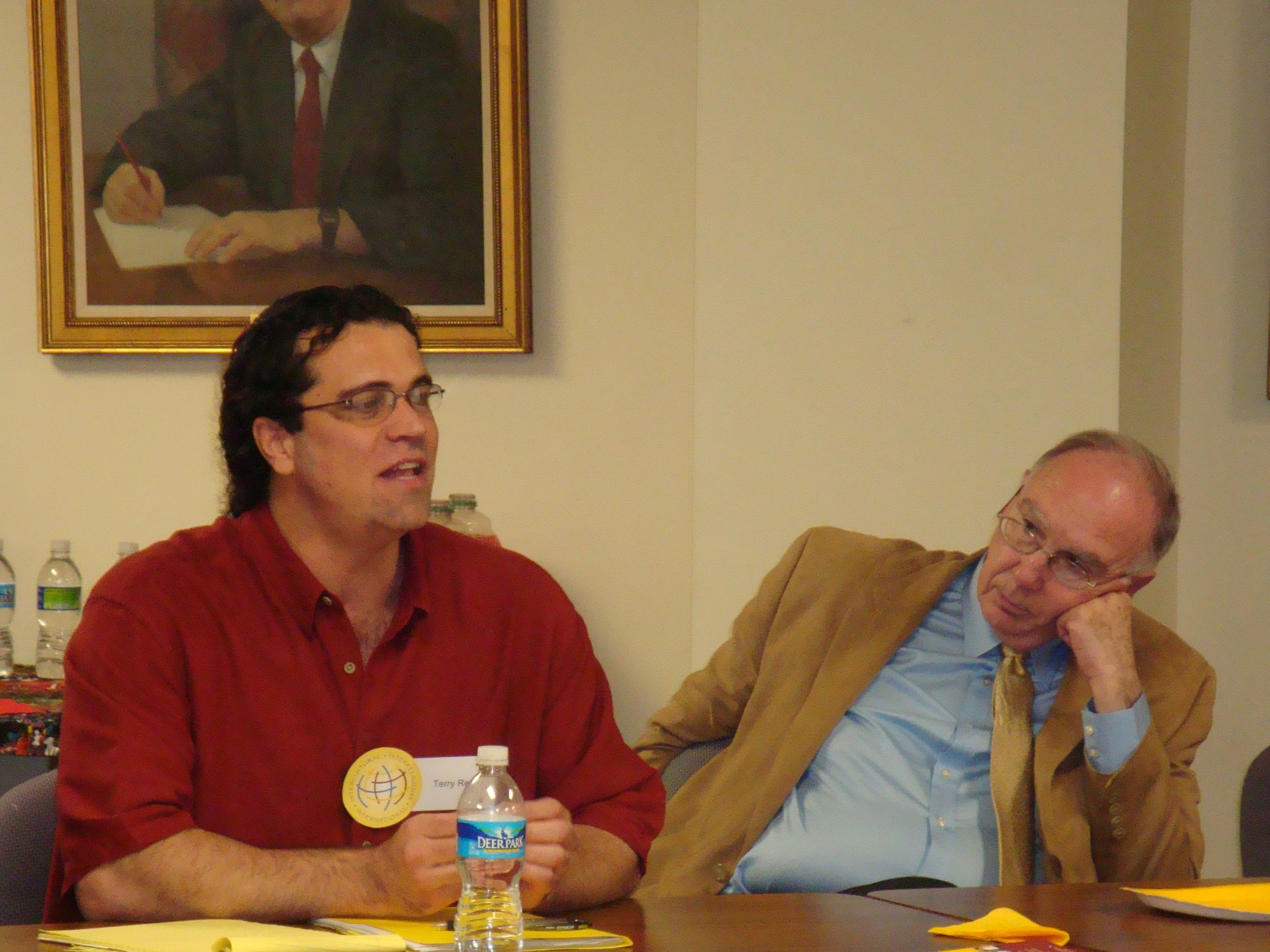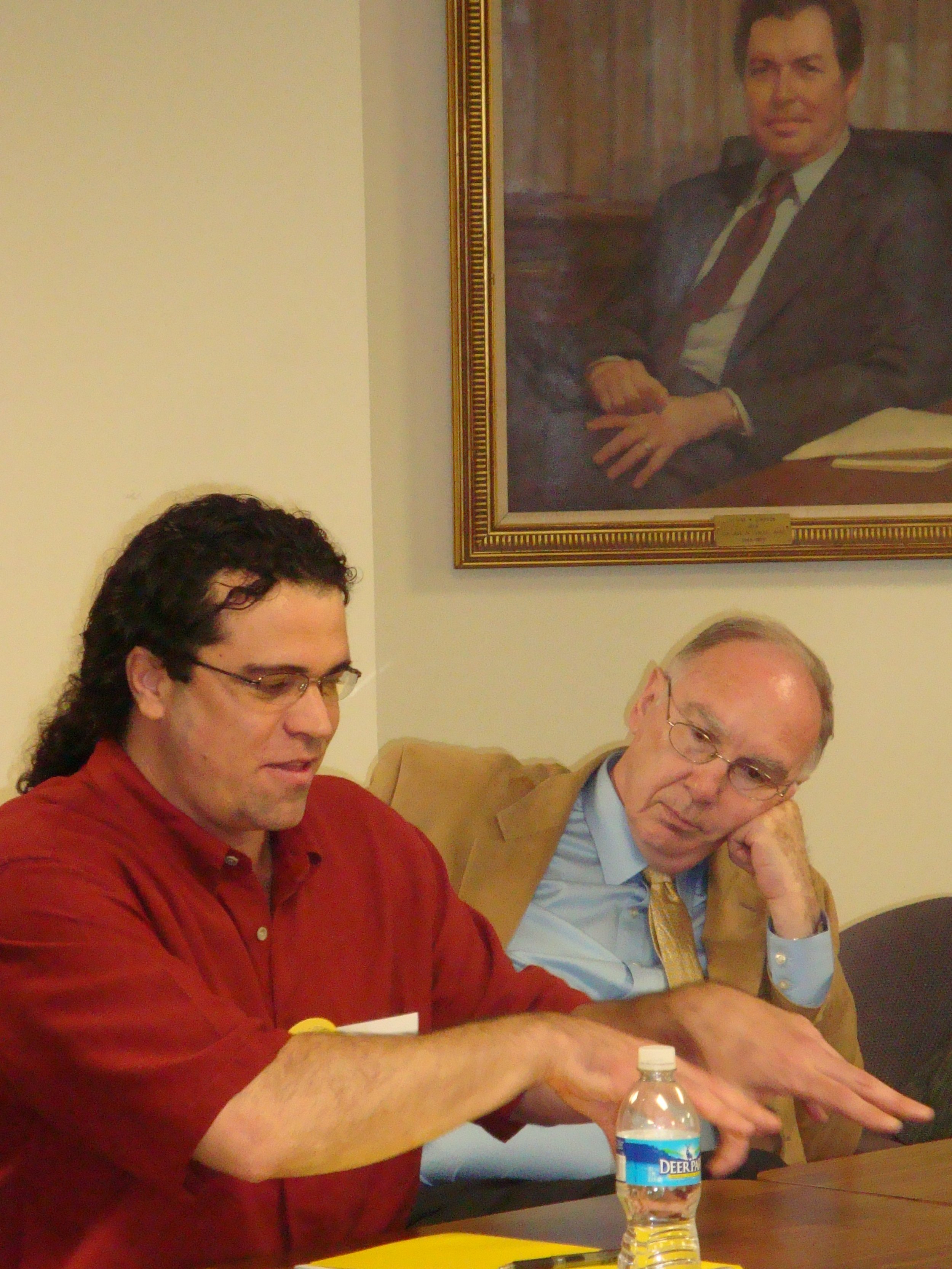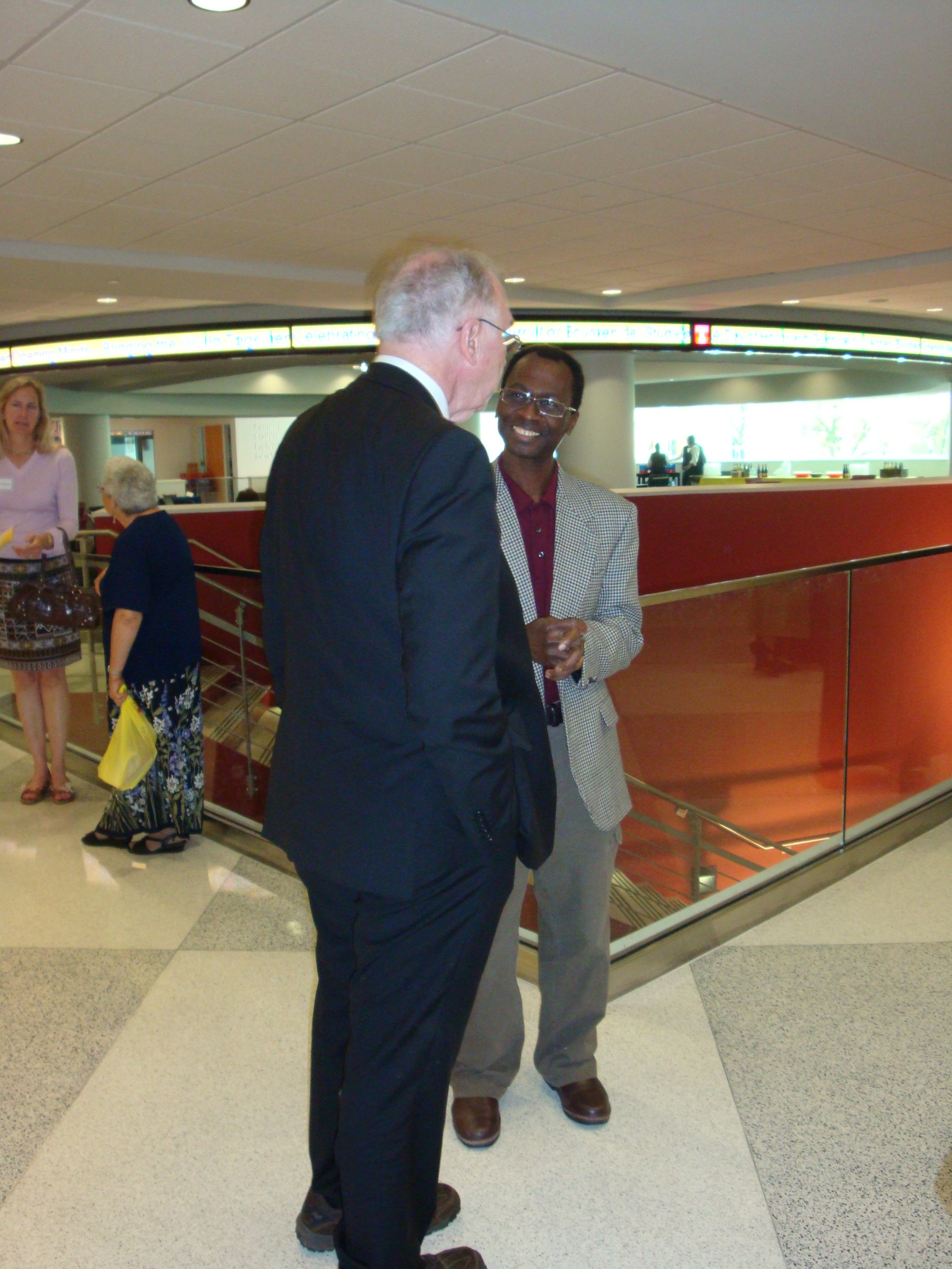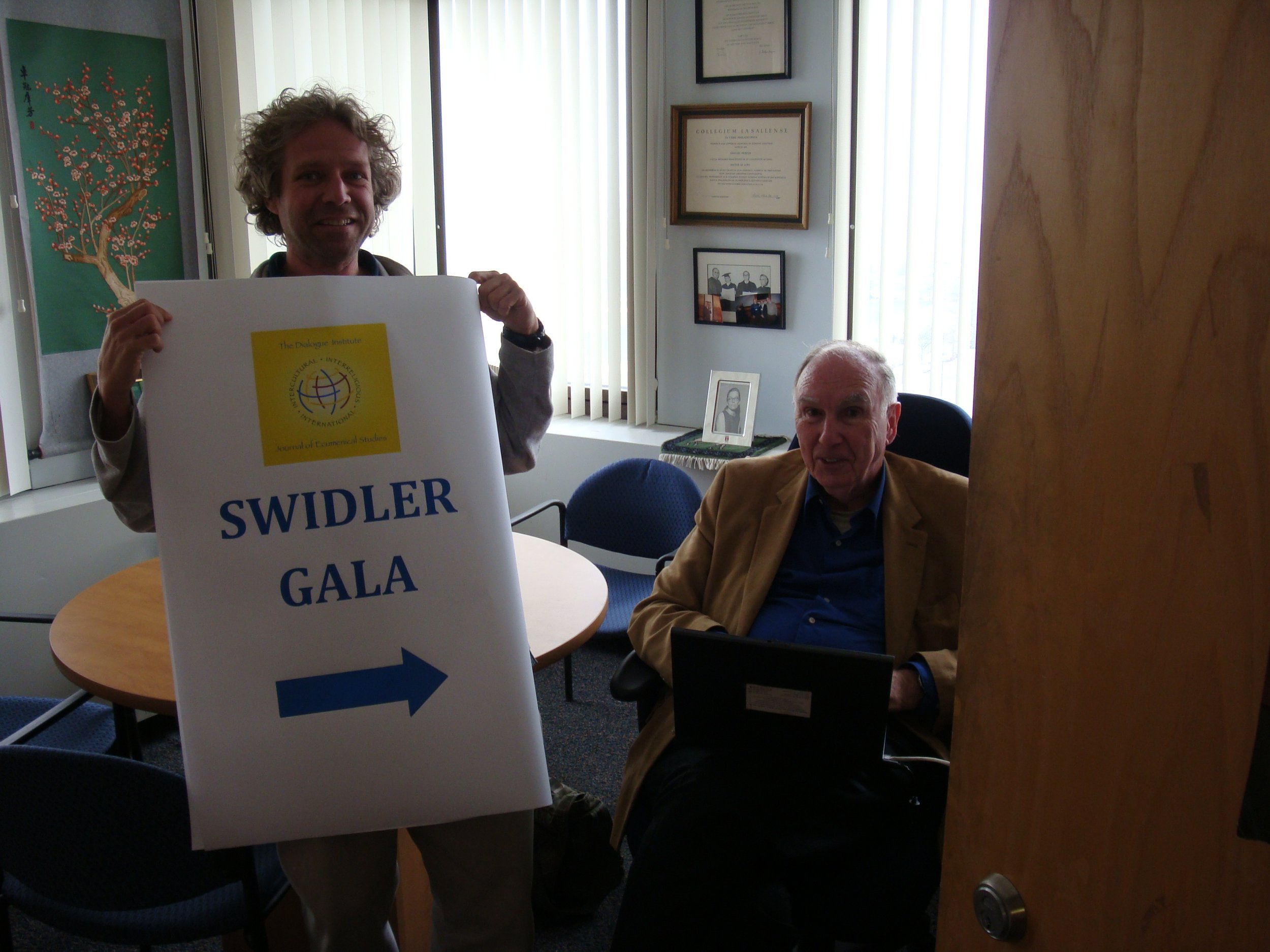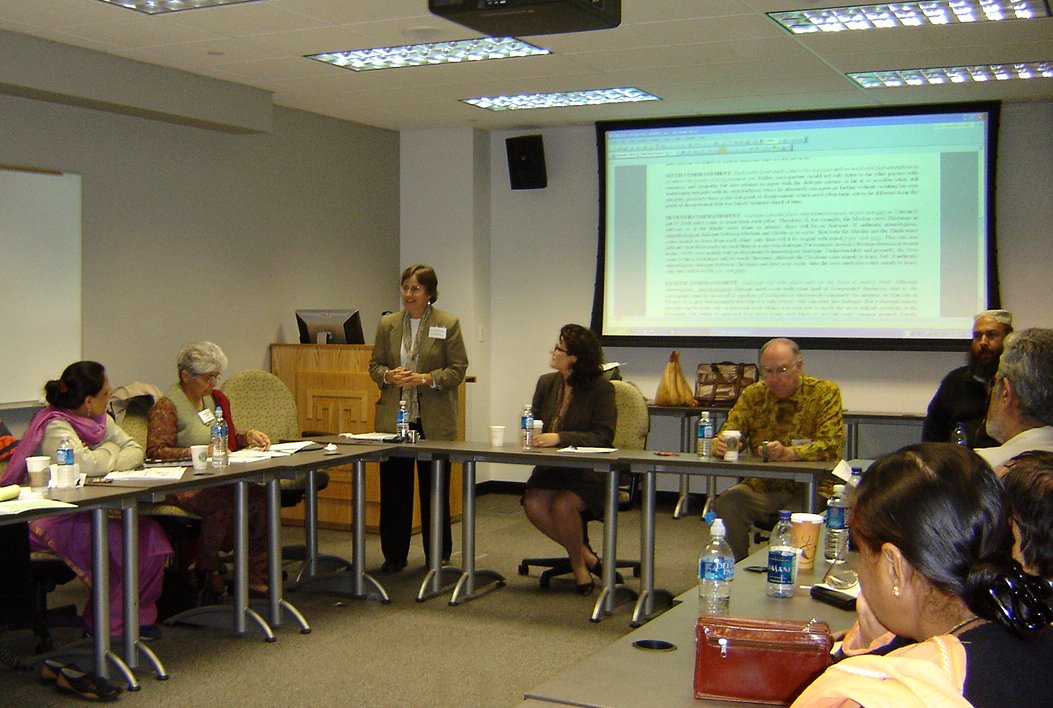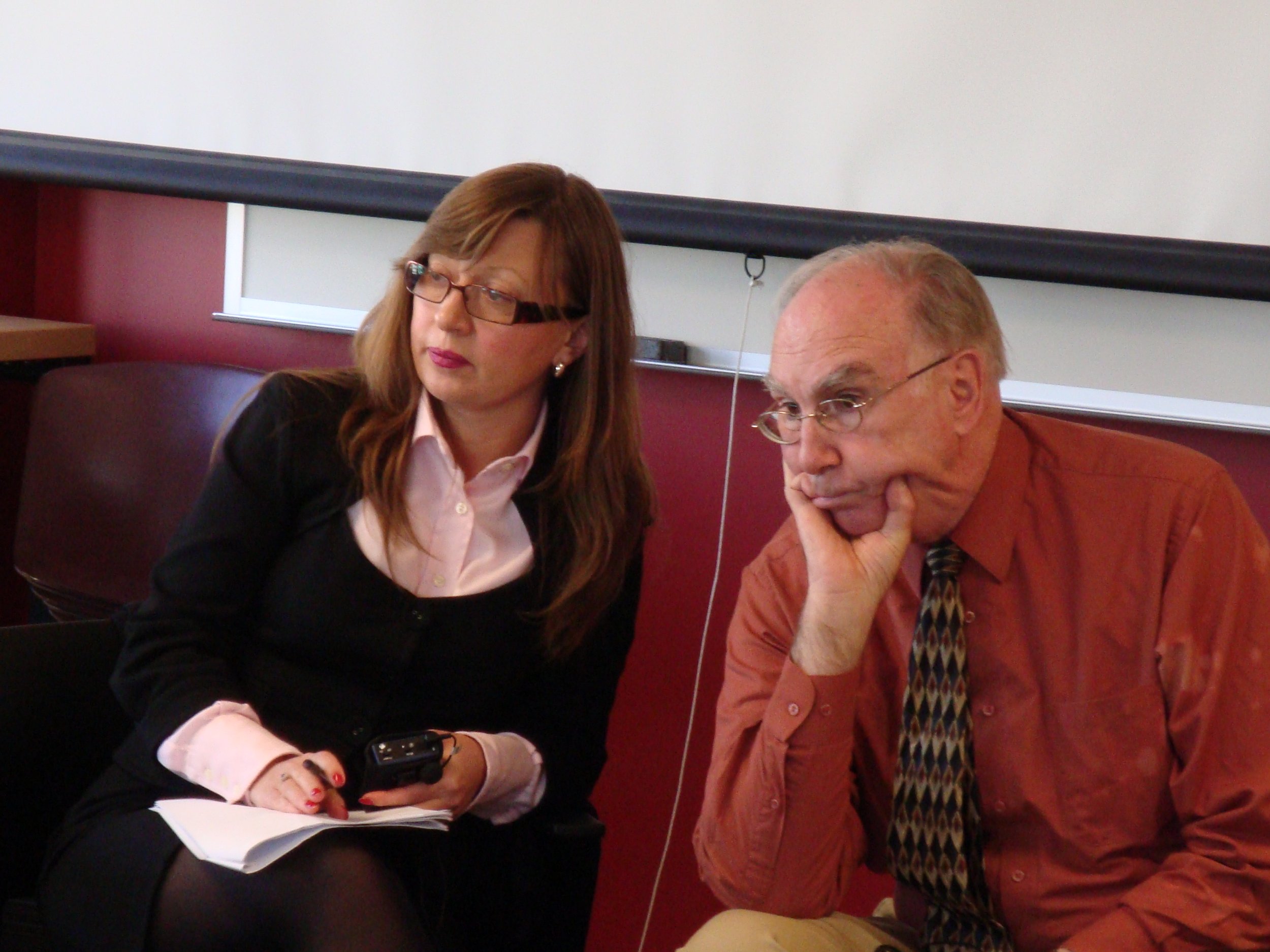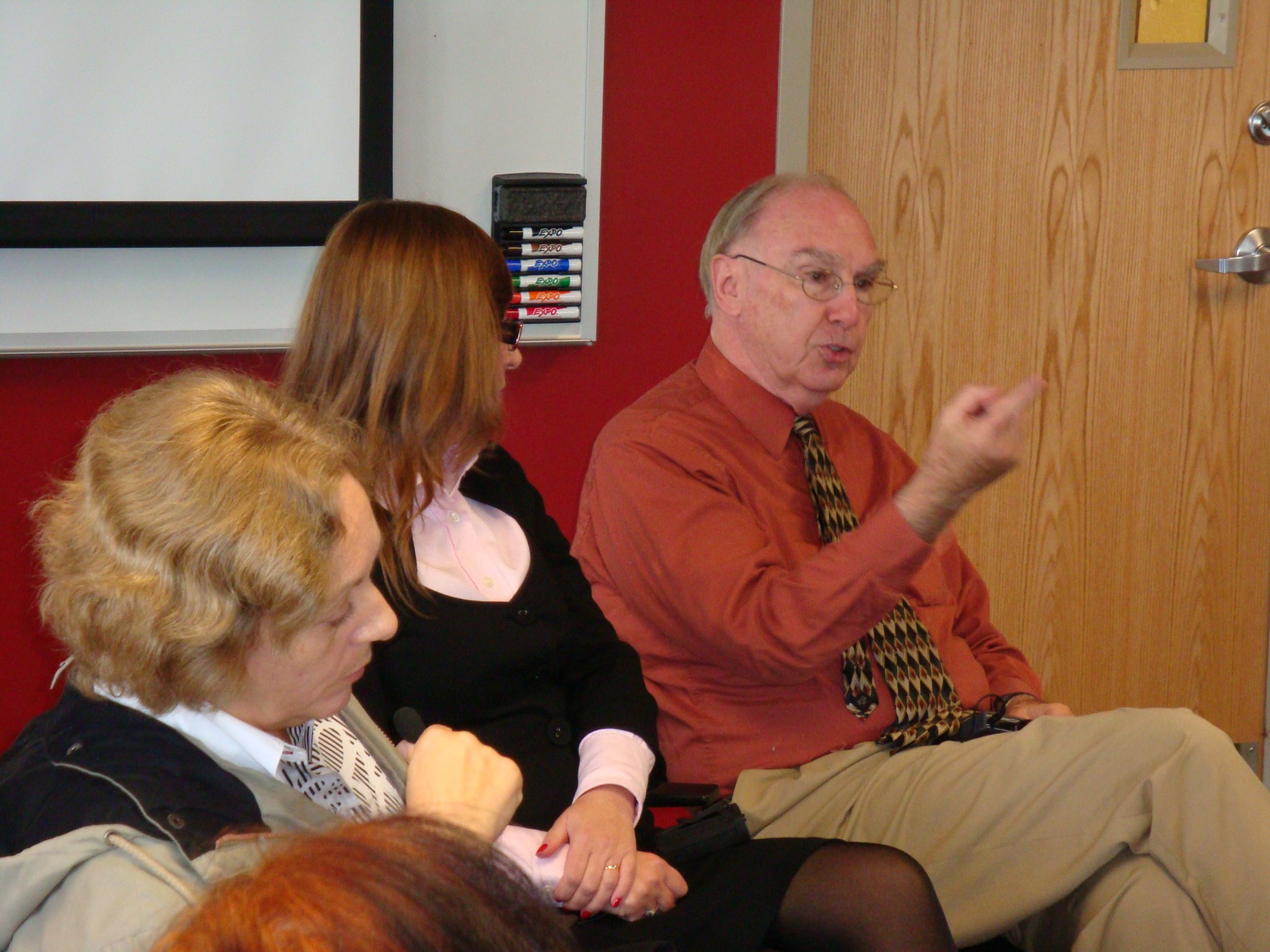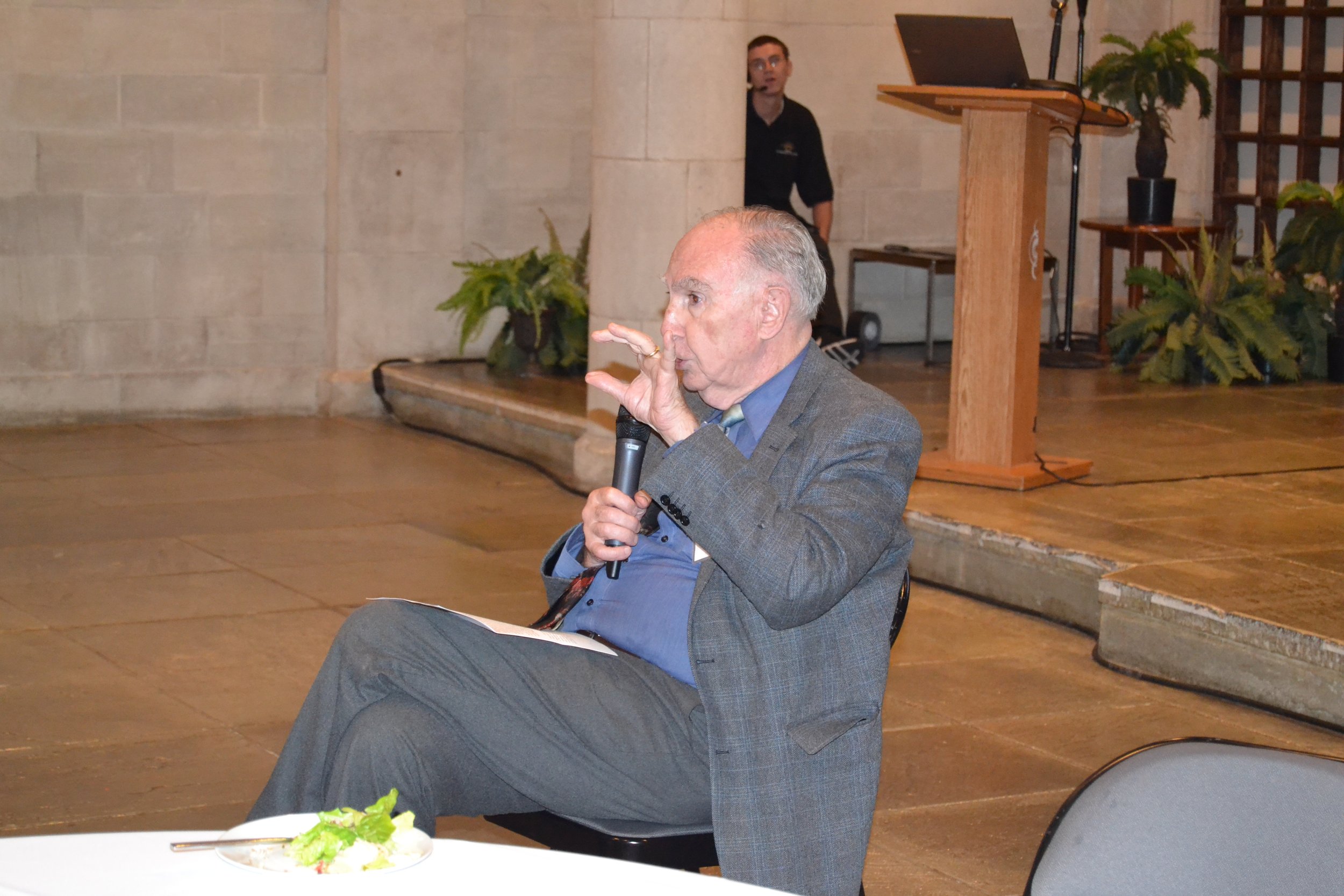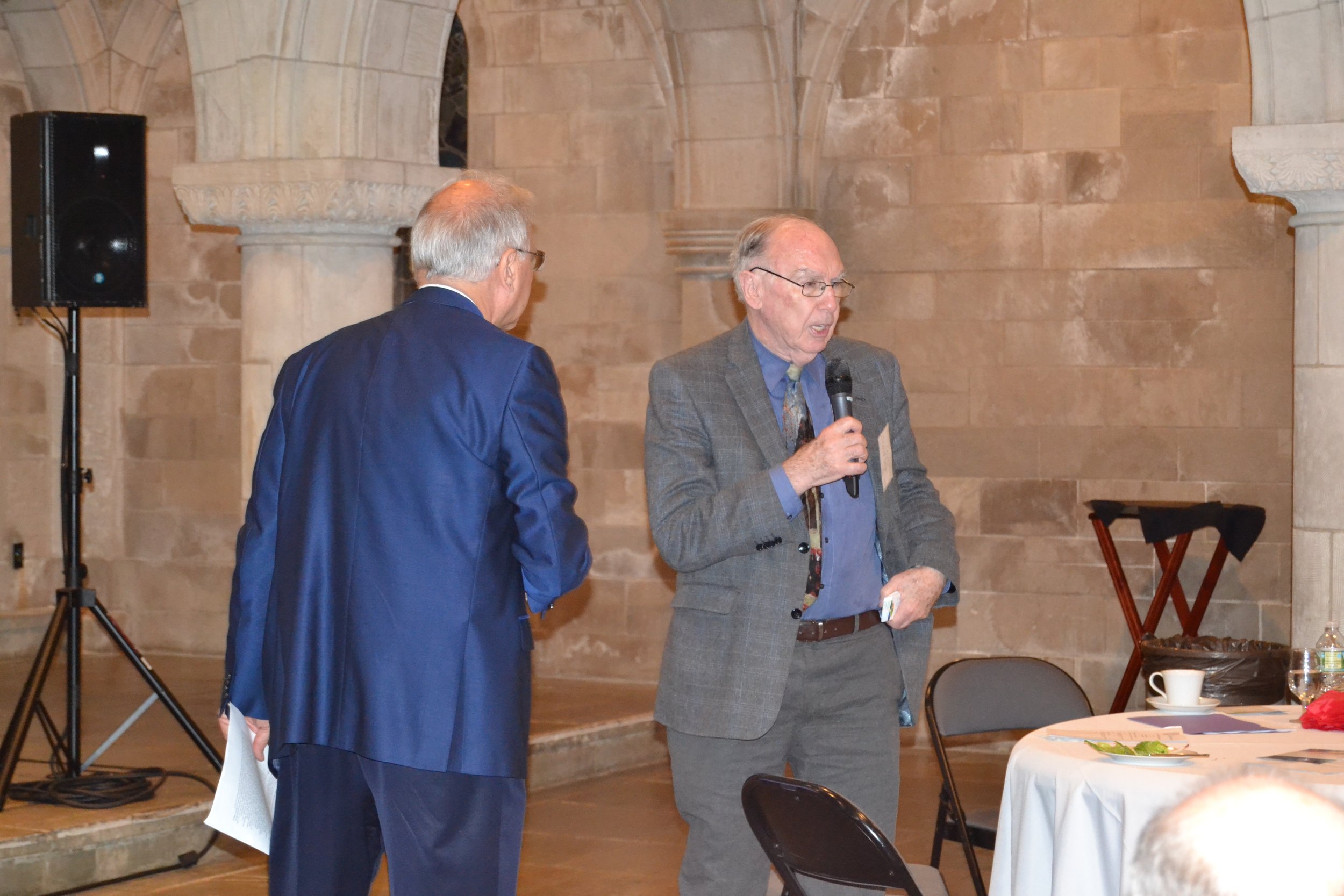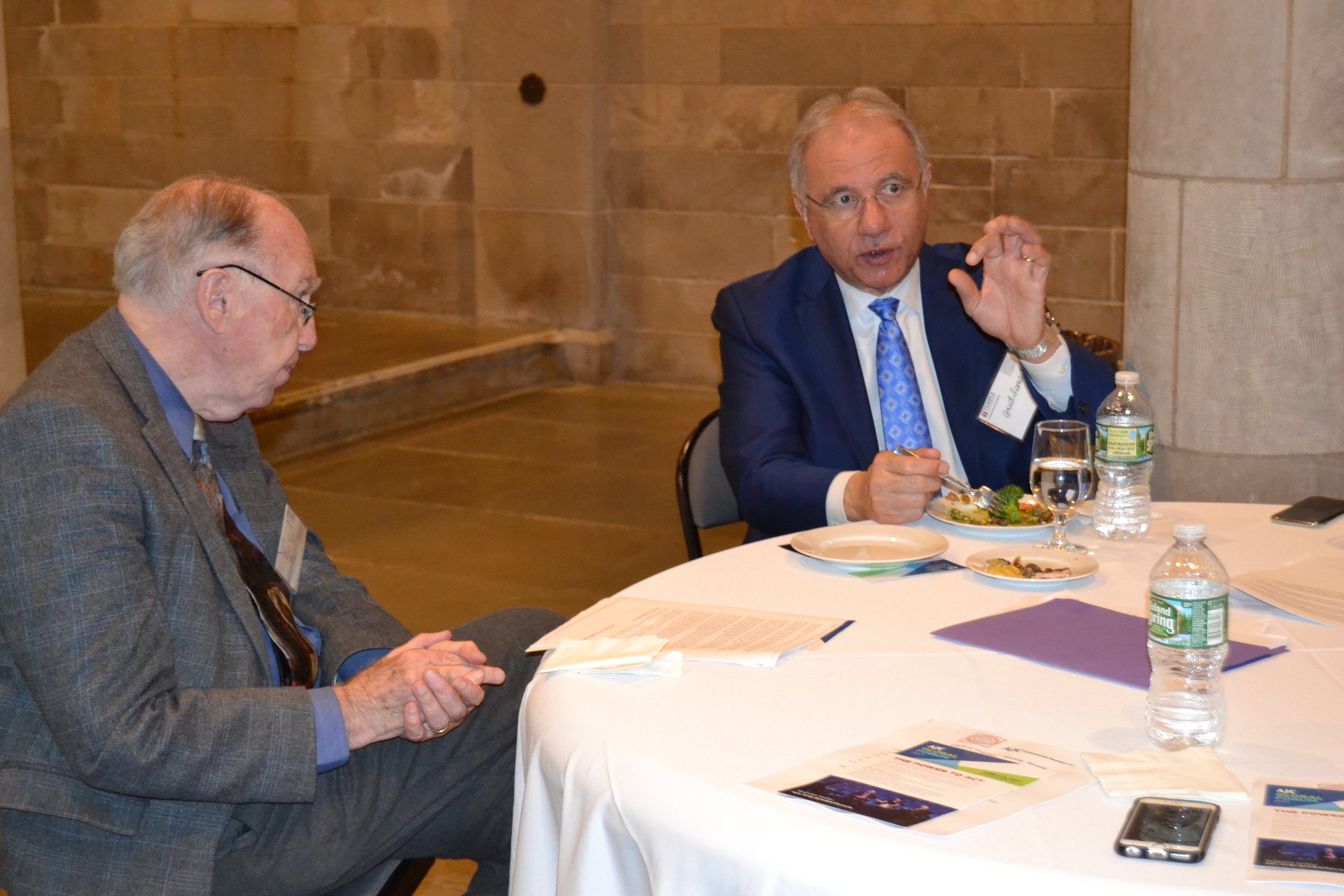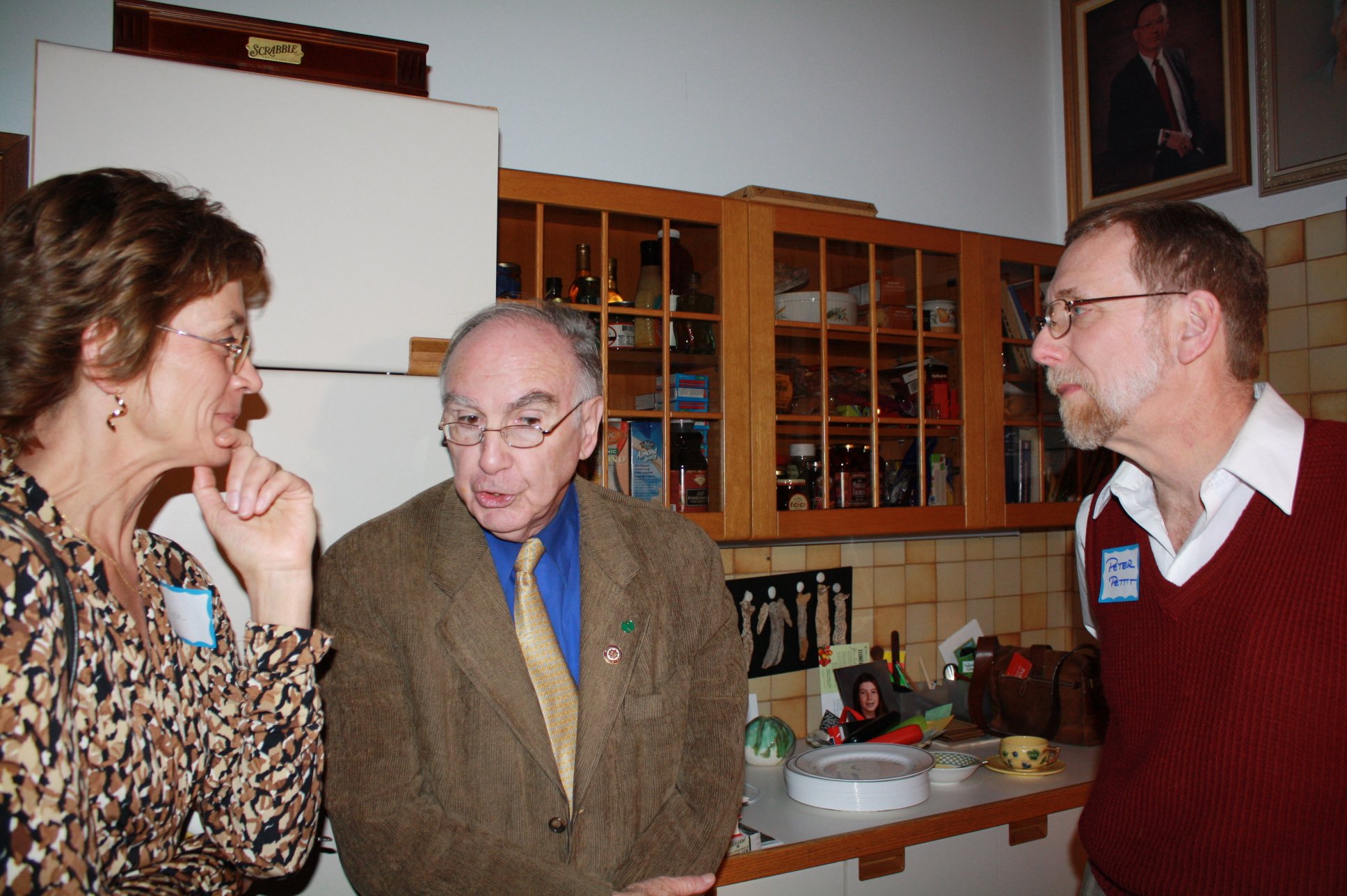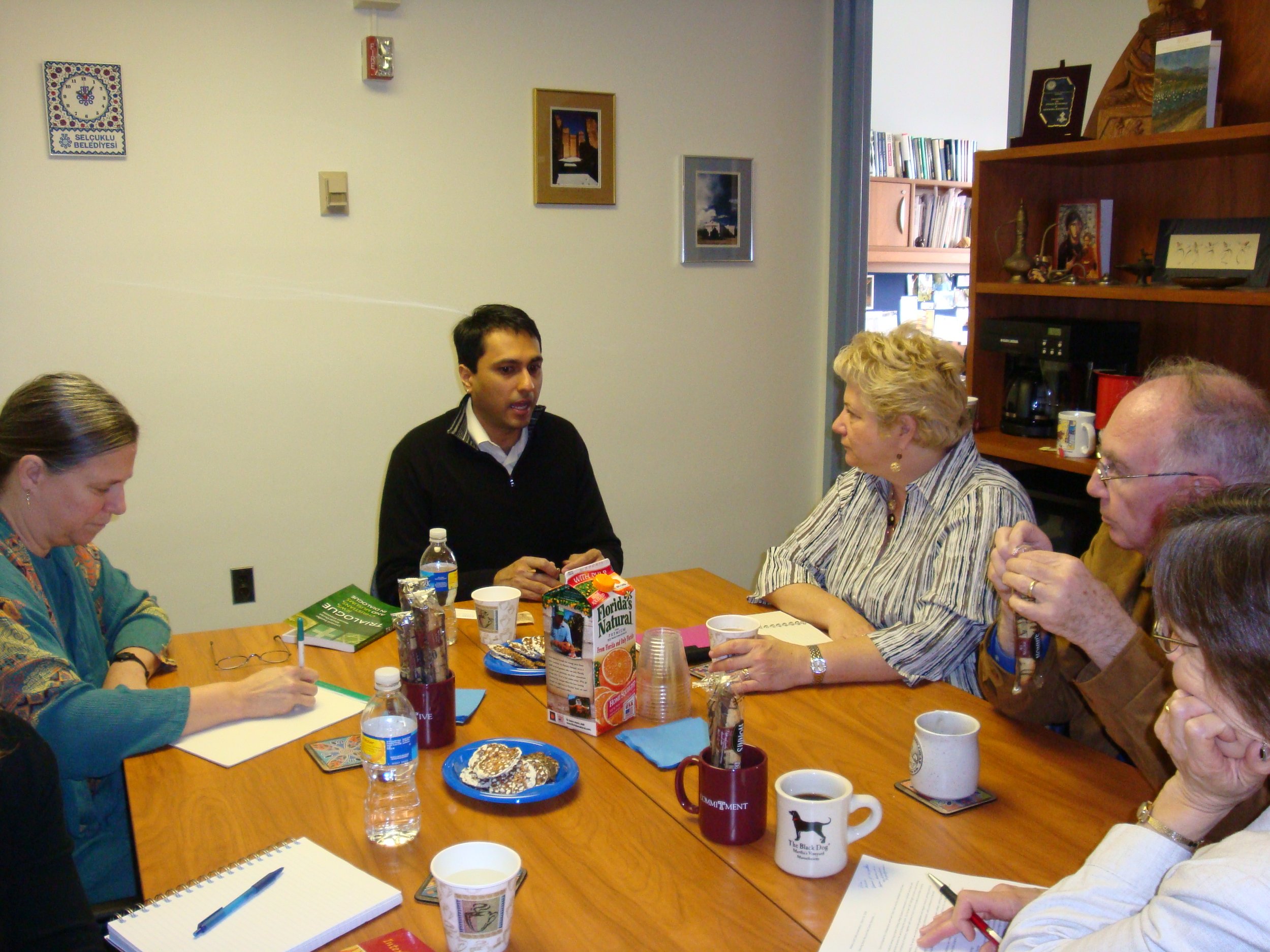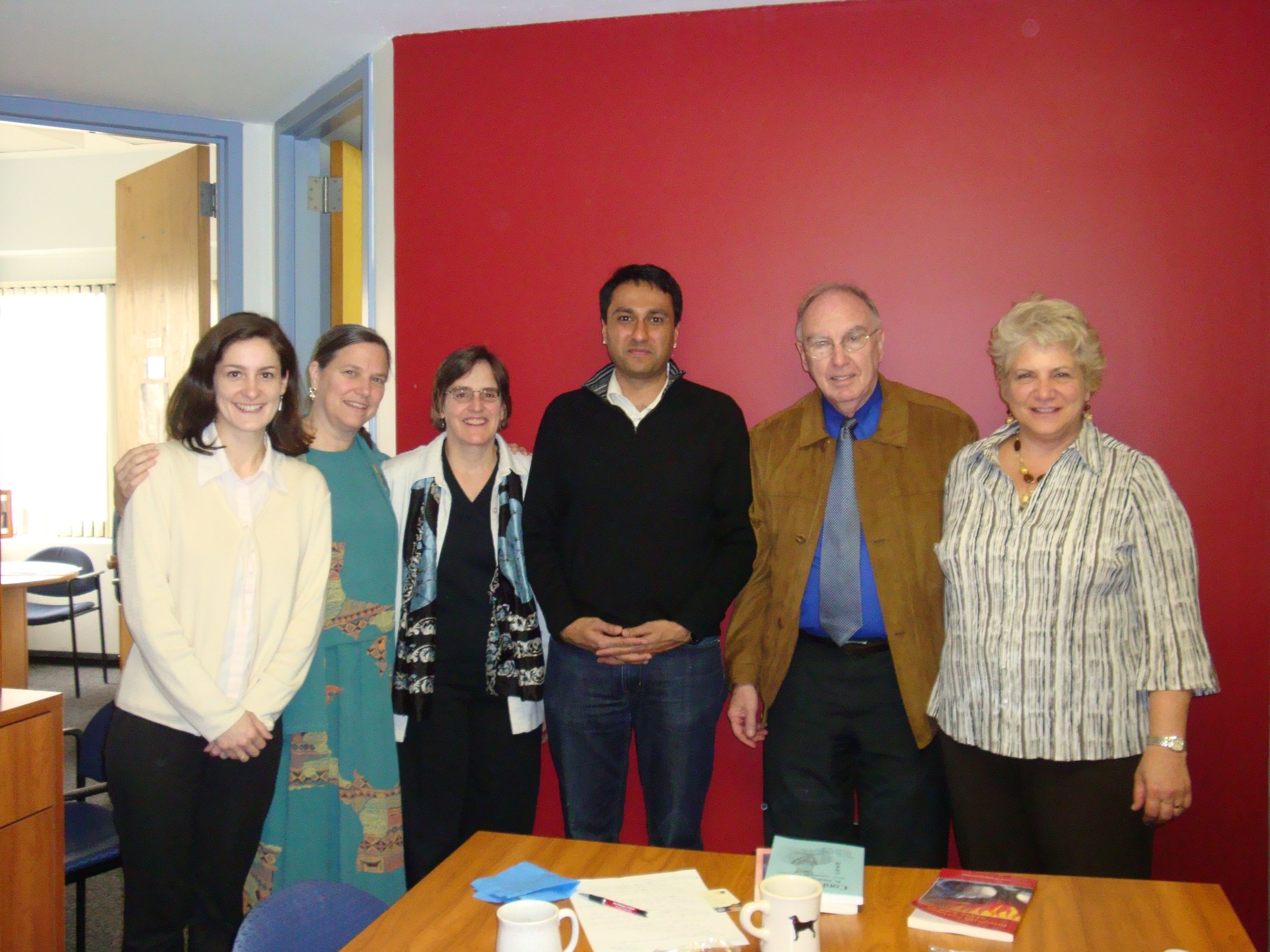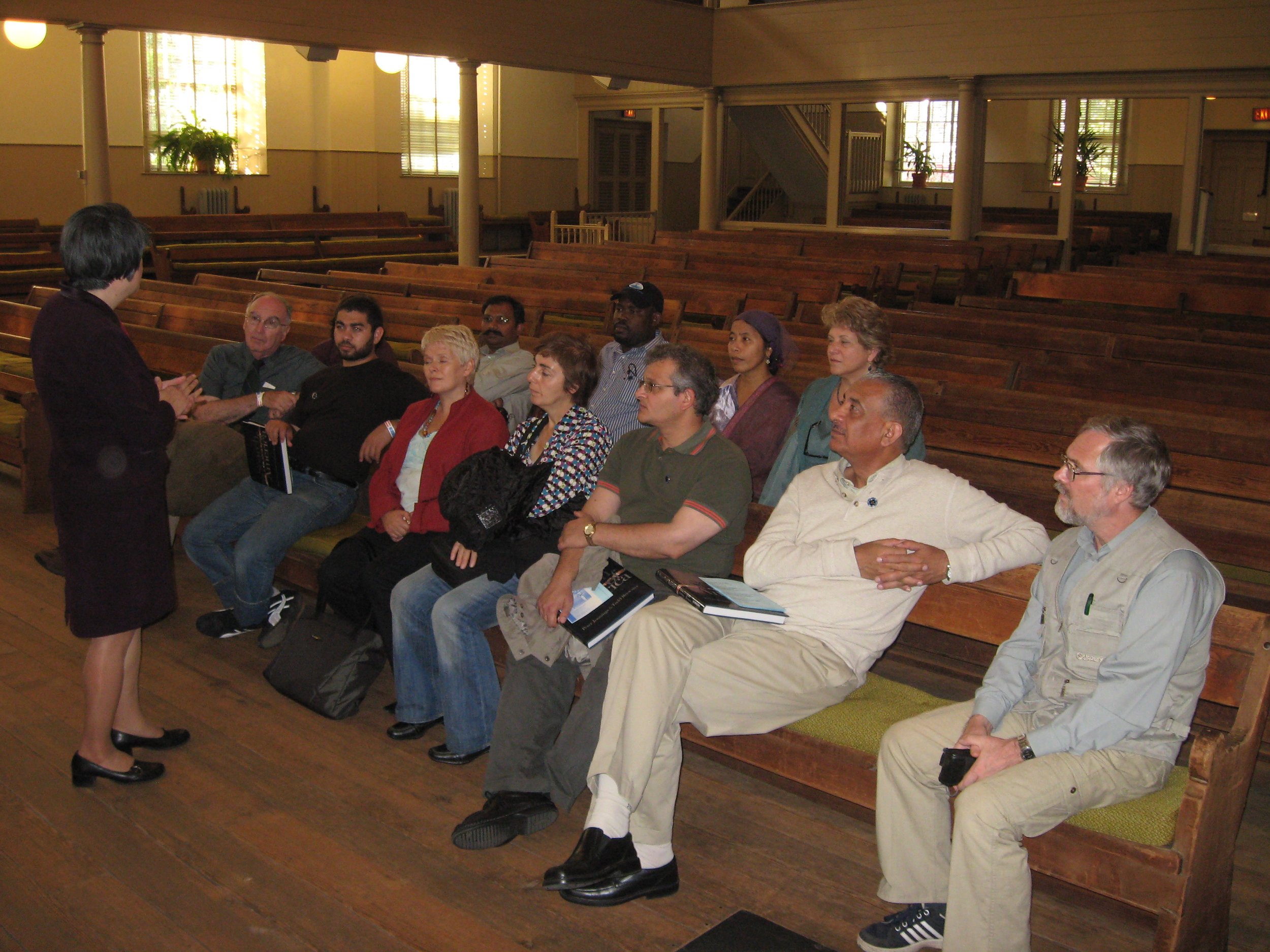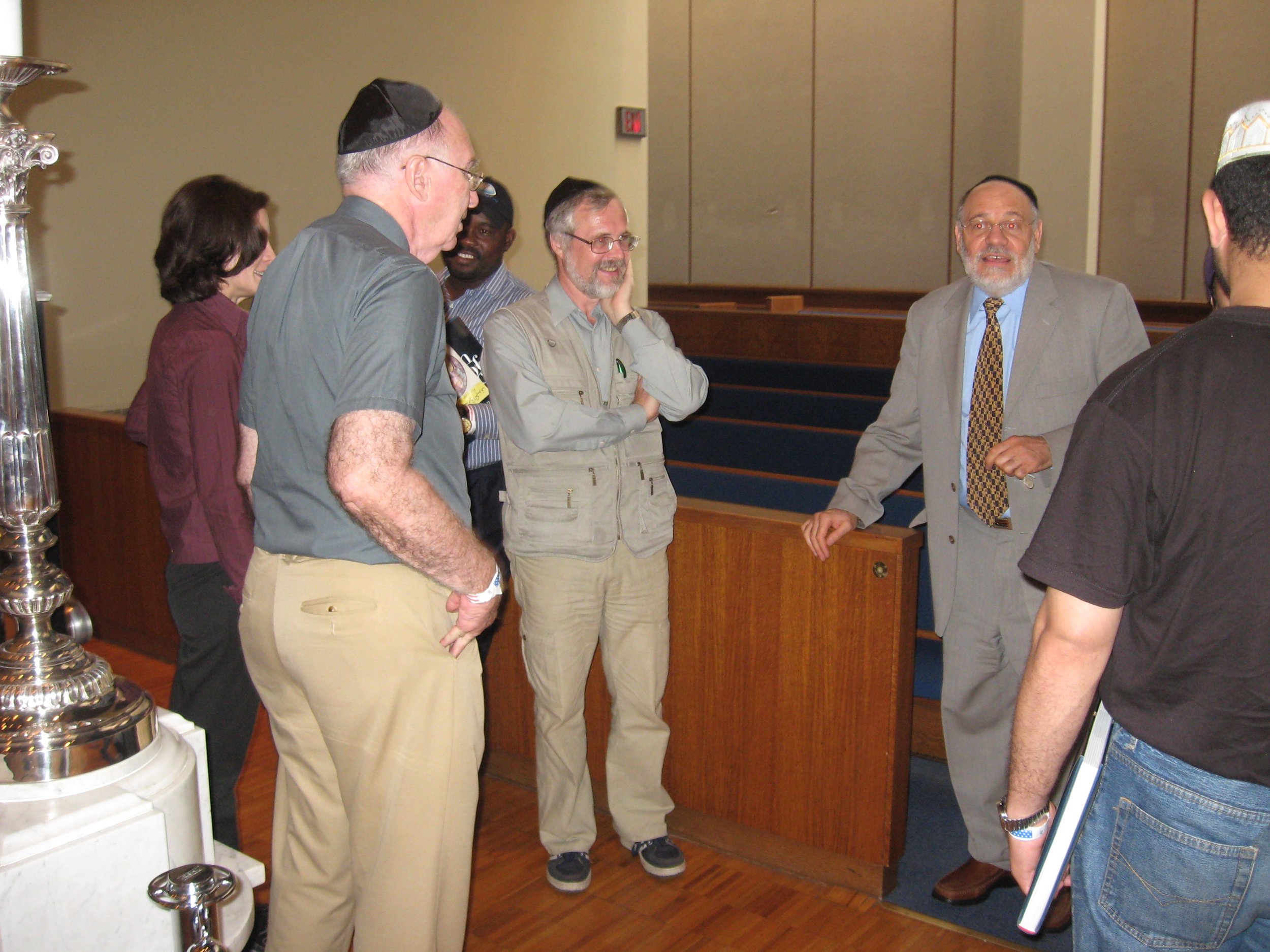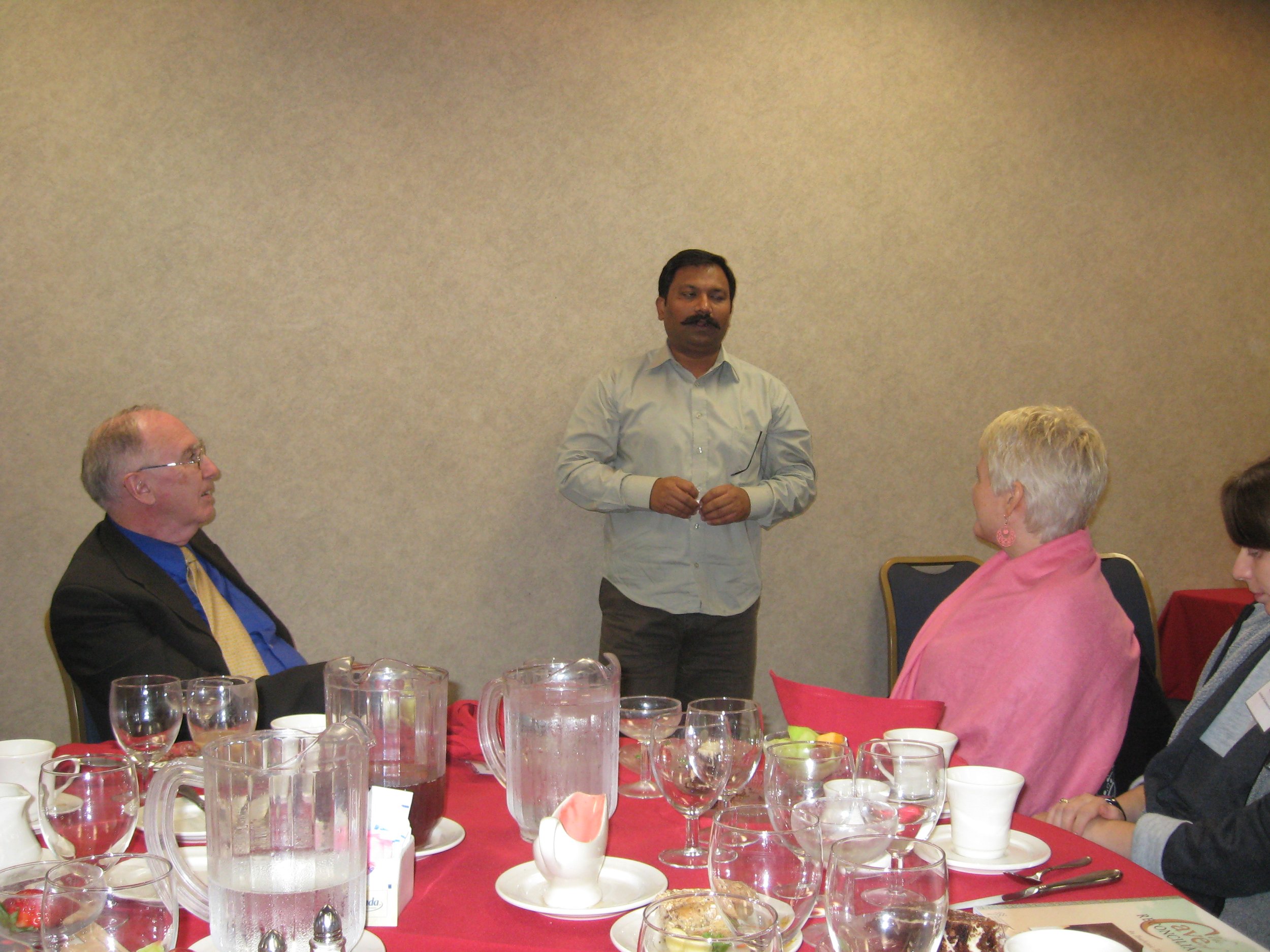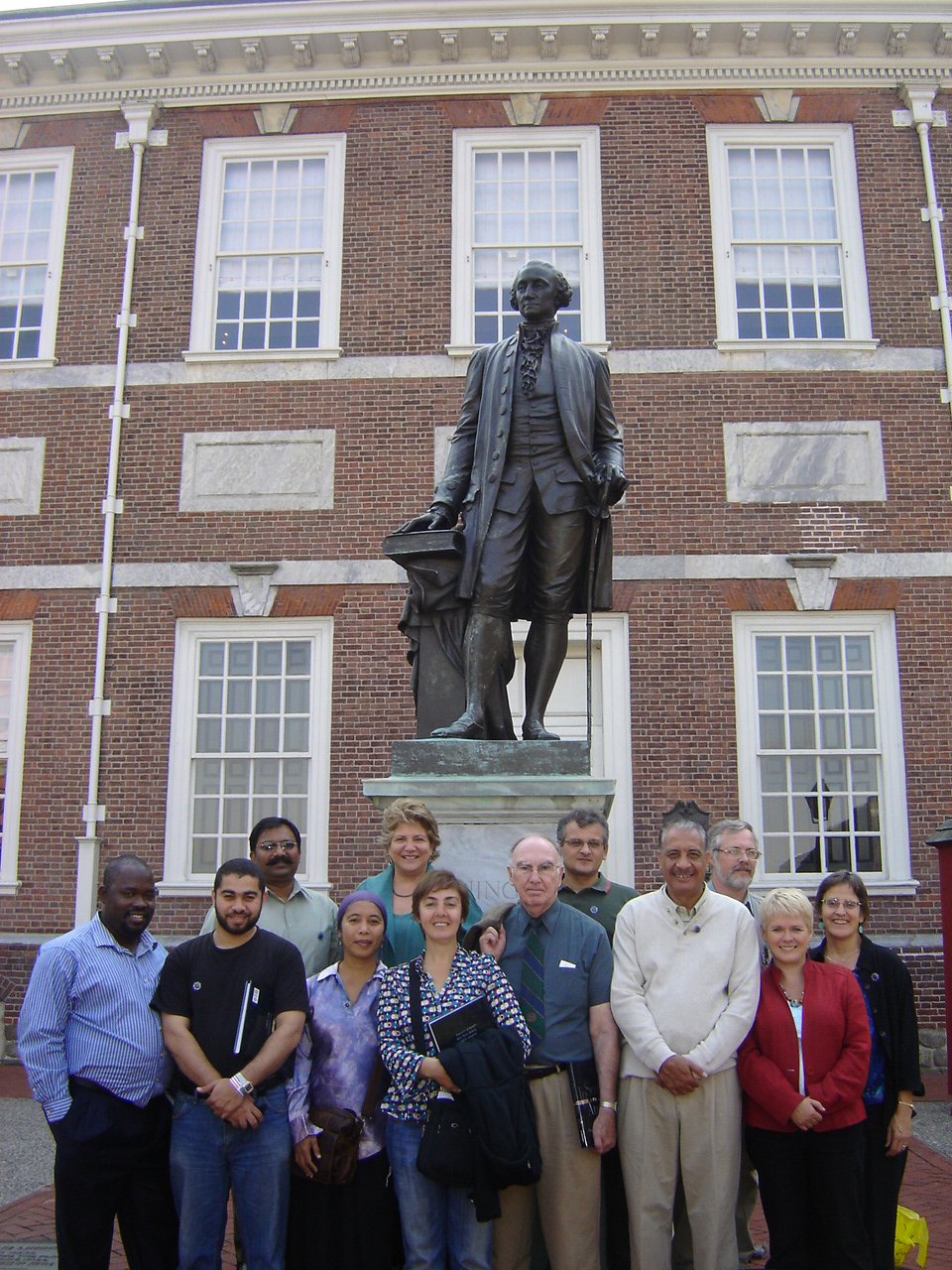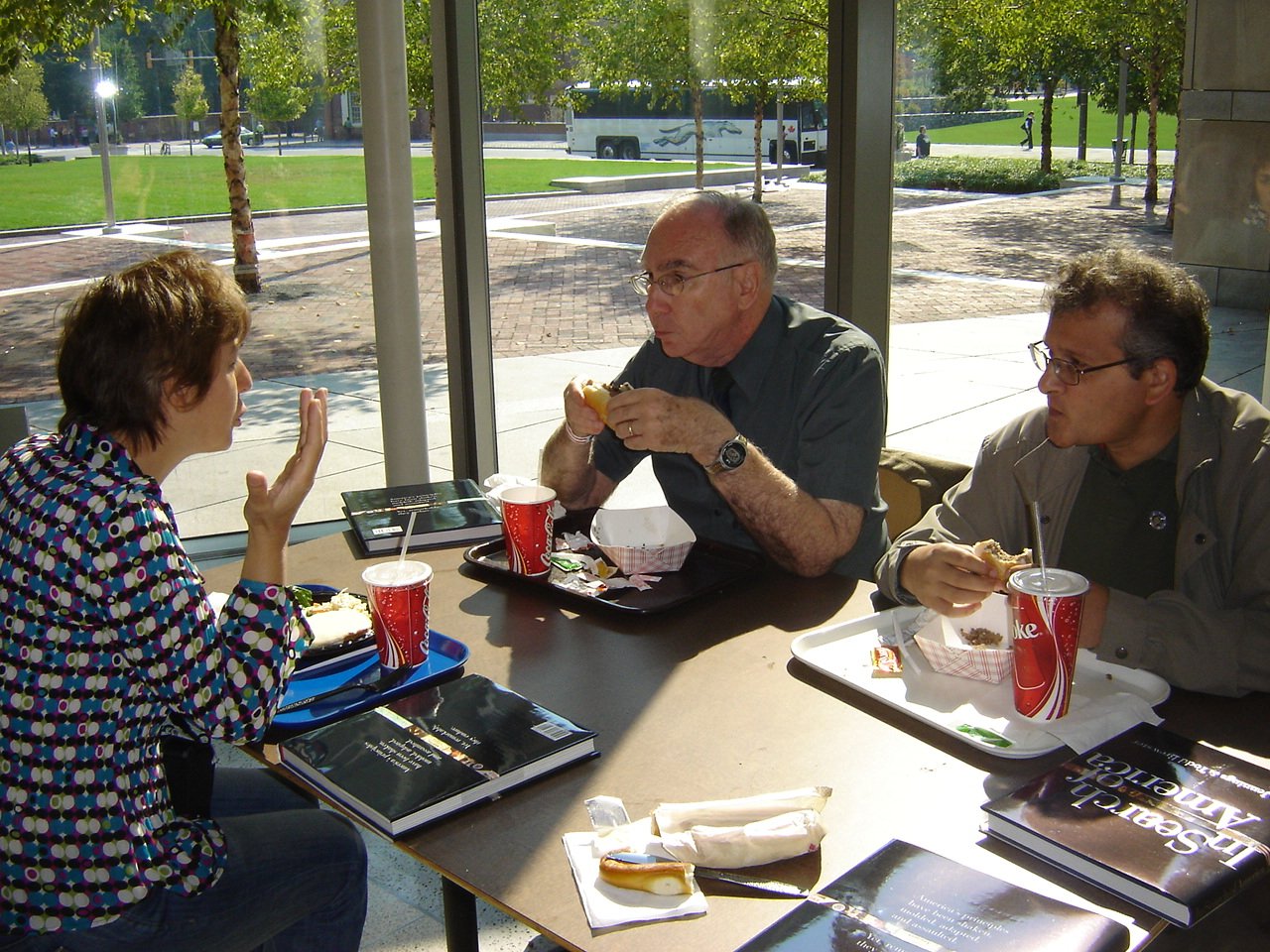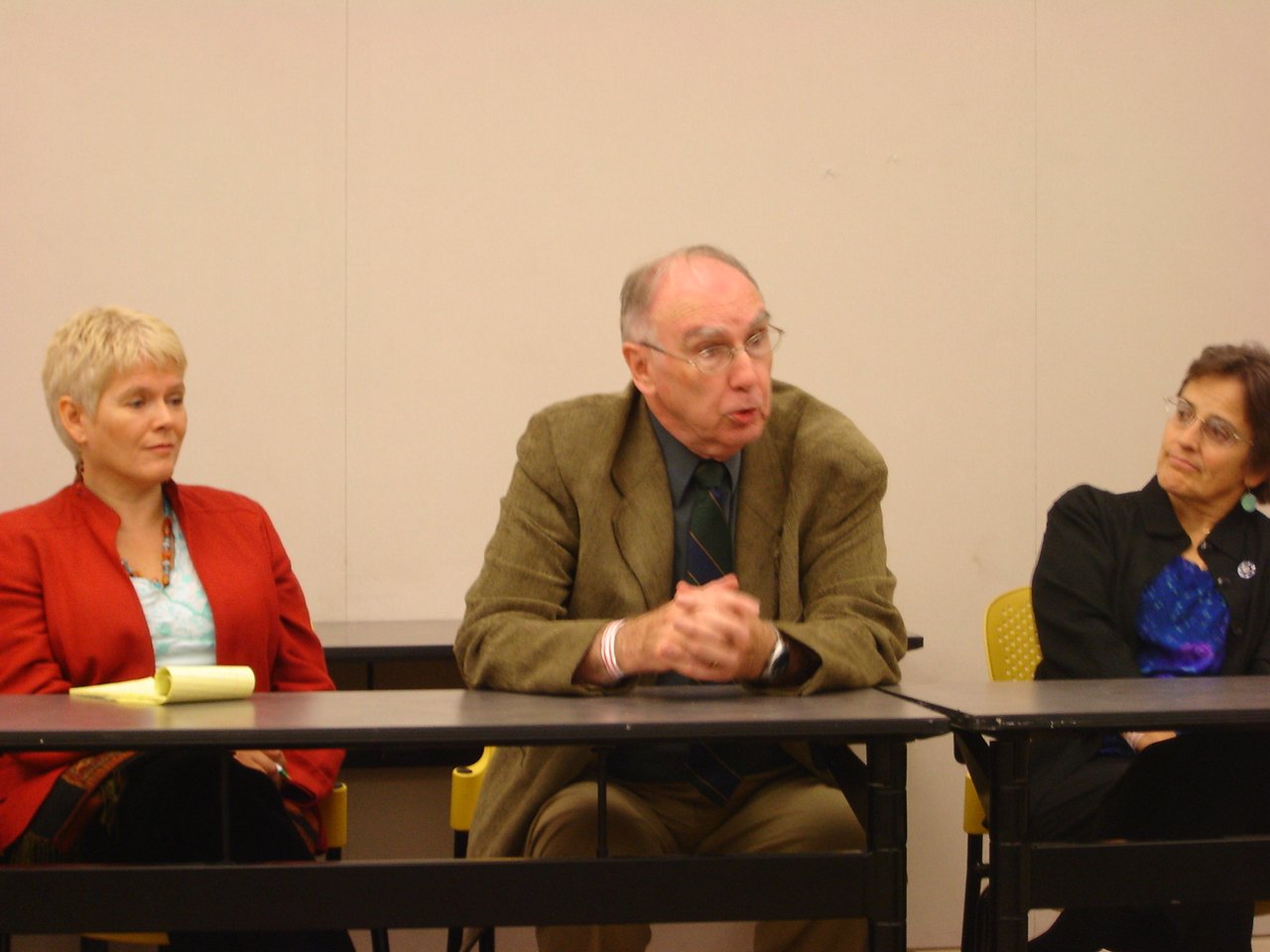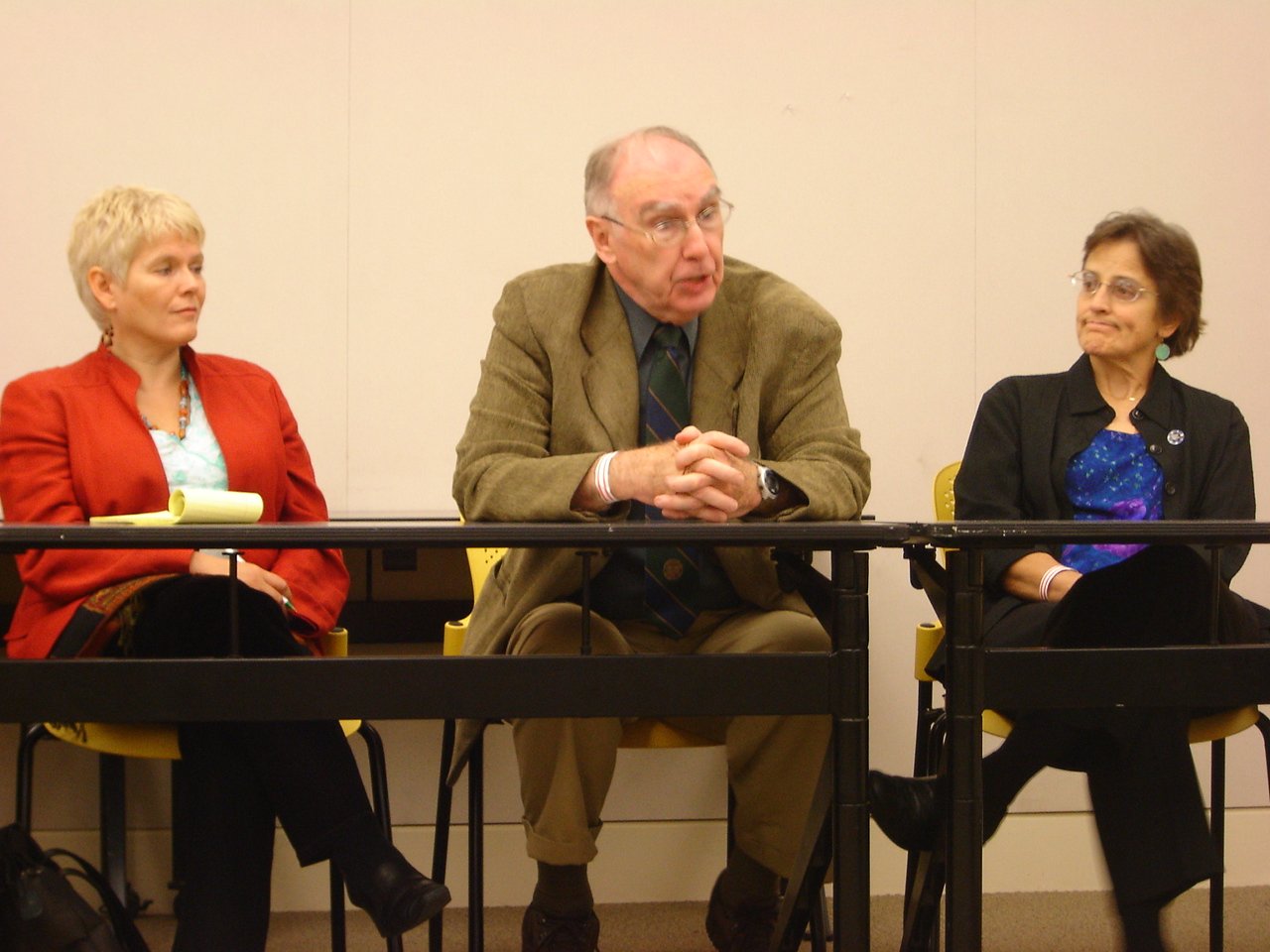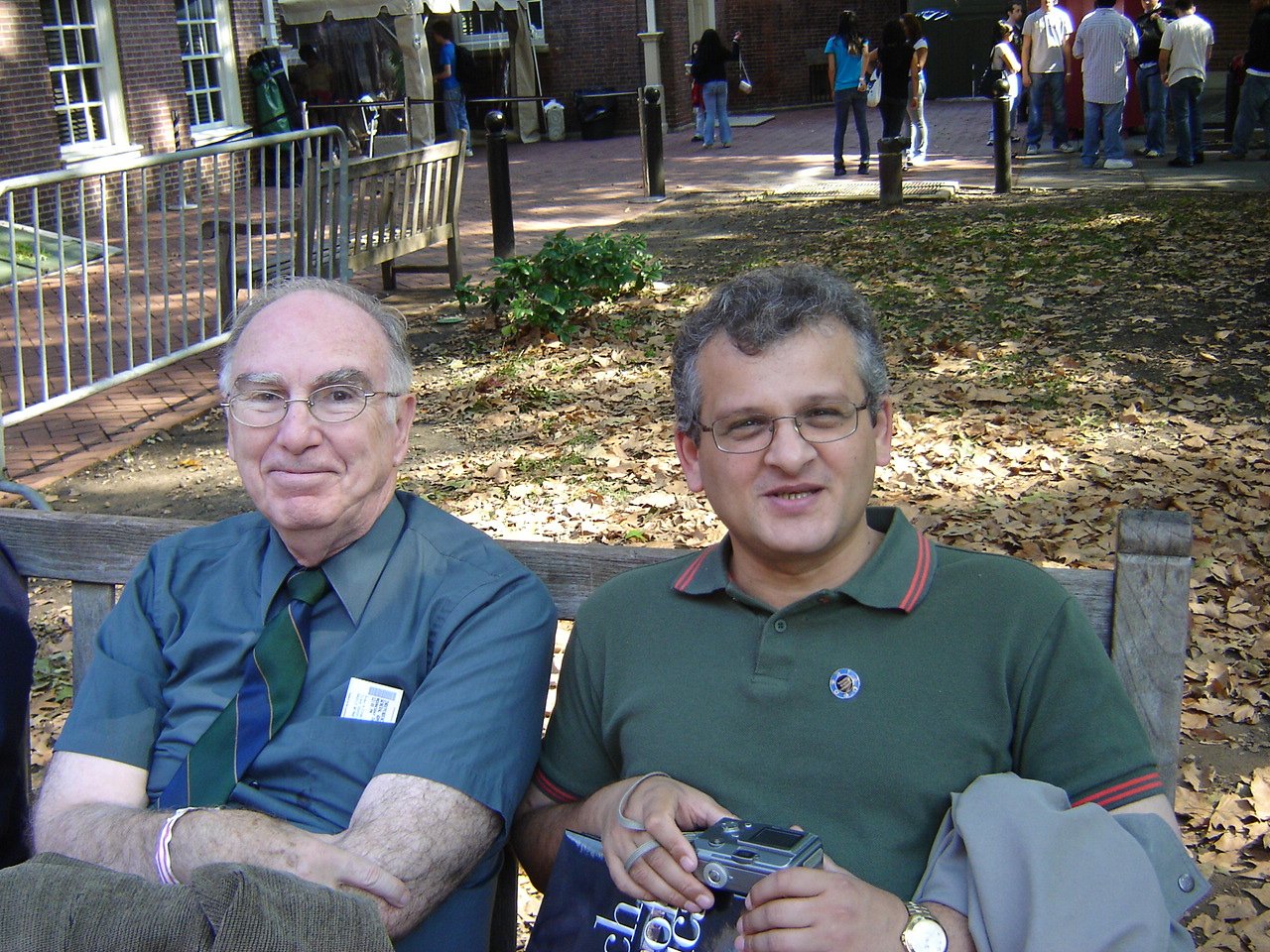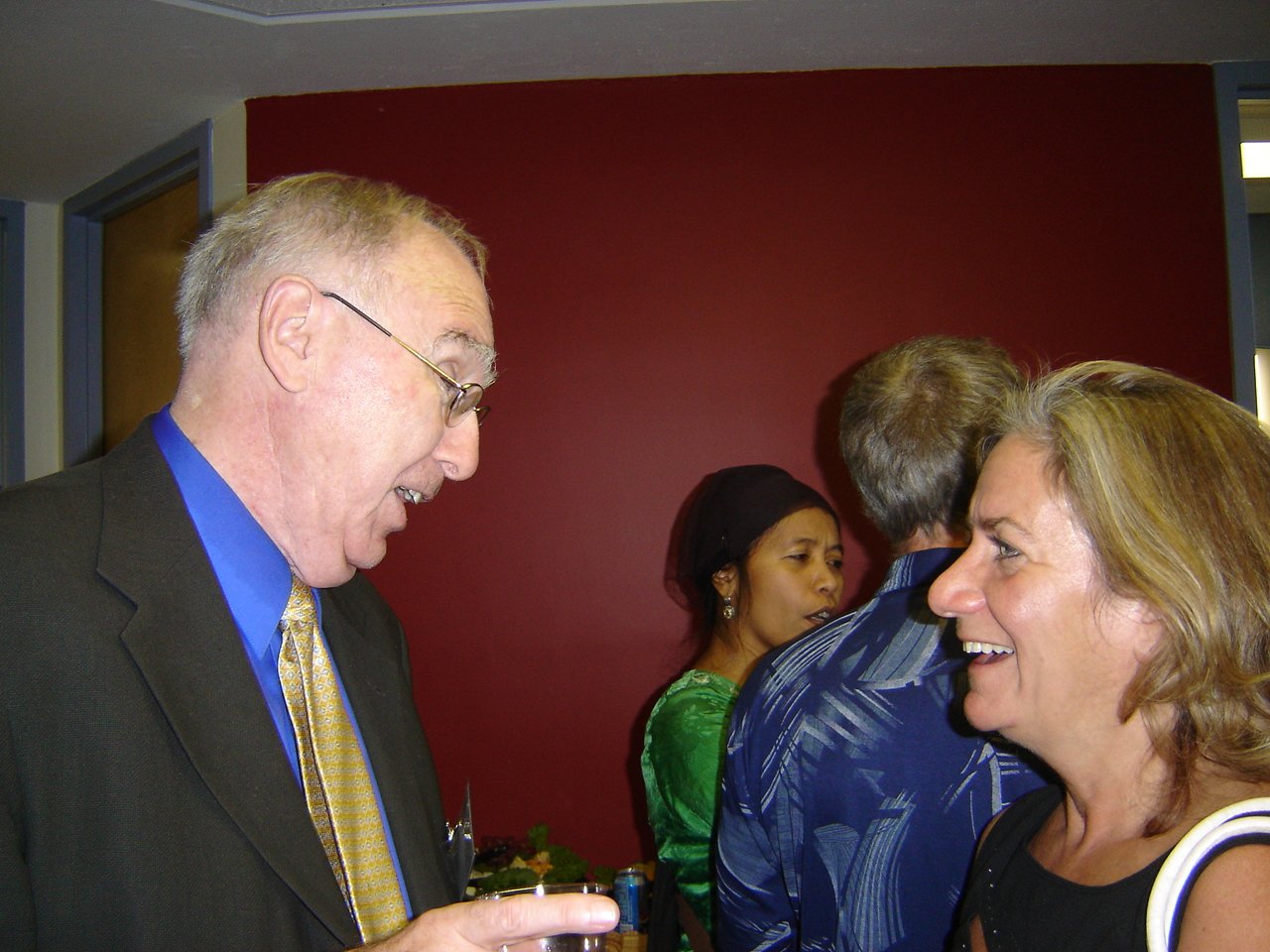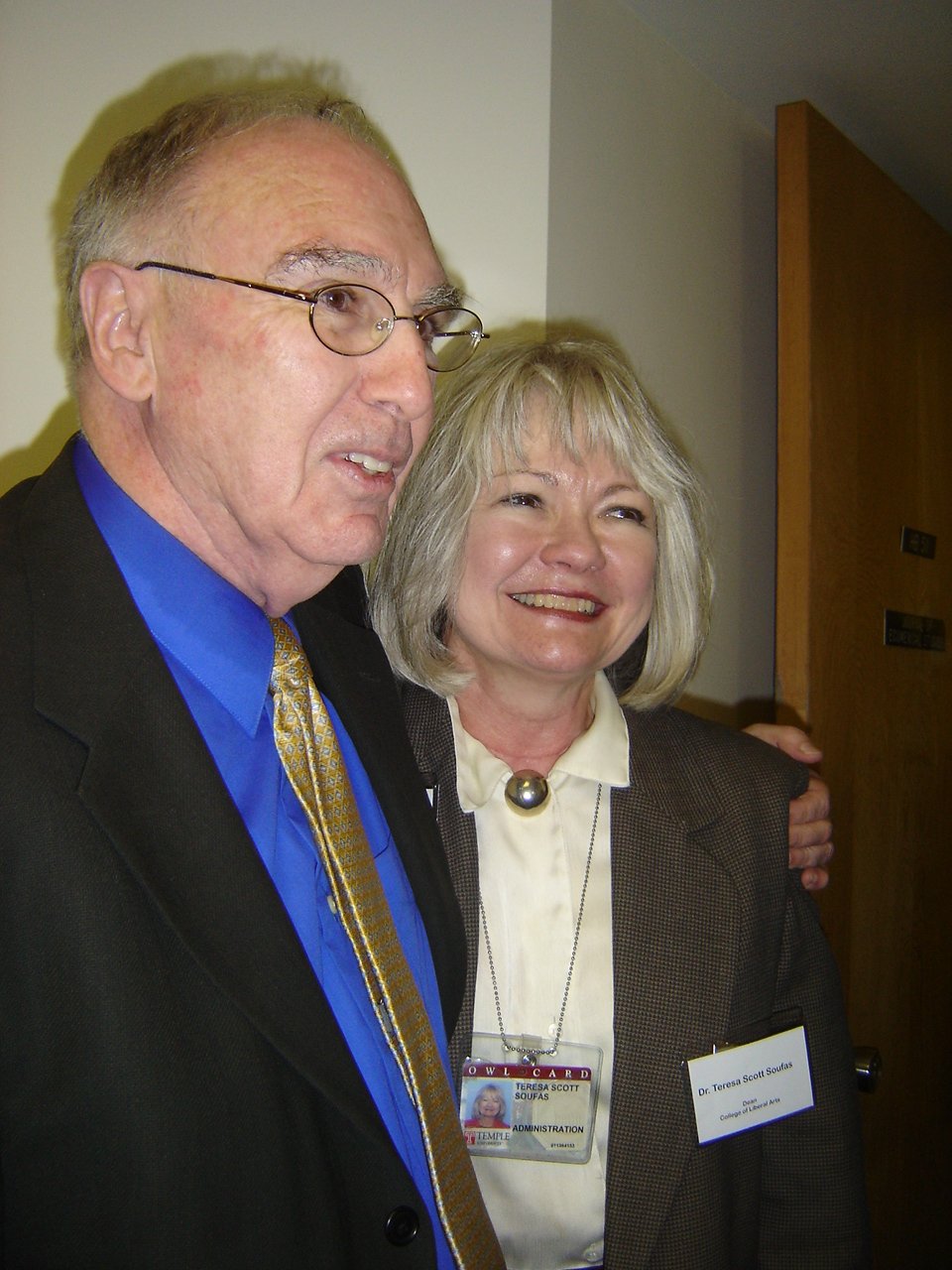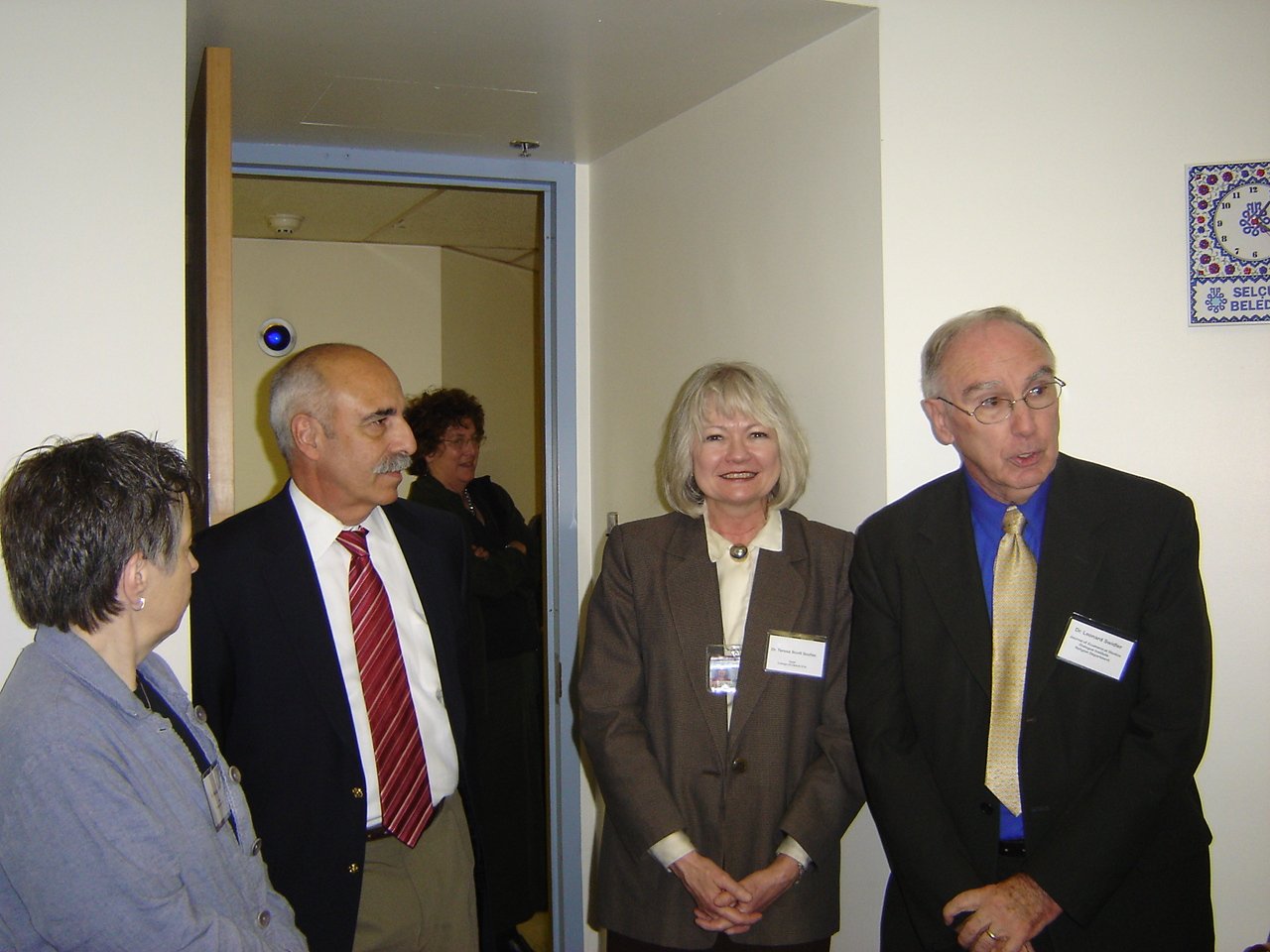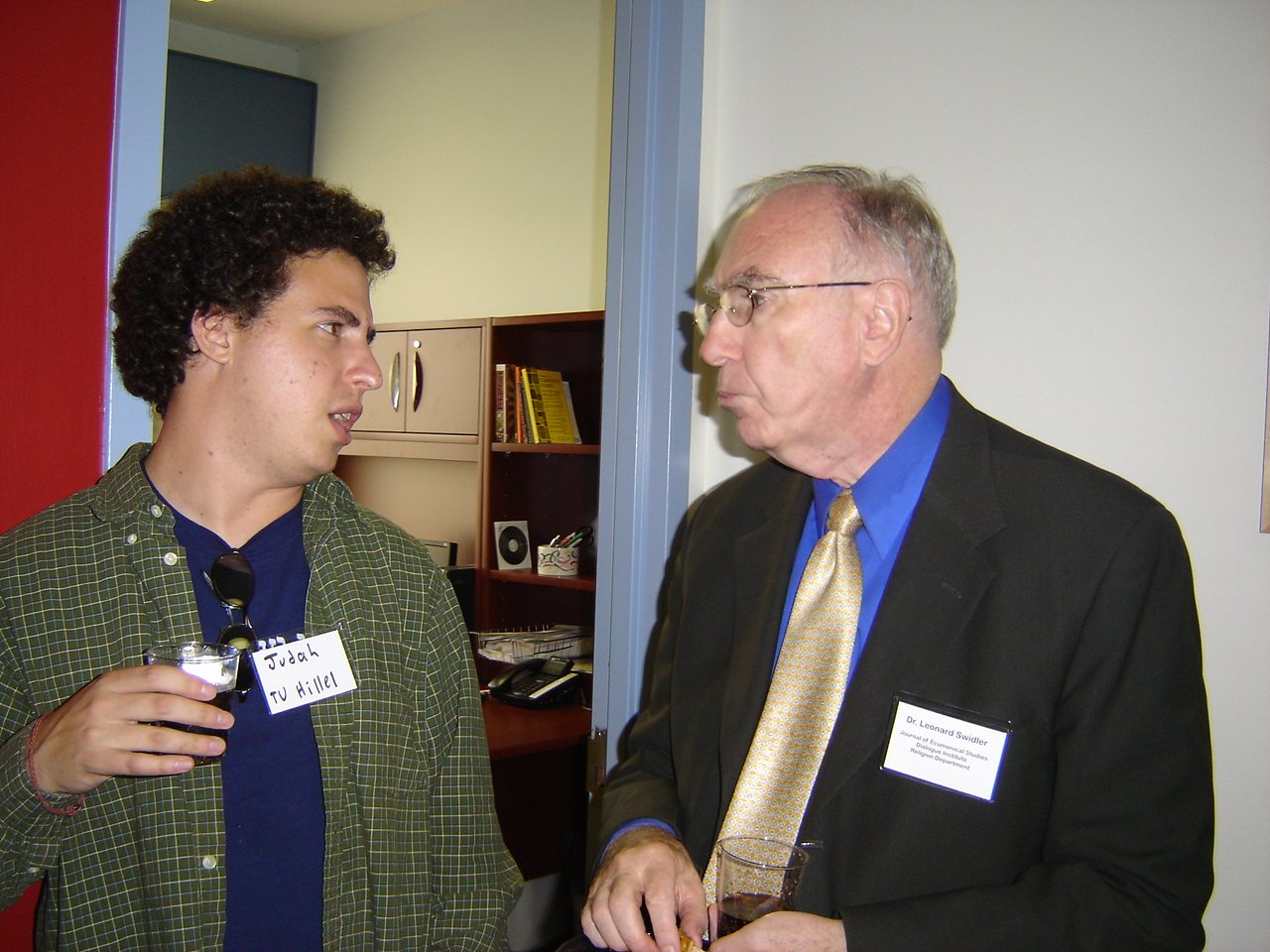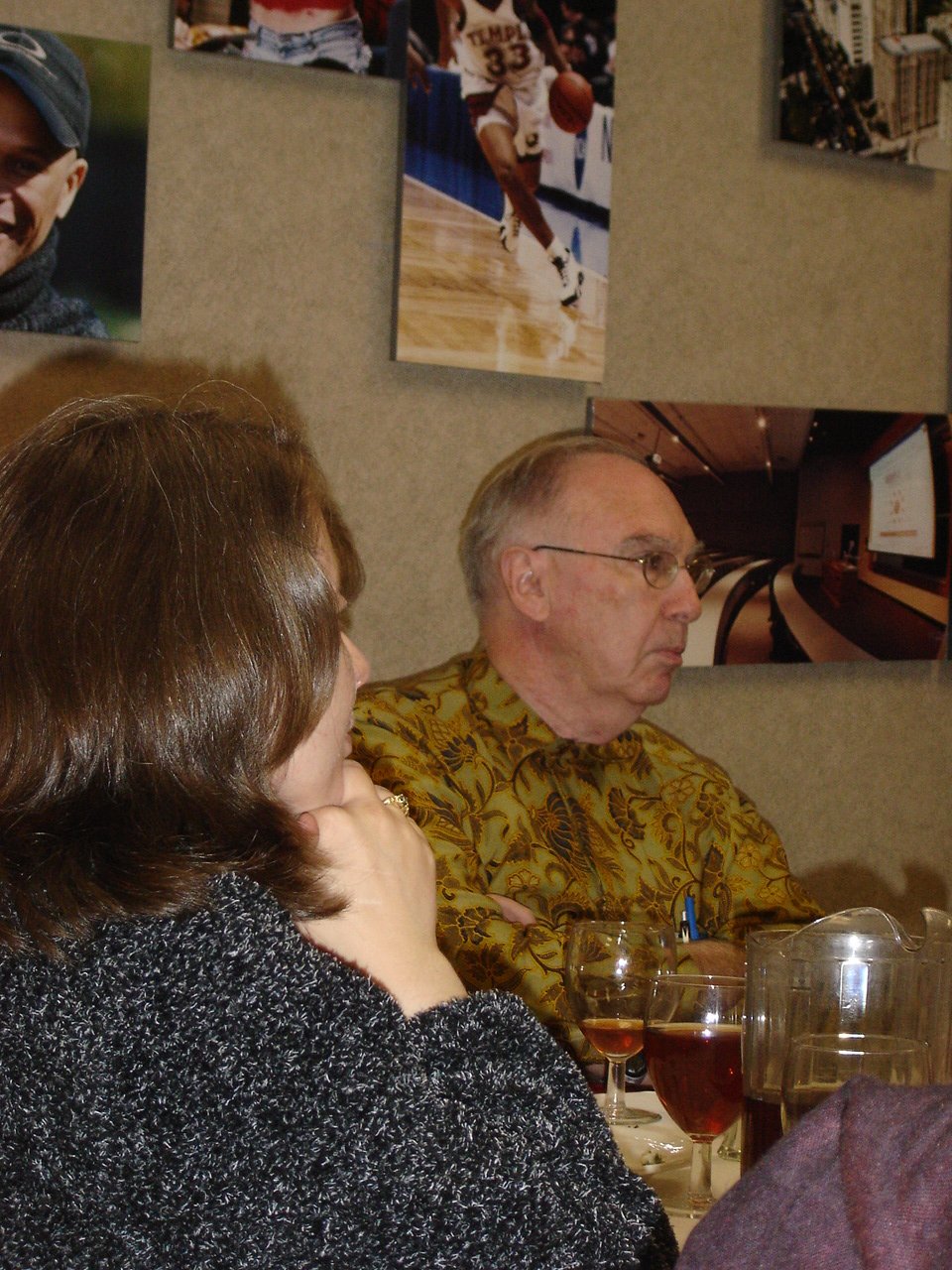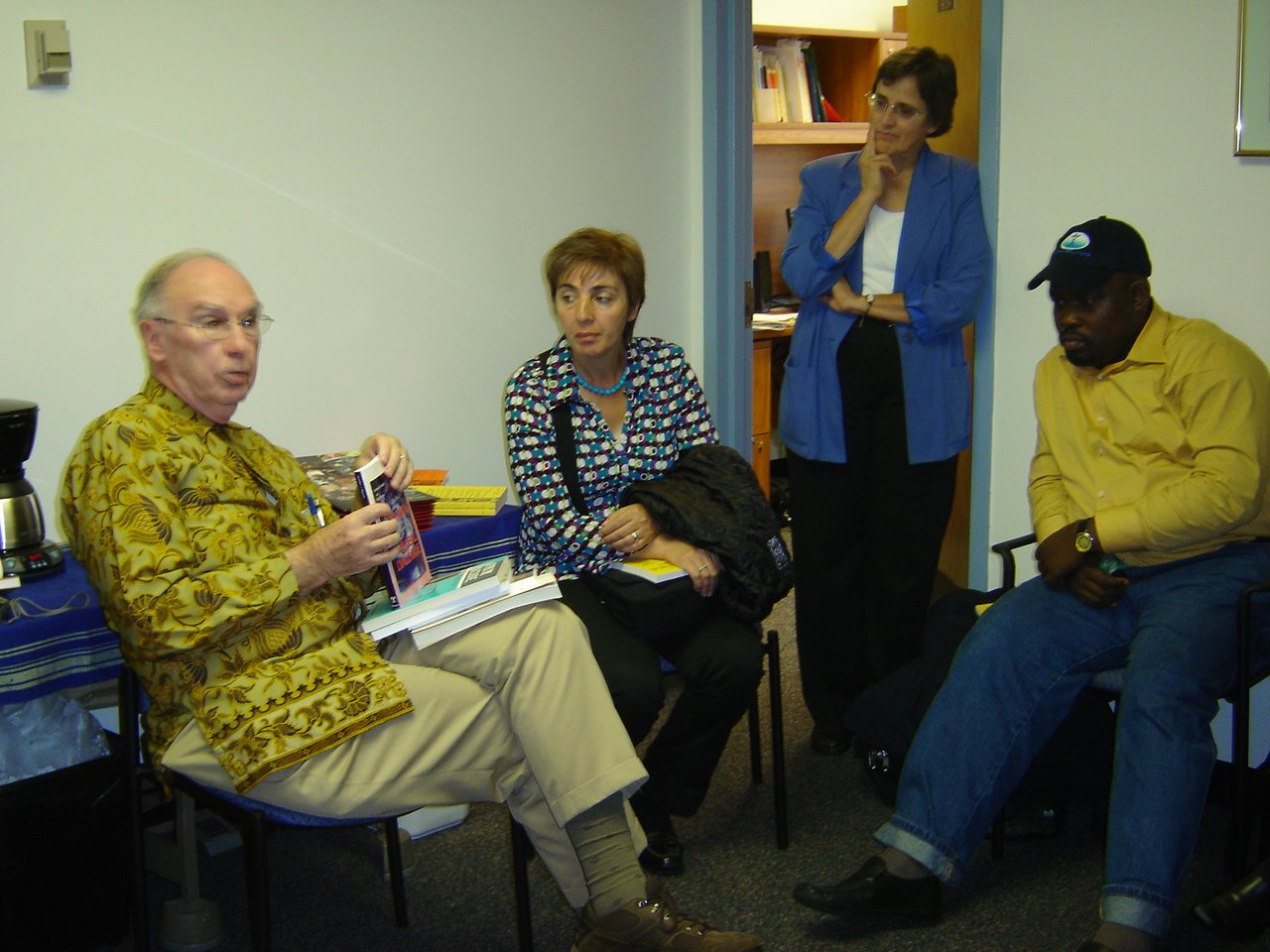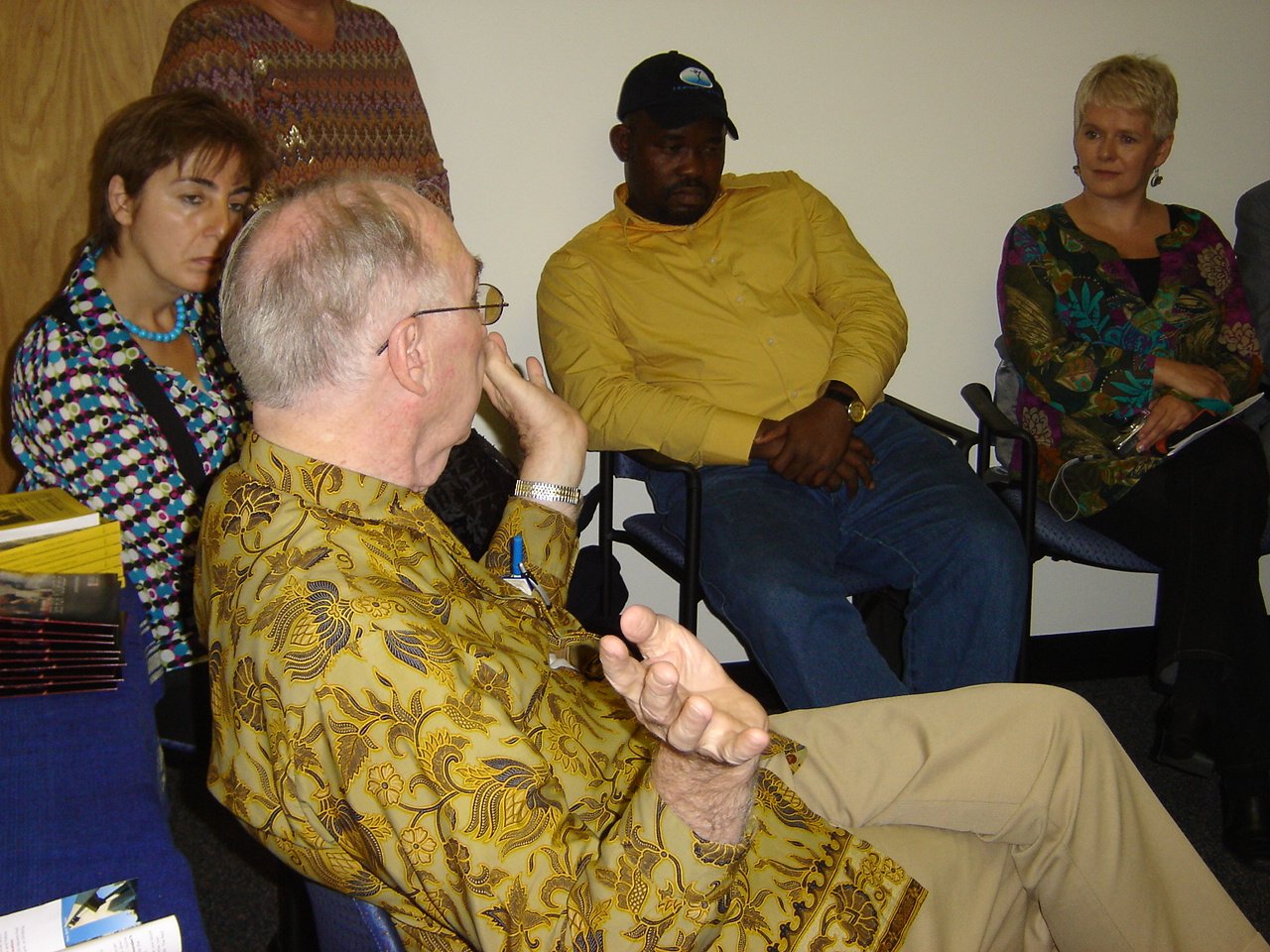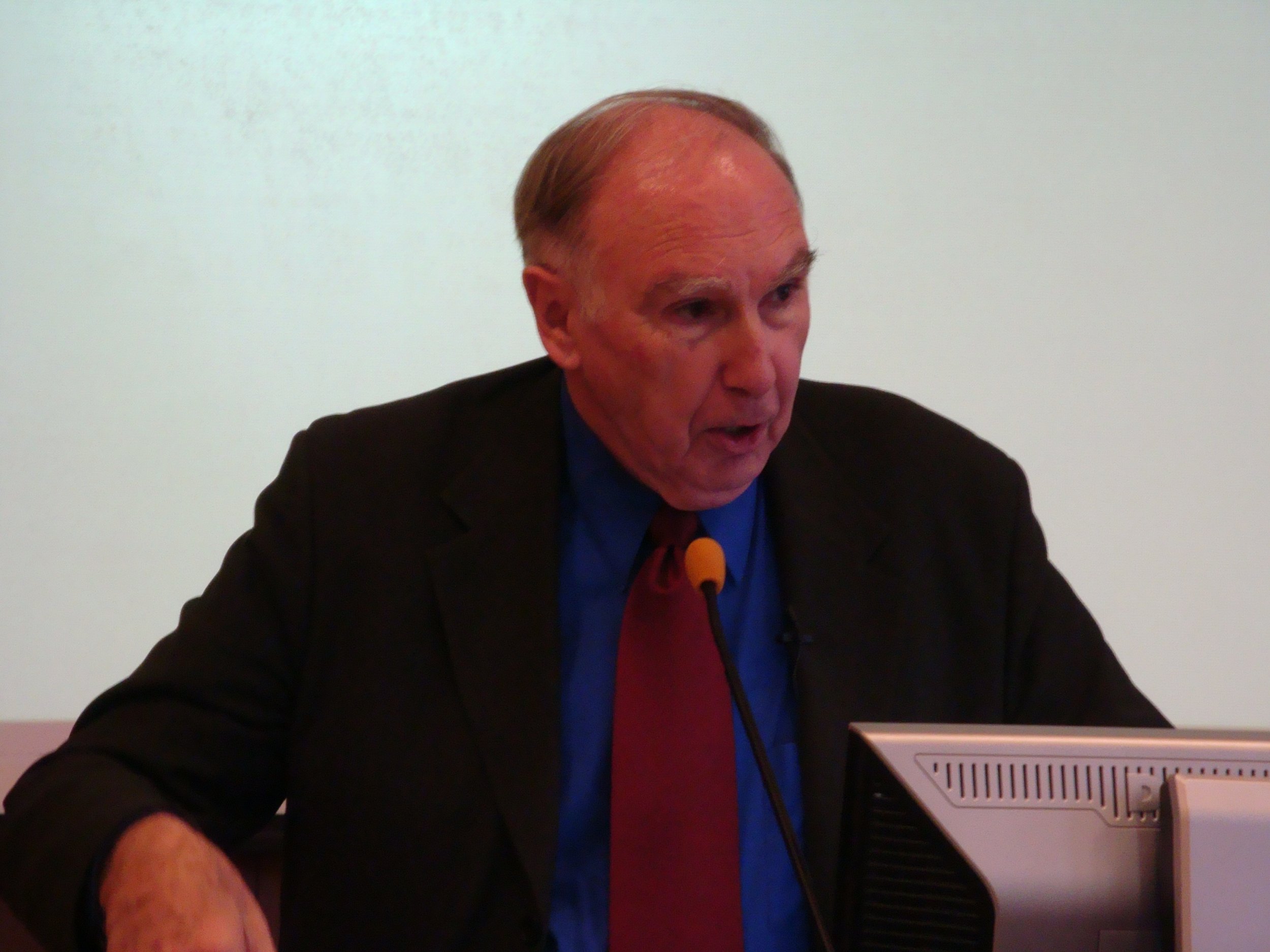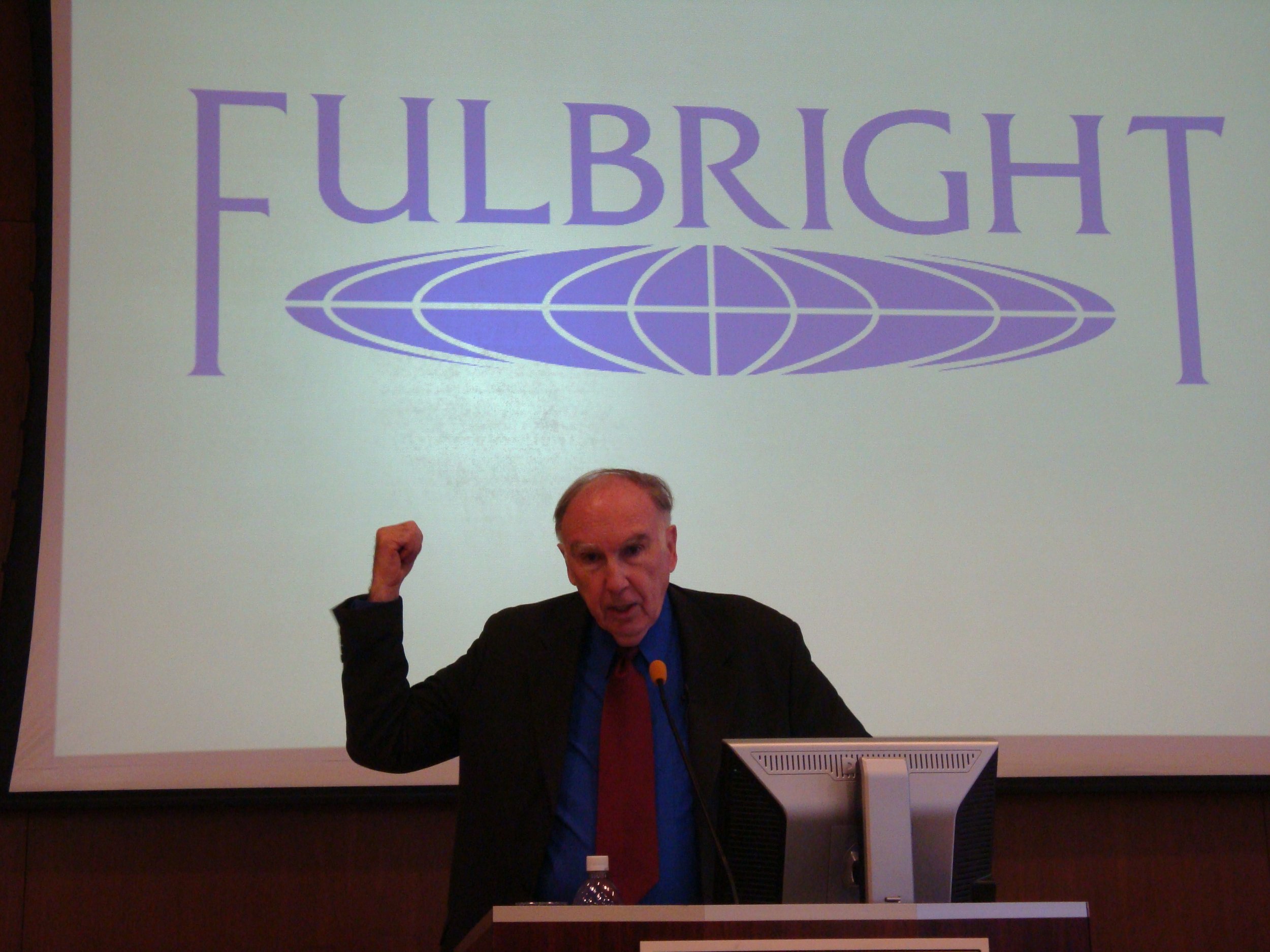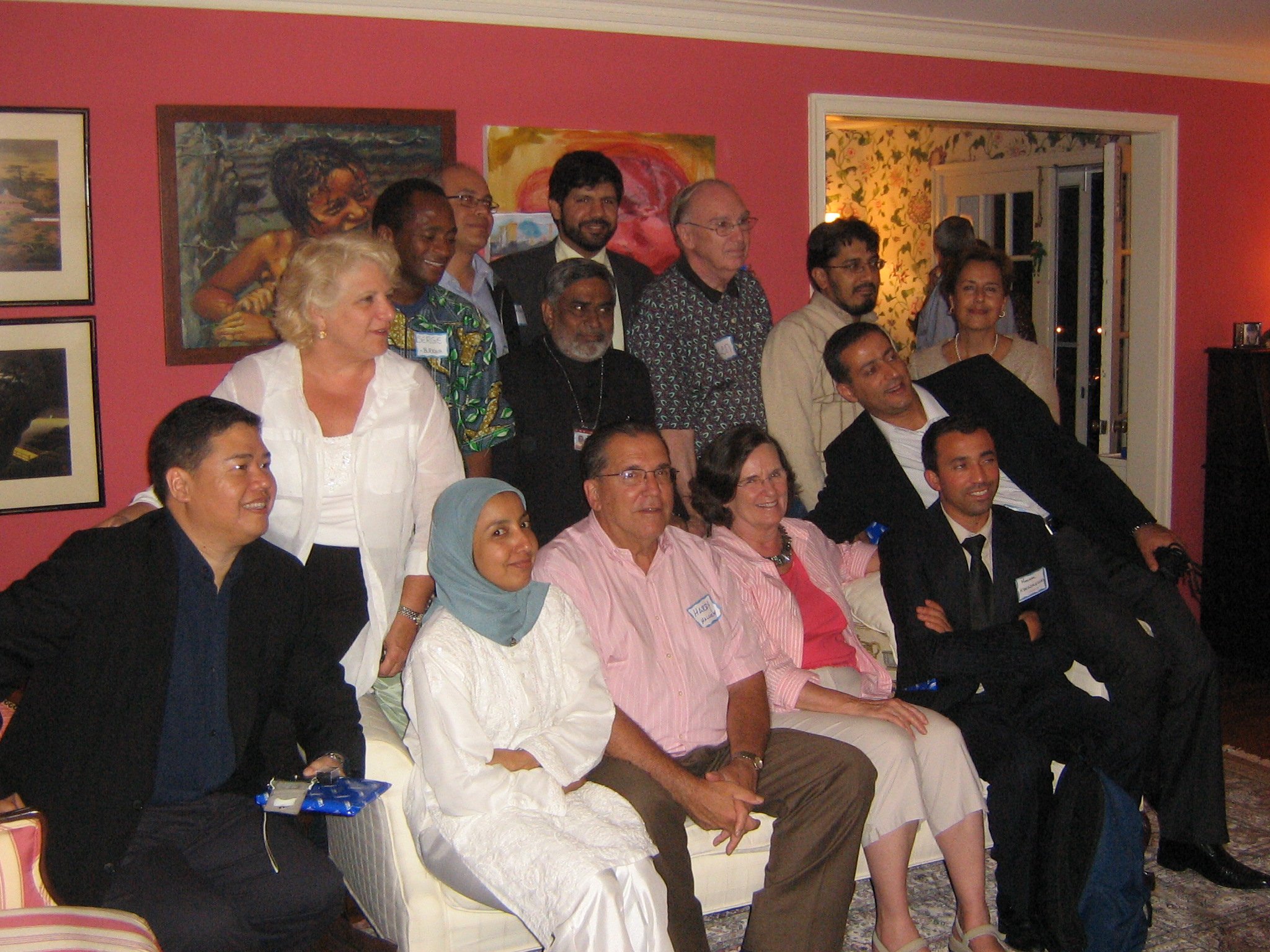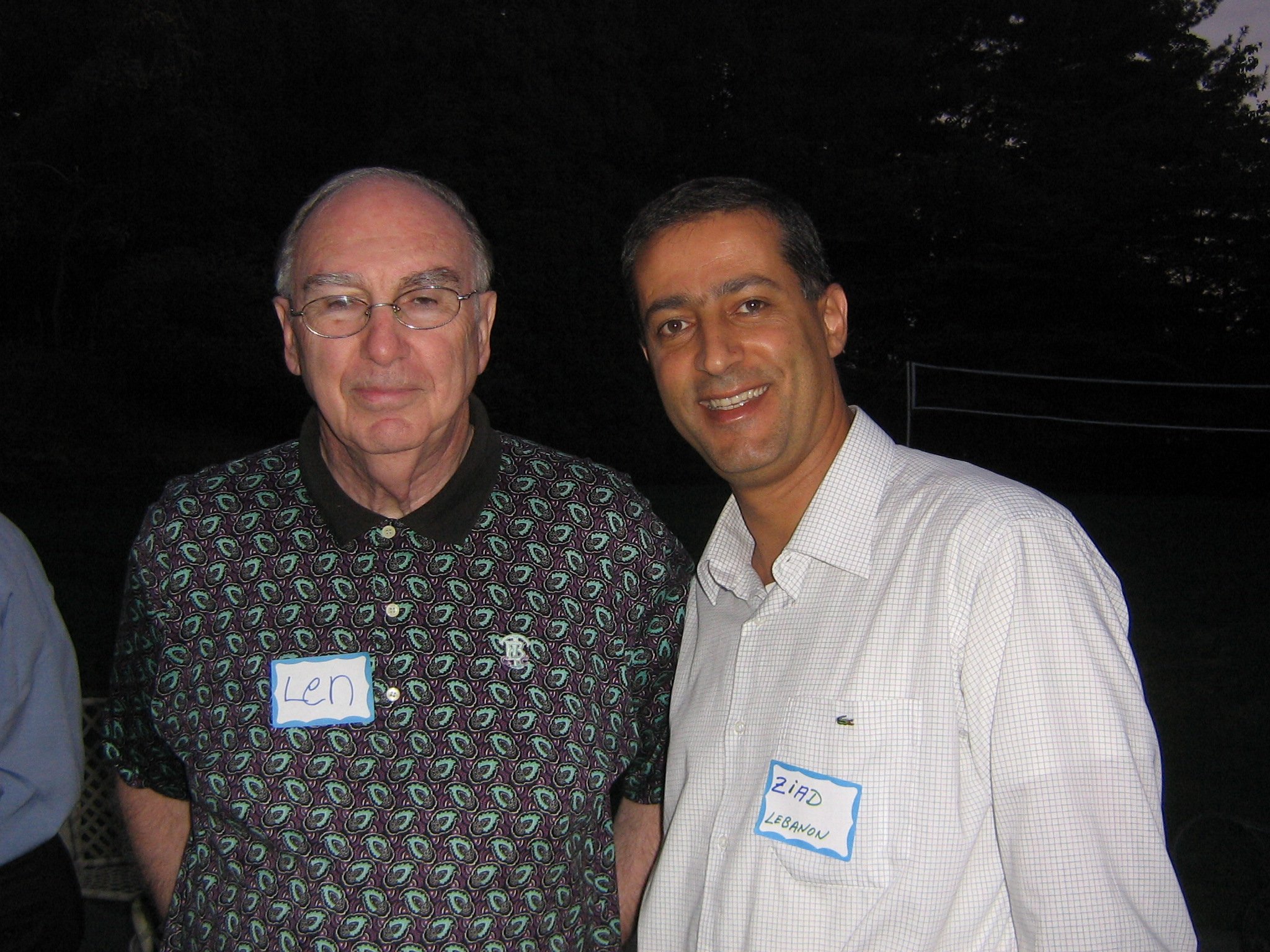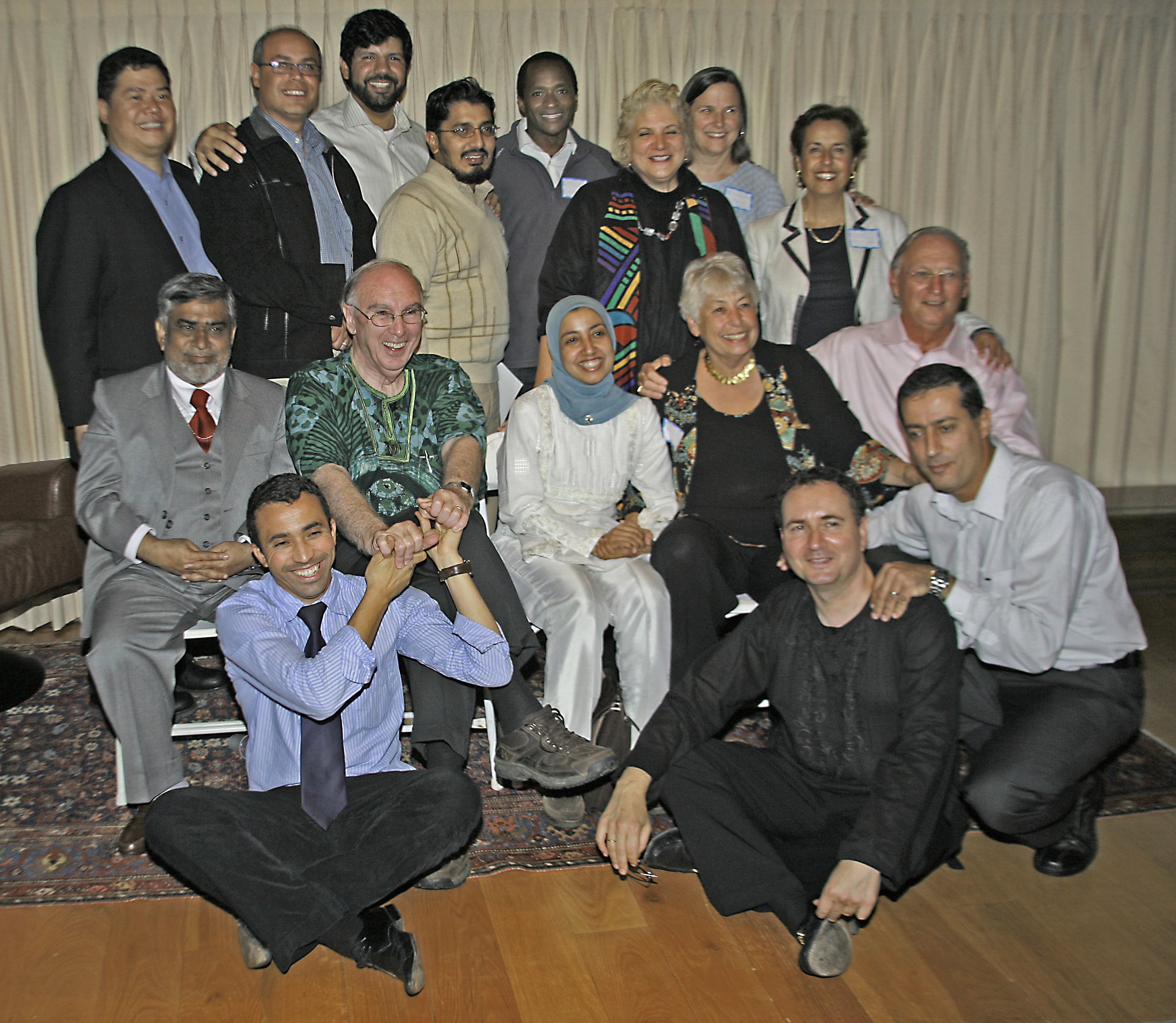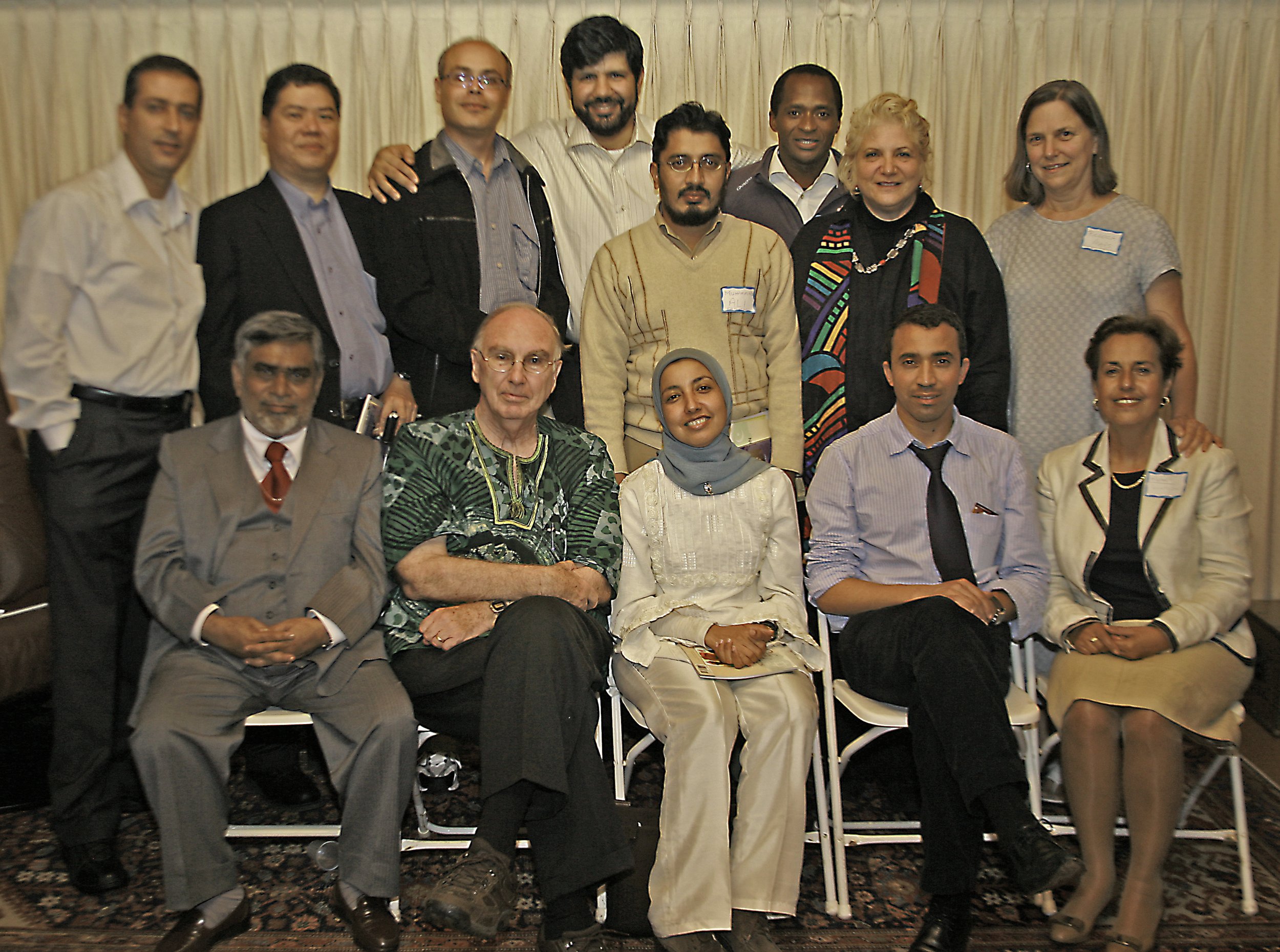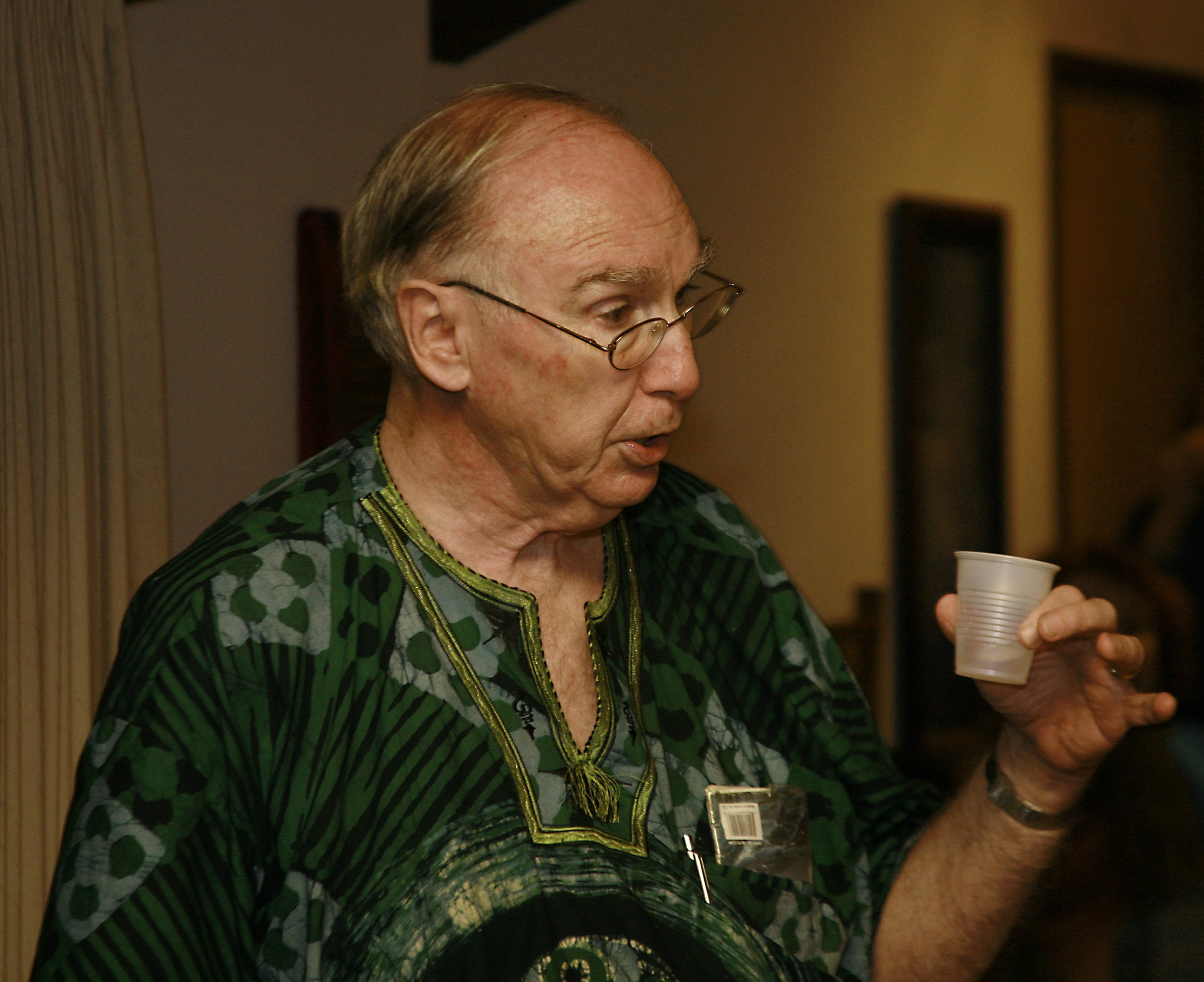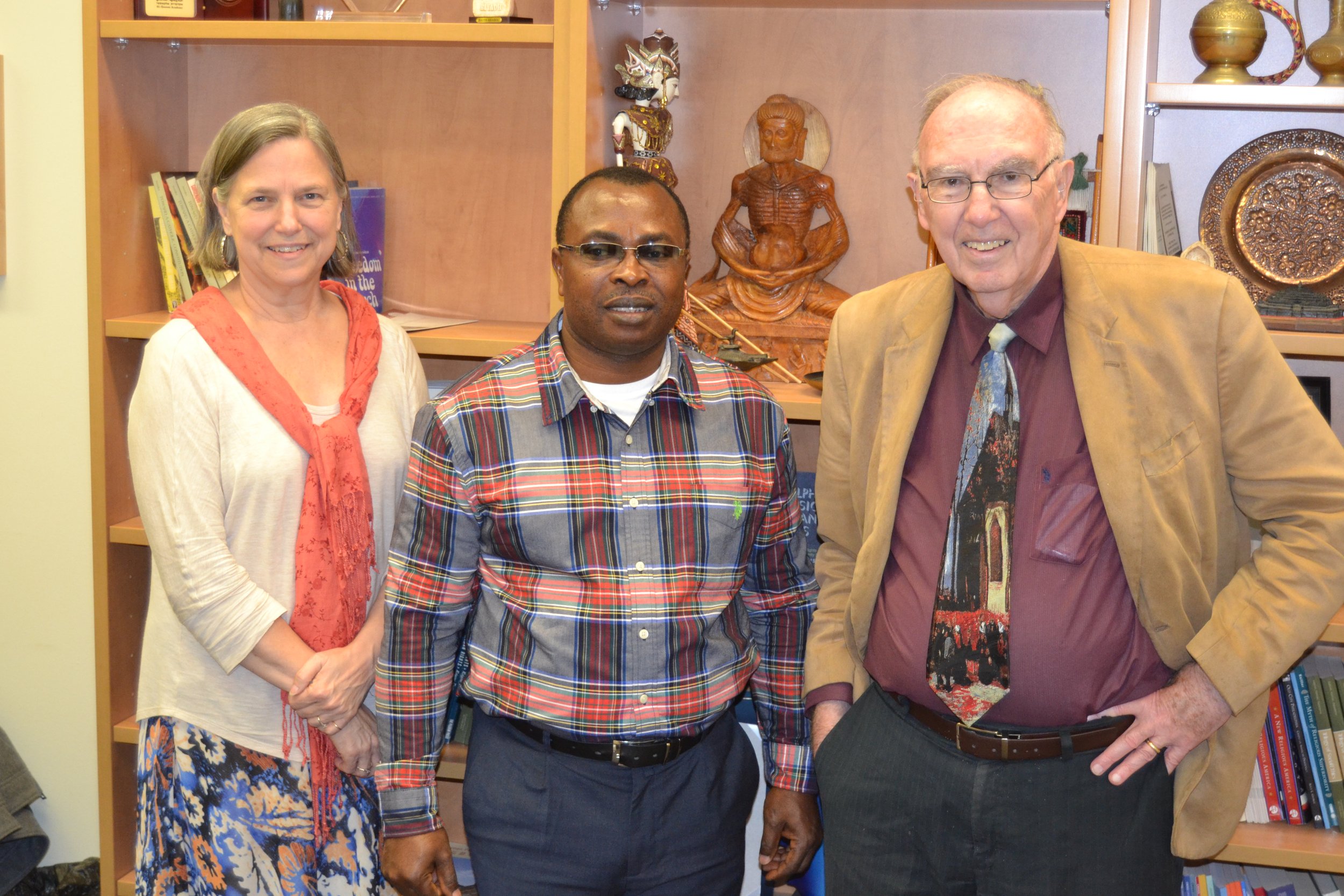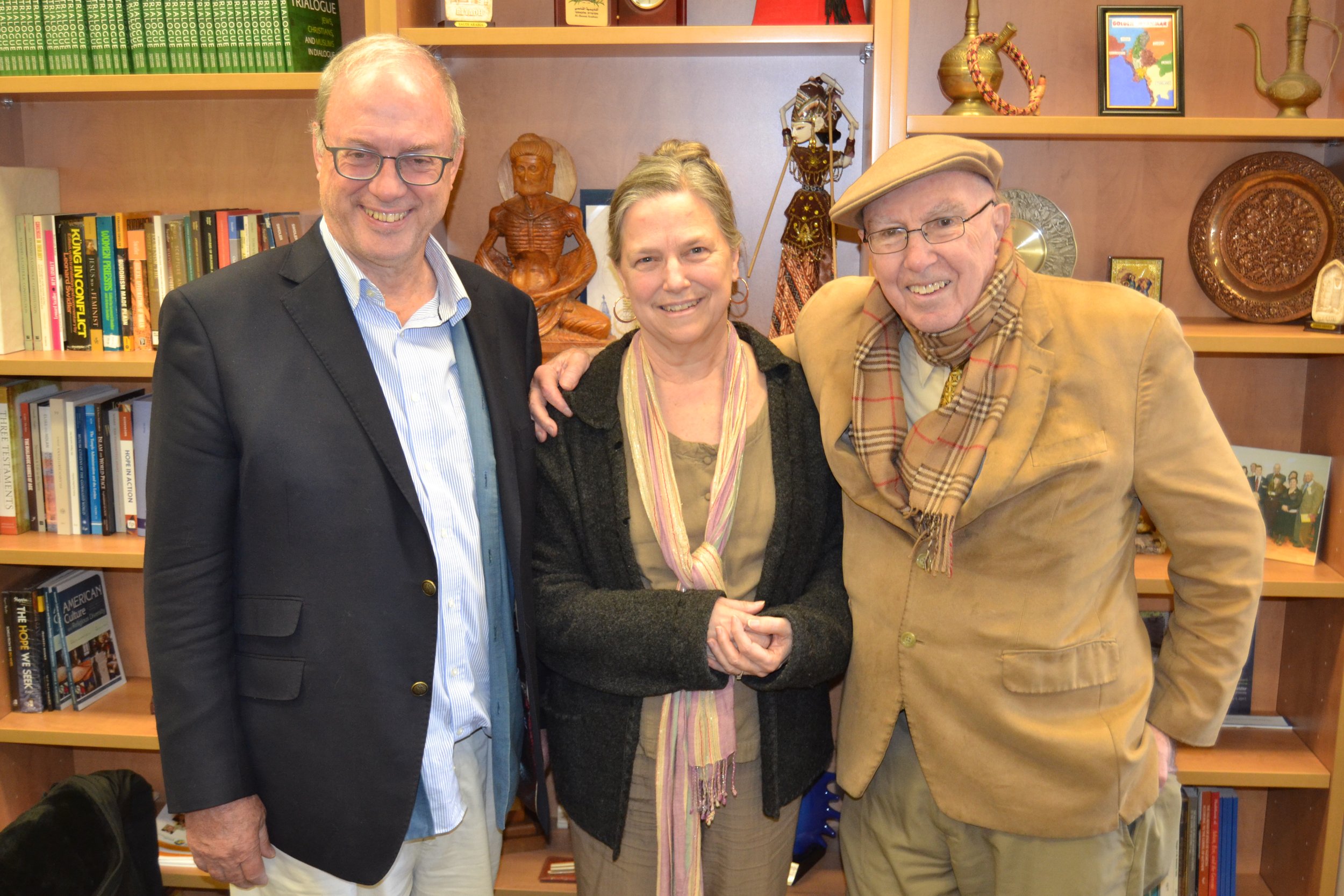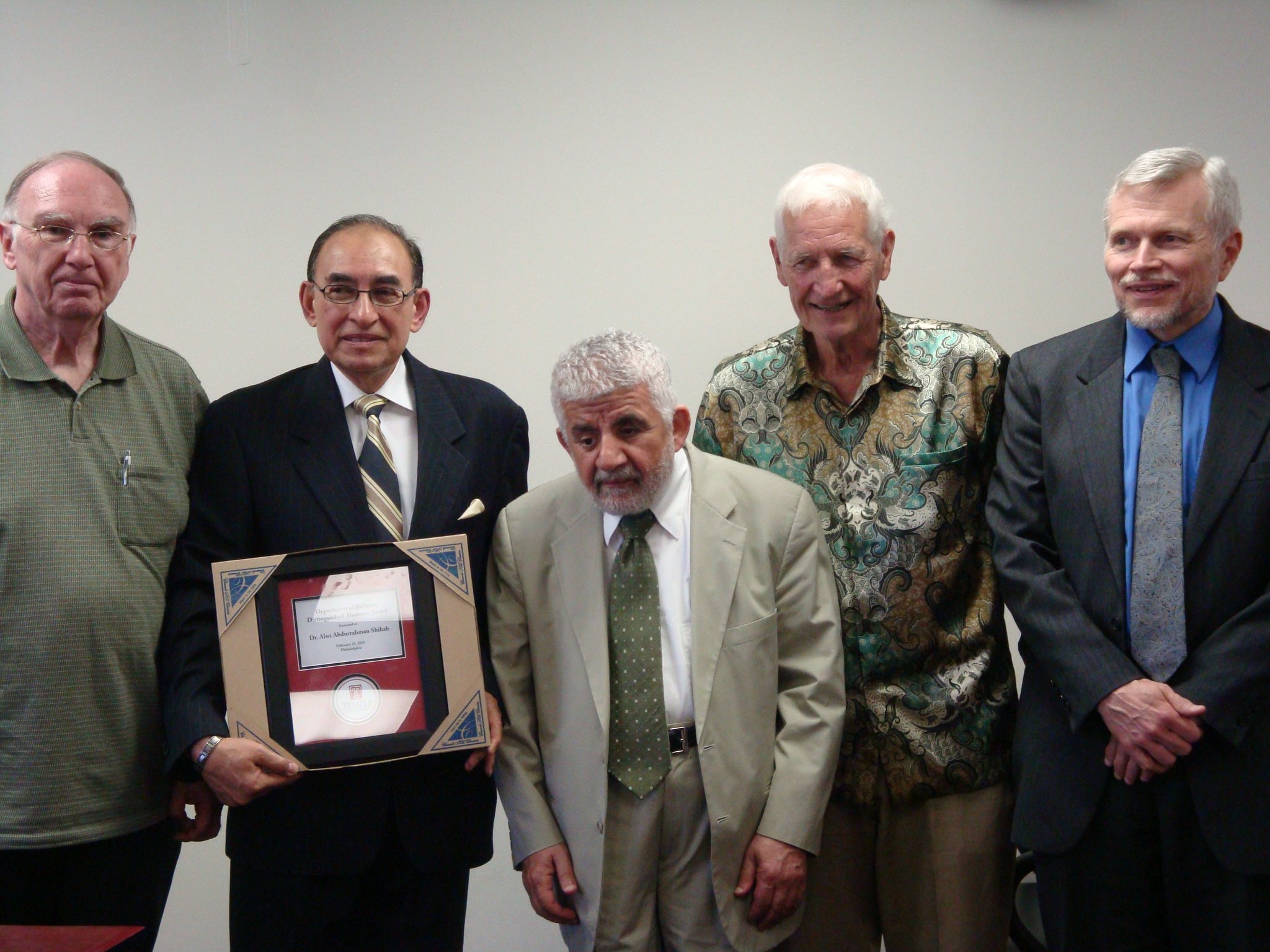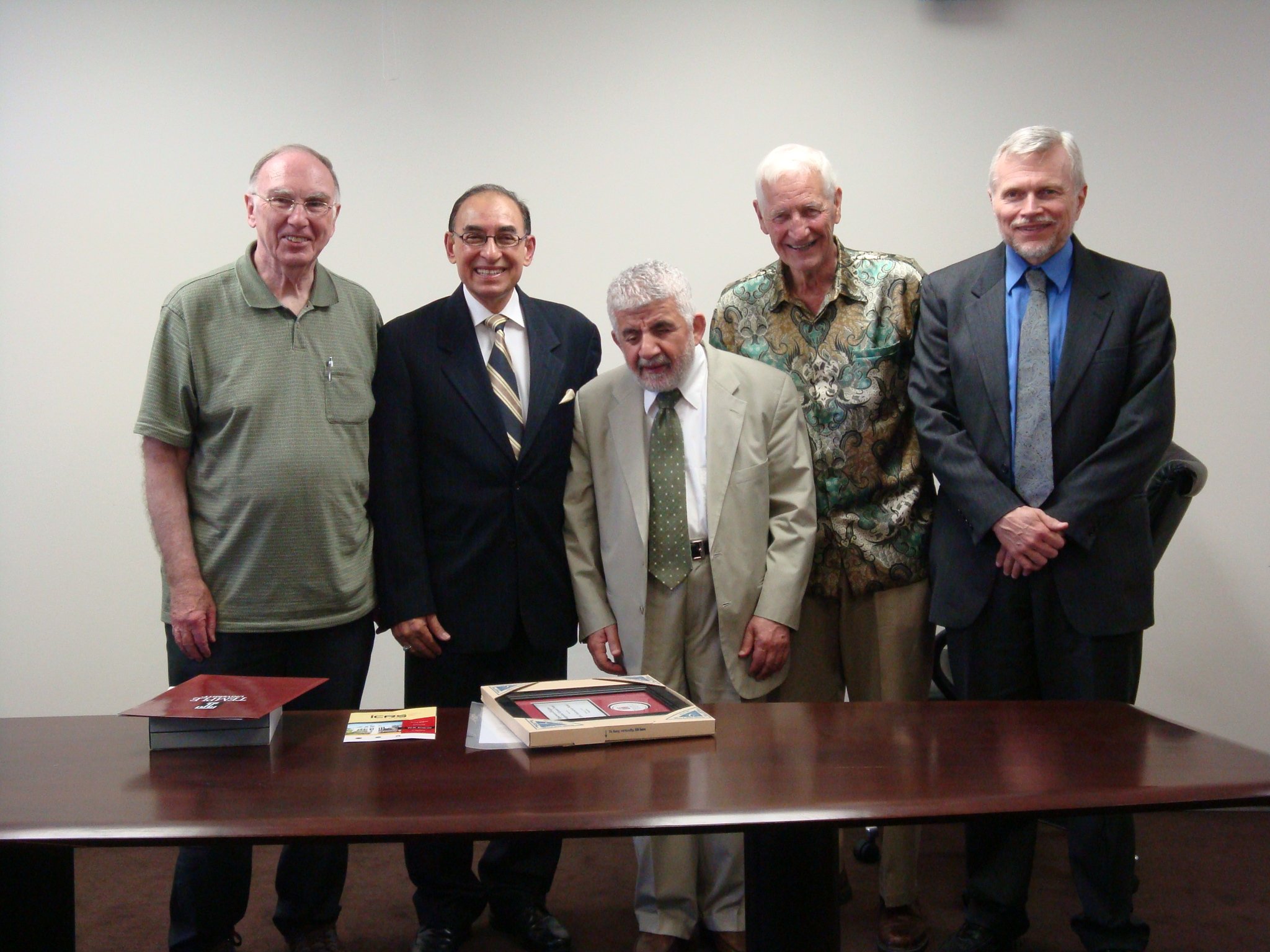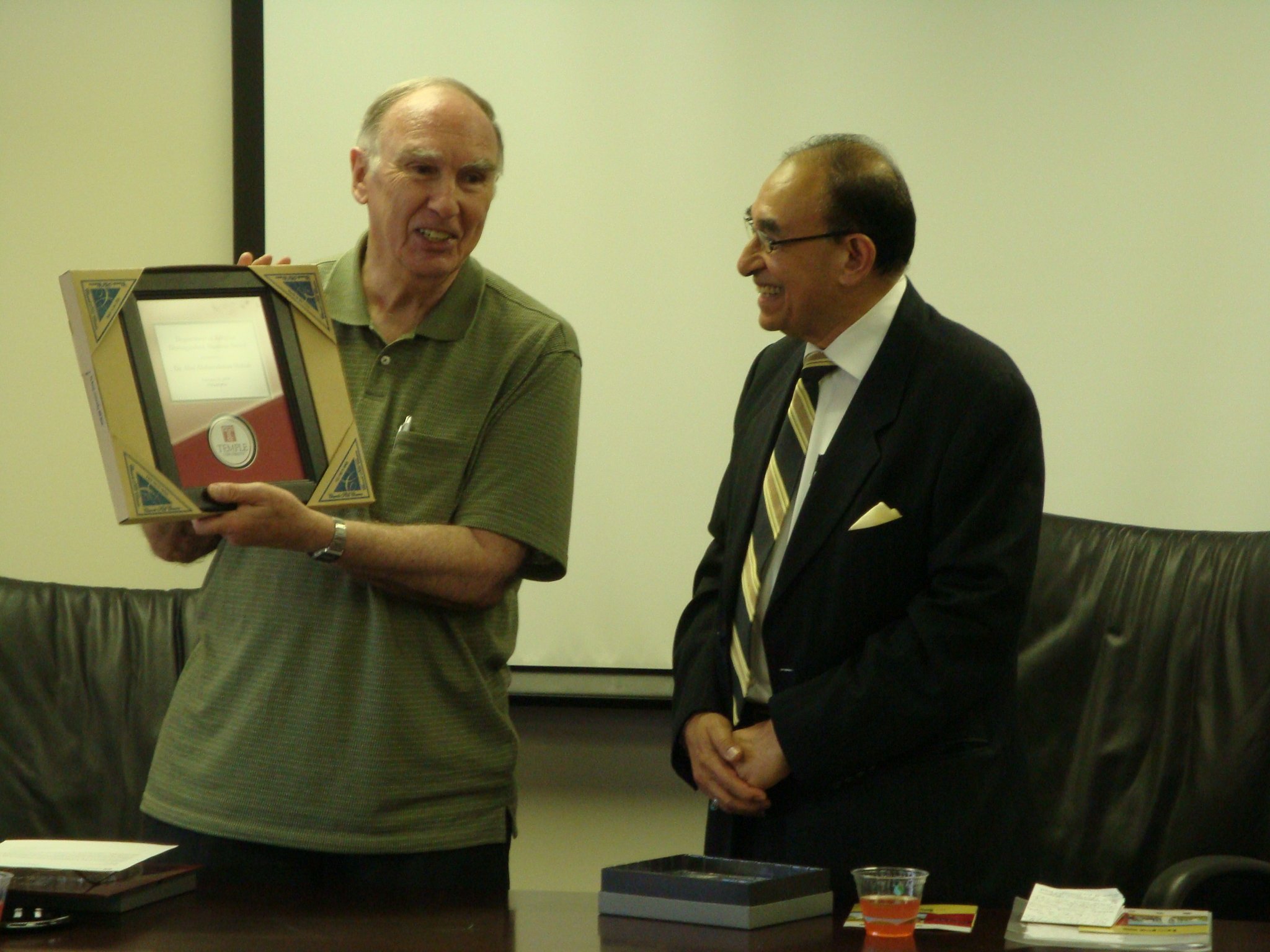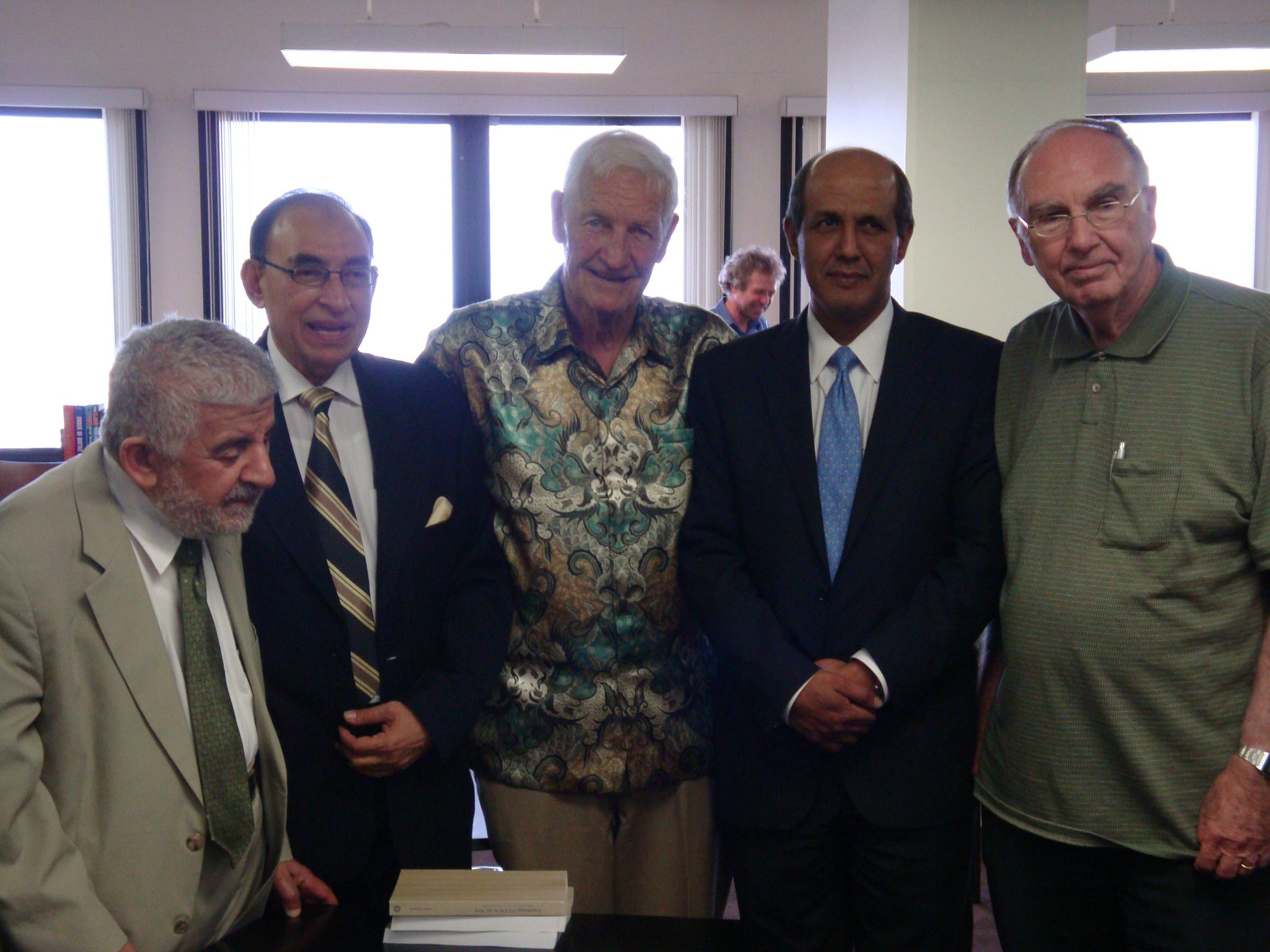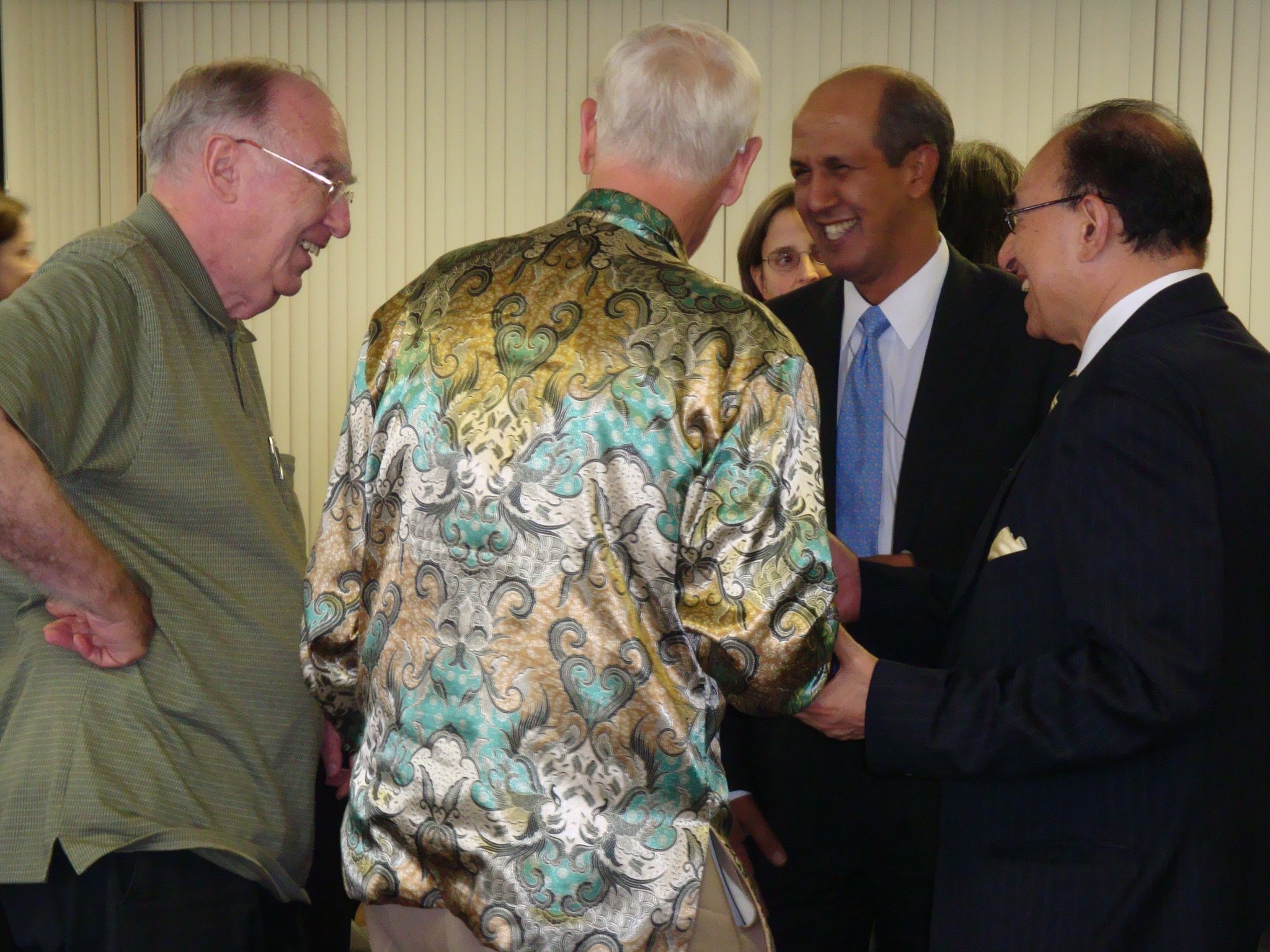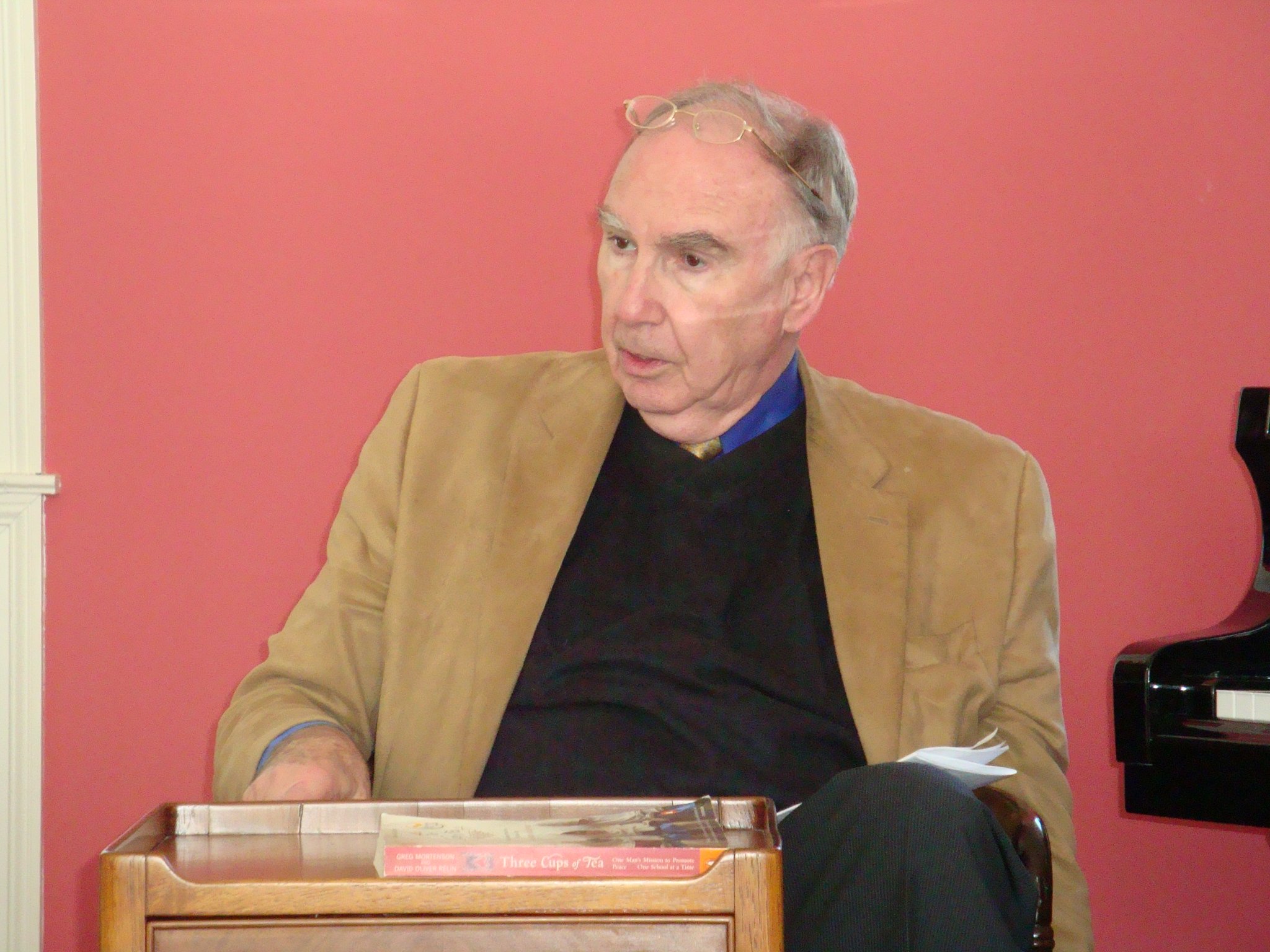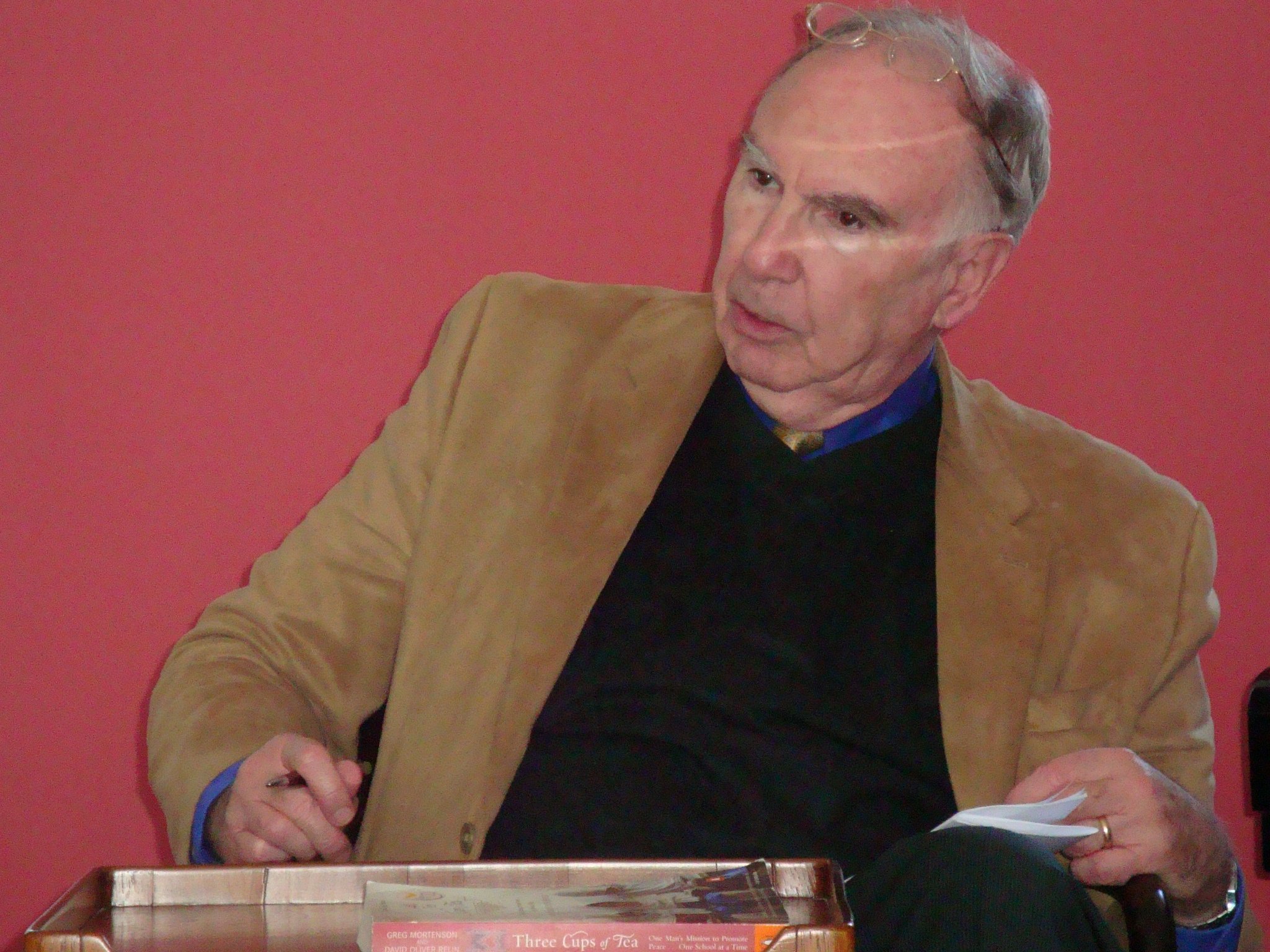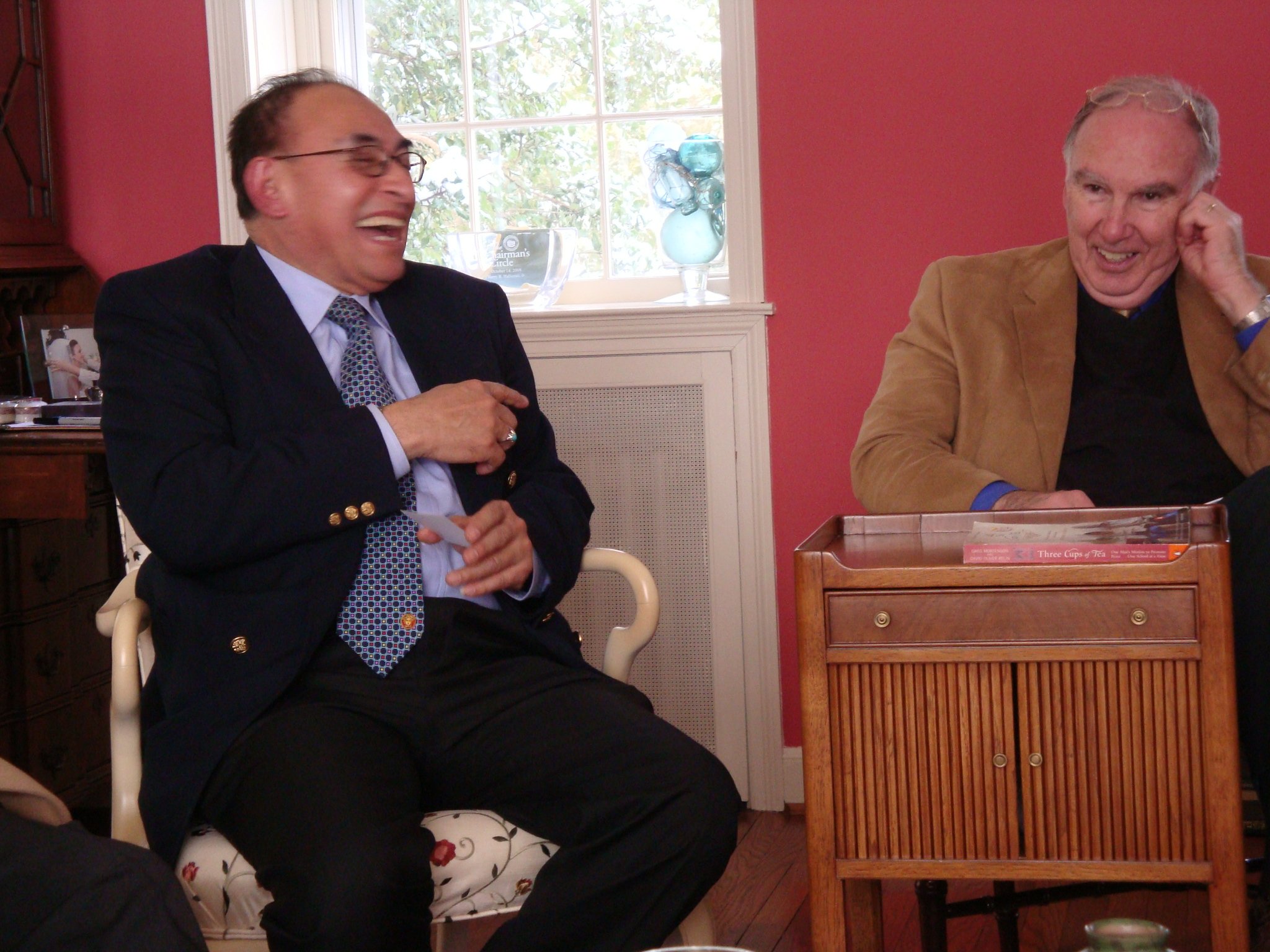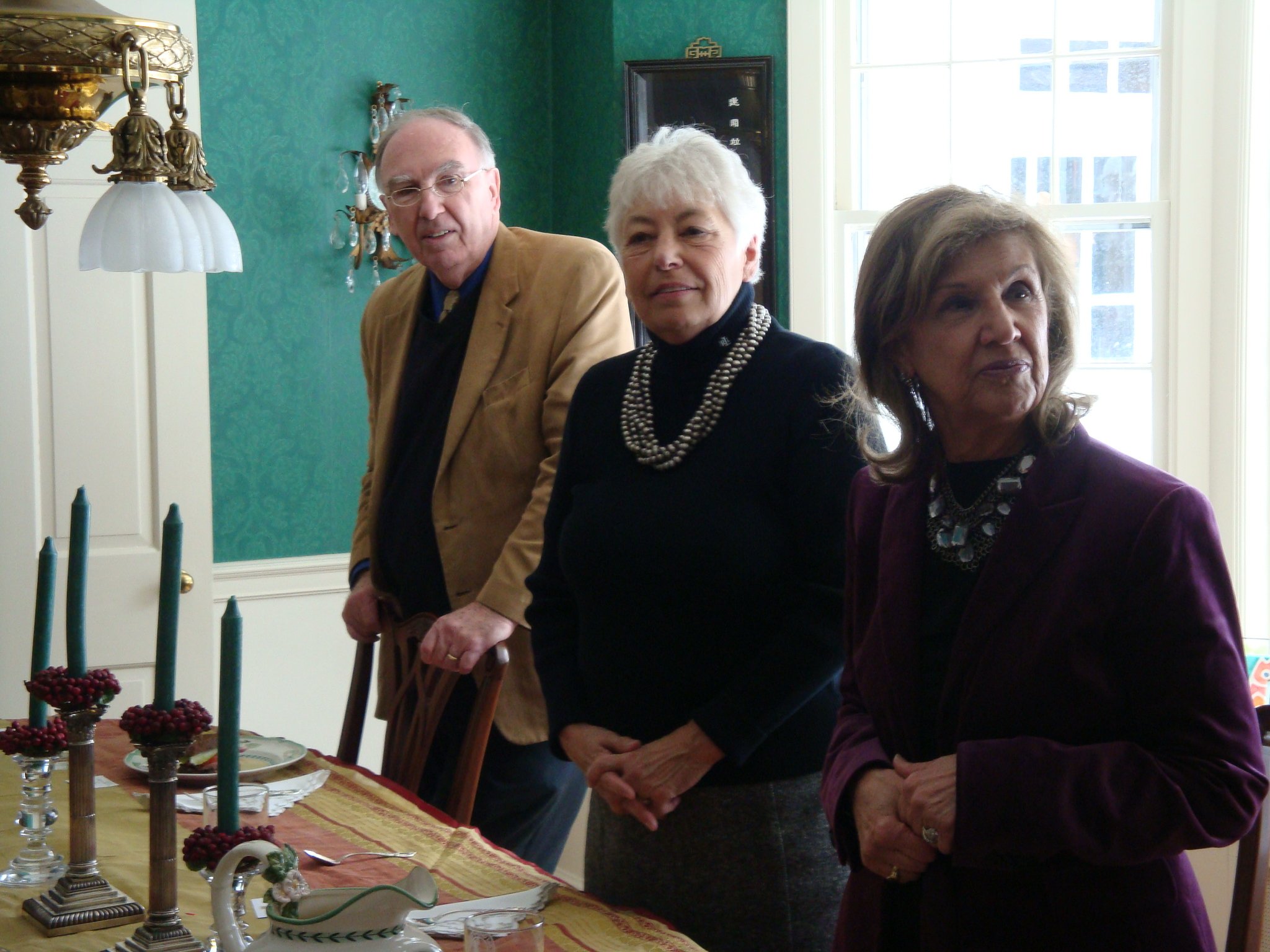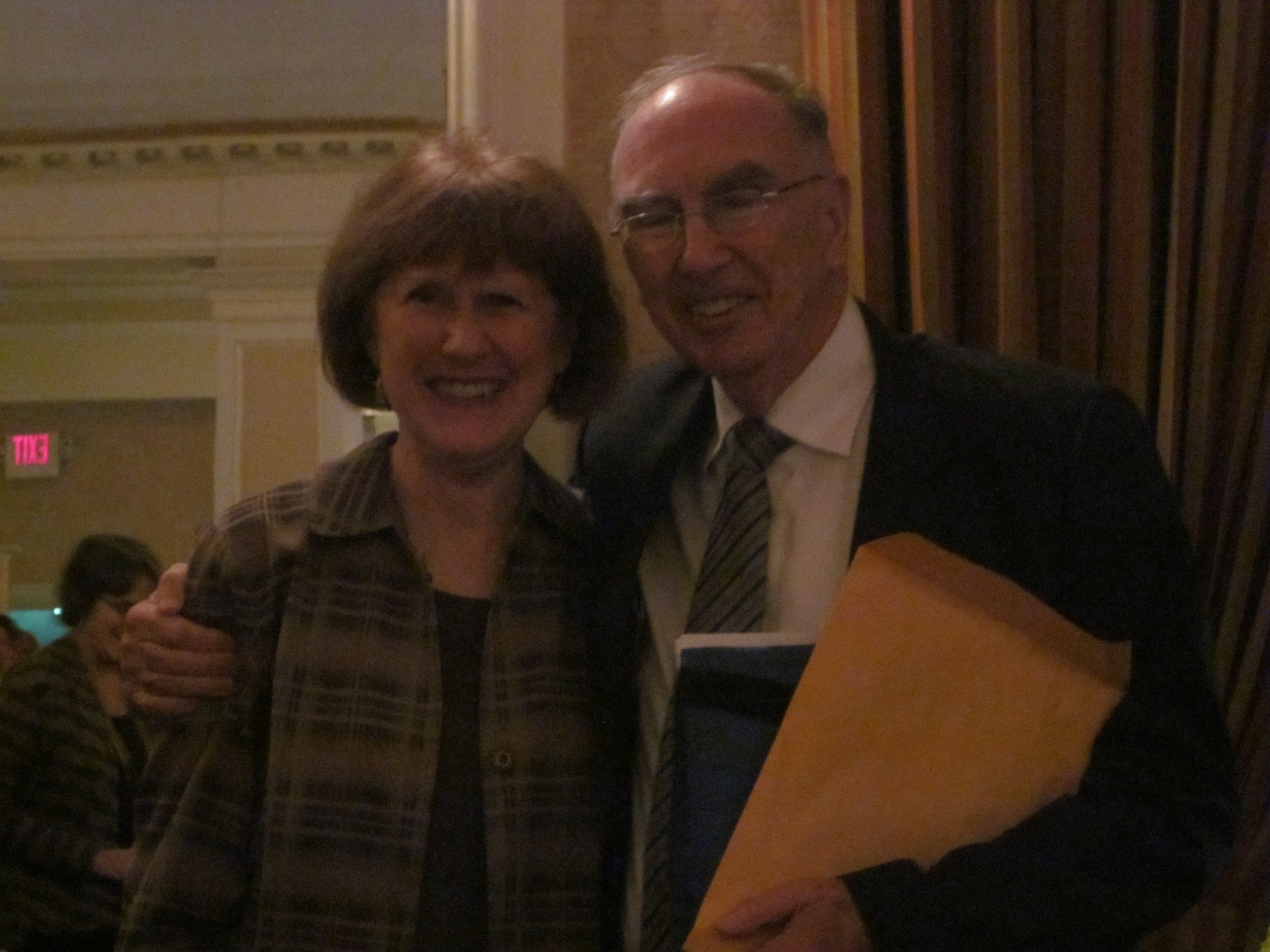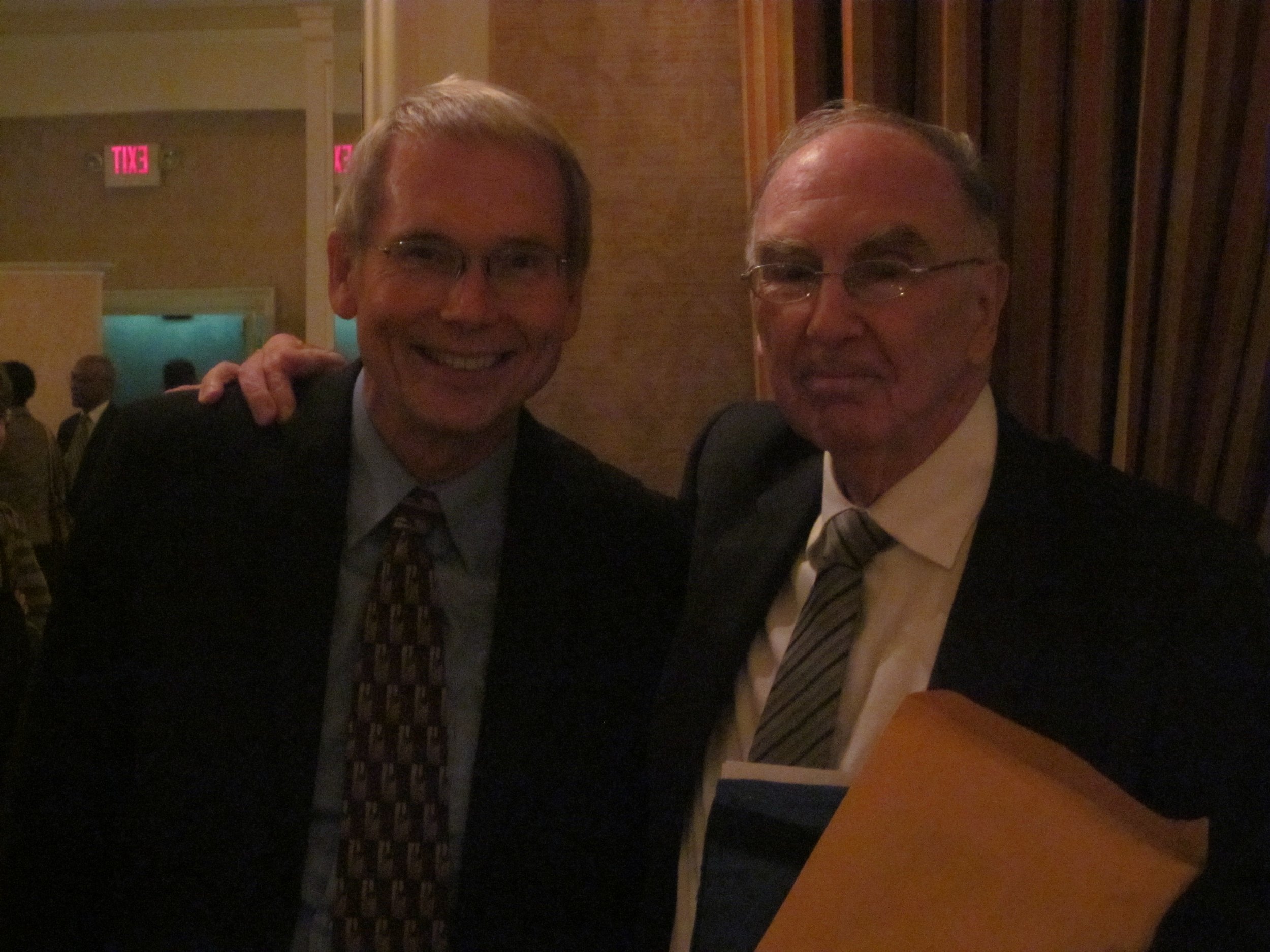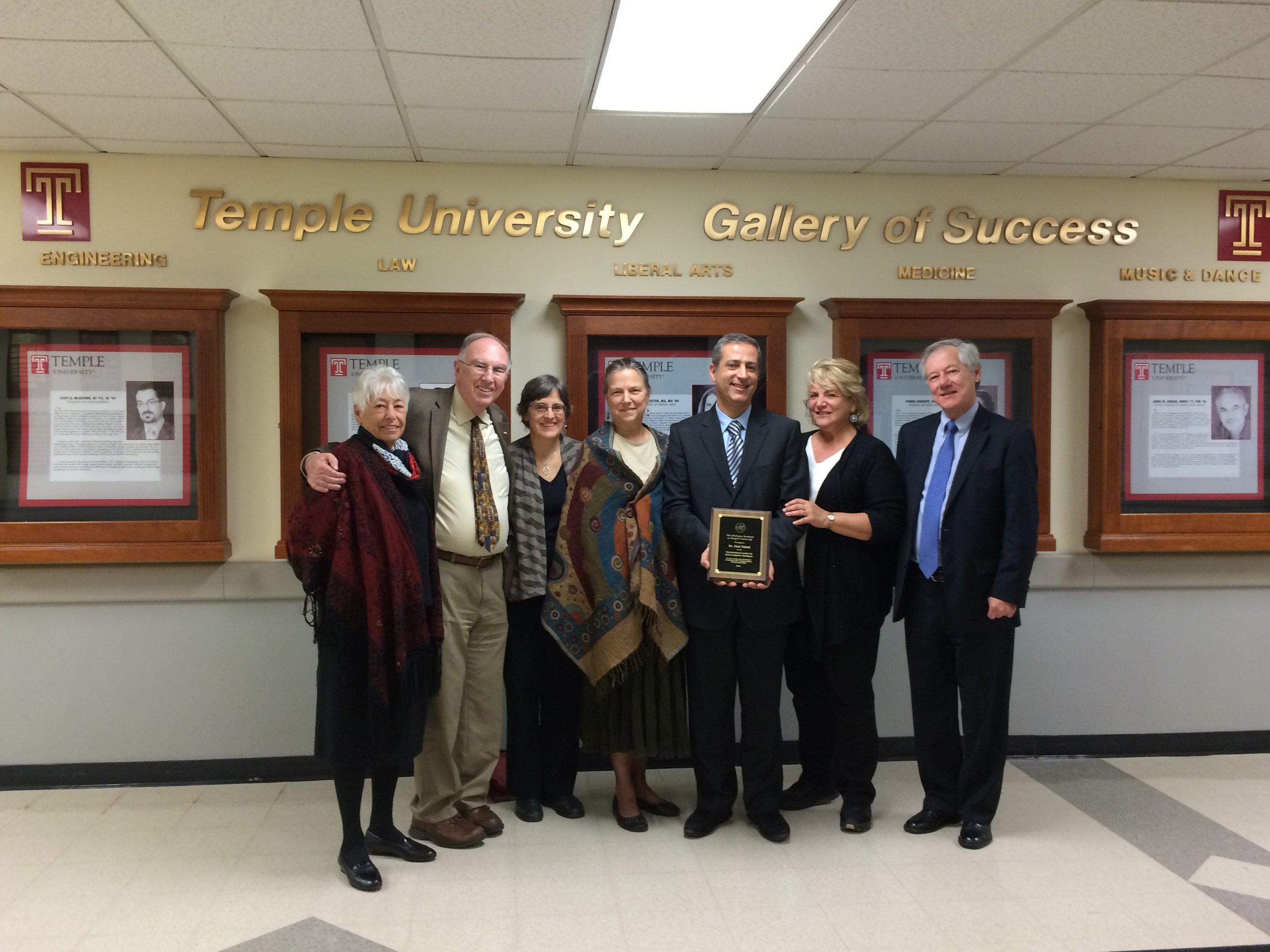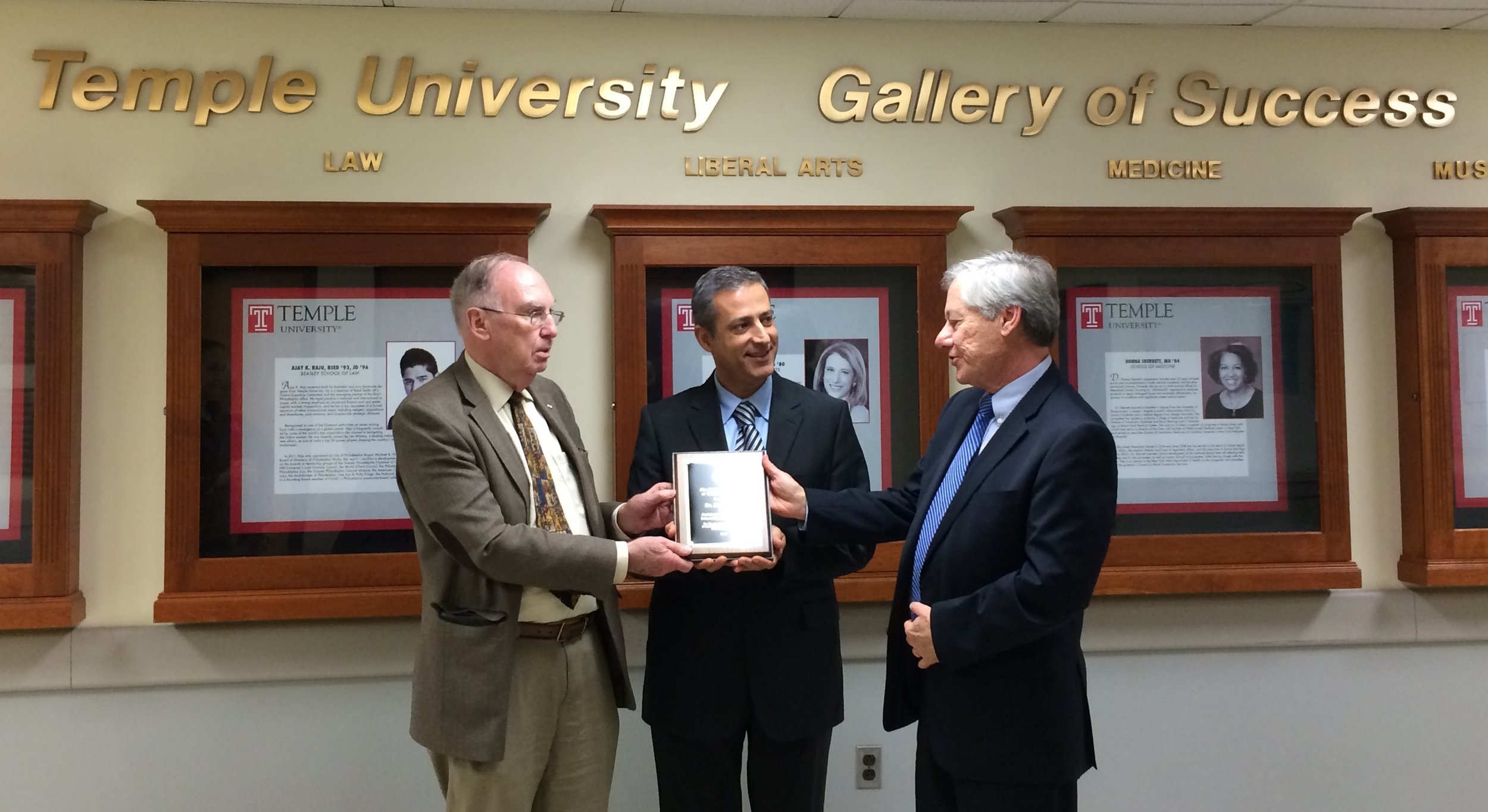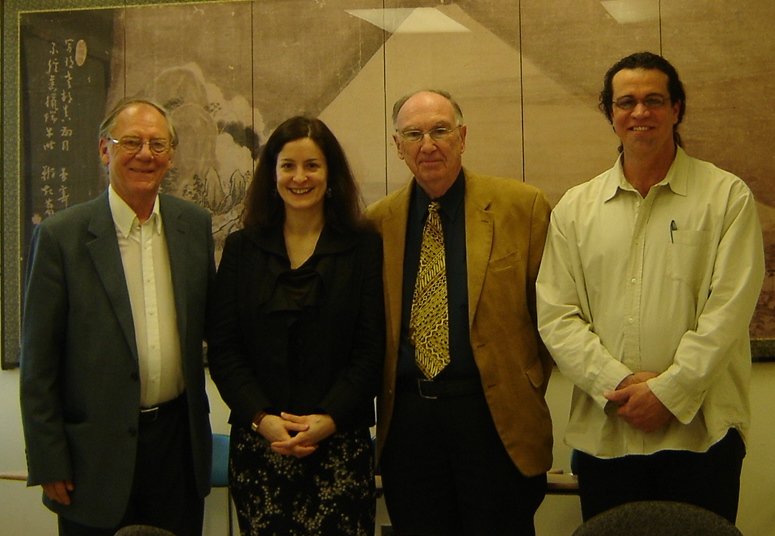Leonard Swidler’s Legacy
Celebrating 56 years of academic scholarship and global dialogue at Temple University and beyond…
Bokin Kim, PhD
President, Won Institute of Graduate Studies, Warminster, PA, USA
Temple University Department of Religion Alumna (1989)
It is a great honor and privilege for me to be a student of Professor Swidler at Dialogue Institute in 2018 as a SUSI Scholar. I recognize and appreciate all the valuable speeches and knowledge he has delivered, that enriched us not only by having new philosophical insights and interpretation of religious pluralism, but also to realize the urgency of interfaith dialogue to prevent religious conflict. Moreover, I learned from him: to live a happy and peaceful life there are no other alternatives to learn more about religious diversity and its pluralistic dynamics.
I cherish the memory of traveling with him particularly in Minnesota. It was a great opportunity to have a one-to-one discussion and to learn more from him. It is worth mentioning here how I was touched and inspired by his inspirational comments, particularly after my presentation at Saint Thomas University in St. Paul. I still remember his whispering voice, “your presentation is the best,” and I learned how to be humble and kind to others. The knowledge, resourcefulness, and vision you have imparted to us is a treasure that will remain in my heart forever. I have been sharing this wisdom with my students and colleagues and I believe it helps to make a better world for all of us. Prof. Swidler, you remain as an excellent role model for us and are a pillar of strength and knowledge.
I would like to express my sincerest gratitude to him for all his exceptional contributions in interfaith dialogue that have become an increasingly important instrument to ensuring peace and harmony for the global world. If there were more people like you, the world would be a much better place.
I wish you good health and lots of fun in retirement!
Fouzia Mannan, PhD
Associate Professor of Sociology, and Dean, Faculty of Liberal Arts and Social Sciences,
East West University, Dhaka, Bangladesh
Dialogue Institute SUSI Scholar Alumna 2018
Seven years before I met Prof. Leonard C. Swidler personally, his Ten Decalogue Dialogue had been on my learning desk to help me grasp the idea of standing appropriately in the dynamic encounters of various religious followers. In 2007, I met Len for the first time at Temple University Department of Religion (TUDOR) as a new PhD student, but he treated me as if we were old friends who hadn’t met for a long time. He named some of his former students, colleagues, and even places he visited in Indonesia to relate us. I took his classes on inter-religious dialogue and joined some of his program in Dialogues Institute where I found the dialogue is his breath. He embodies dialogue in his life in which I learnt the inseparability of theory and real life, ideas and practice, as well as dream, hope, and optimisme. I have to recalled specifically a moment at the end of my study at TUDOR as Len phoned someone, a professional editor at UPen Press to proofread my Thesis and he covered the expenses of the job. It's might be small for him, but for an international student at the end of the seventh years of my study that help was invaluable. All in all, I am Ahmad Rafiq, an Indonesian traditional muslim student who went to Philly will always remember Len as one of those who left a big influence in my life and academic career, the influence which will never fade away, I may call it "jariyah", an act that its good reward will never stop along with all its good impacts. I left the rest to God, Wallahu a'lam.
Ahmad Rafiq, PhD
Senior Lecturer at State Islamic University Sunan Kalijaga, Yogyakarta, Indonesia
Temple University Department of Religion Alumnus (2014)
Amid I. Ismail
Laura H. Carnell professor and dean of the Kornberg School of Dentistry
Board Member (ex-officio), Dialogue Institute at Temple University
Most retirement wishes make statements like, “Cheers to your health and happiness. But over the past 17 years, you’ve been in better shape and more vigorous than me. So, that’s unnecessary.
As for happiness, well, whenever we get together or see each other in passing, you always exude joy and contentment. So, that wish won’t work.
People also say things like, “May you have the time of your life in retirement.” During your near 60 years at Temple, you’ve clearly been doing that.
Heck, you’re doing amazing work right now as an international consultant in Iraq! So, I can’t really say that either!
Or they say, “Here’s to your next adventures in retirement.” ‘Yaa Allah,’ you’ve never waited for retirement to have astonishing adventures.
So, what’s left? Well, there might be one thing left to say: “As you travel the world, may your interfaith work continue to make this planet a better place. It’s been a real blast being your Temple colleague. And when you get to Rio, I’ll be waiting for my invitation and plane ticket! Be well, my friend. And godspeed.
Zain Abdullah
Associate Professor of Religion, Temple University
I am proud to be one of the thousands of students you have taught at Temple University. It was in the late 1960s and you had recently come to Temple and Bernard Phillips’ religion department. You inspired me in the study of religion as my undergraduate major. Vatican II had shaken awake the somnambulant church. We were alive with possibilities for interfaith dialogue and new crossovers between theological reflection and social action. It was great time to be alive, and you were much alive in this moment.
To study religion at Temple combined academic rigor with confessional truth. The faculty taught their subjects with both head and heart. Classrooms were places of encounter, not just for lectures. You flew the flag of the ecumenical movement and preached from the tablets of the ten commandments of dialogue.
I went to China to study and teach in the manner I learned from you. When you came to Temple Tokyo, I visited you in your micro flat. Buddhist-Christian dialogue was then in the front of your mind. You came to China many times, speaking at conferences averring that dialogue could mitigate the clashes of civilizations, if (...a big if) we can rise above the barriers molded by our respective parochial identities. You championed business ethics as China expanded its corporate sector and sought to join the global economy. Our German partners amplified your voice in the concert of reform. Alas, this time has passed, yielding to the harsh combative tones of the present. We do what we can, when we can.
Your alumni in Asia, having risen to academic and governmental posts, gathered around you in a project to advance interfaith dialogue among the ancient religions of the East. When I went to Burma, for example, your former students opened their arms and their houses to me, just as you did for them in their formative years in Philadelphia. Living long in Asia, I often curved home to Philadelphia and to my alma mater Temple. To see you, to learn what you were working on, and to reconnect with the work of your legacy, the Dialogue Institute. When my own Hong Kong - America Center had to close after 30 years, I gave the remainder of its unused funds to DI, so you could keep our dialogue in motion. Our friendship goes back a long way. You epitomized for me a trinity of themes that have shaped your scholarship, your character, and indeed your life. They are: teaching and mentoring the next generation, commitment to the praxis of dialogue, and – underlying it all - your own spiritual journey through the verdant and exotic forests of faith.
This trinity has sustained you in the pursuit of peace and mutual understanding among the great religions of the world. We have been much blessed by your longevity. You have planted many seeds in the world’s forests of faith. Long may they grow and nourish the world.
Thank you.
Glenn Shive, PhD
Former Director of the Hong Kong-American Center at Chinese University of Hong Kong,
Temple University Department of Religion Alumnus (1979).
Leonard was my professor and one of my thesis advisors for my doctorate at Temple University. Of all my teachers in graduate school and rabbinical seminary, Leonard was the one who showed the most interest in my development as a scholar, leader and person. He worked tirelessly to create opportunities for me and others to have life changing opportunities like our trip to Germany in 1980, participation in a scholars’ three-way dialogue over many years and more. He pursued me relentlessly during my ABD years and I can say with confidence that I might never have finished my doctorate were it not for him. Leonard modeled for me the deepest possible commitment to interfaith engagement and made possible a wonderful career for which I am eternally grateful.
Nancy Fuchs-Kreimer, PhD
Associate Professor Emeritus of Religious Studies, Reconstructionist Rabbinical College
Temple University Department of Religion Alumna (1990)
Alfons Teipen
Professor of Religion, Director of Middle East and Islamic Studies Minor
Temple University Department of Religion Alumnus (1998)
I am blessed to have known prof. Len due to the SUSI program I participated in 2019. My first impressions about that genius were really bright and unforgettable. I was fascinated by his professionalism, deep respect to all religions and representatives of those religions, humanism and mentorship skills. His excessive desire to enlighten people in the religious field, his intention to establish interfaith dialogue and unite people preaching different religions under the umbrella of simple principles of dialoguing is so important for humankind. Prof. Len is a scholar of a large scale; I think he belongs to the world and the world needs him. I am so grateful to God for crossing my professional path with Temple University where I met prof. Len! My deepest respect and endless admiration of prof. Len! Long live, dear Professor!
Malahat Veliyeva, PhD
Assistant Professor at Azerbaijan University of Languages
Dialogue Institute SUSI Scholar Alumna 2019
I began my tenure coordinating Catholic-Jewish relations for the U.S. Conference of Catholic Bishops in 1977. Very early on in this position I was contacted by Professor Leonard Swidler, who had an idea for an interreligious encounter that he felt I might be able to facilitate. His notion was to expand the Christian-Jewish dialogues, which had been founded by my predecessor at the USCCB, Fr. Edward Flannery, into a new venture, never tried before, a Jewish/Christian/Muslim trialogue, as I came to call it. I had contacts with Jewish leaders as part of my position with the USCCB. He had key friends in the Muslim community, academia, and community leaders. We met and laid out plans for this historic meeting. It was in fact historic since it was the first such meeting on the national level in the history of our country.
Thanks in great part to Len’s guidance, especially of the Muslim leaders, both male and female, who were involved, and mine with the Jewish participants, the trialogue was a great success. It established a model that was used by groups locally around our country and, indeed, internationally as well. Kudos to Len for this great breakthrough in interreligious relations, which has continued to enrich the history and traditions of the three Abrahamic religions ever since.
Readers of this reflection will already know of the great significance of the Journal of Ecumenical Studies which over the years has published articles that have furthered and deepened interreligious relations, not only between the Abrahamic religions, but others as well. These articles also provide an archive in which scholars today and in the future can learn the history of the dialogues and what they have taught us about not only other religions but our own as well. Len’s influence on interreligious dialogue and on my own work has been not only academic but personal and, as I have noted, communal as well. Mazel Tov to Len on an extraordinary life well lived, a life which will positively influence religious communities for generations to come!
Eugene J. Fisher, PhD;
Distinguished Professor of Theology, Saint Leo University
On how Len Swidler changed my life…
Students so rarely let teachers know how what transpired in their classrooms changed their lives, so I appreciate this opportunity to pay homage to Len and Arlene Swidler and to thank Len in particular for the difference his class made to me as a budding scholar of religion.
I took a course with Len on Inter religious Dialogue at Temple University in 1974. That was a long time ago, and, in truth, I don’t remember much about what went on. I know I met many people from very different backgrounds, and I know we talked about and around our similarities and differences, and I know that I learned the meaning and rules of dialogue as Len was in the process of inventing them.
That all stayed with me, to be sure, and I saw the world in different ways as a result of studying with Len. But of course that was what Len intended to happen. That’s all to the good, but often teachers are responsible for things they might not have intended, and in some ways, that’s more exciting. What Len may not have intended for me was to become the way he really changed my life.
As a young graduate student, I never imagined that I could write a paper for class that would be published. But the paper I wrote for Len, “Jewish Participation in the 1893 World’s Parliament of Religions” became my first published work and encouraged me to continue writing. Maybe he indeed planned for my writing career to begin in his classroom, but whether he did or not, Len gets the credit. As a teacher, he has a unique vision. He inspires his students to do their best by his openness to their ideas and imaginings.
His incredible generosity of spirit, and his willingness to see the potential in every student makes Leonard Swidler a great teacher and a great model for those of us who have followed in his footsteps in the study of religion.
Rebecca Alpert, PhD
Professor of Religion Emerita, Temple University,
Temple University Department of Religion Alumna (1978)
The Dialogue Institute is my favorite place I have ever worked. When I have been in the art studio working with the SUSI international students, in discussion with them or hearing about their projects they are planning when they go back to their home countries, I feel such hope for our world. In a world that is so polarized at every turn, I frequently get discouraged so I need this hope.
I remember when I was working with a young woman who could not go back home after her SUSI time, Len took her in and I did fundraisers to help her go to community college. Hope…
Religion is at the center of so much war, between people personally as well as internationally. Interfaith dialogue gives me hope for the micro and macro situations where hope is a rare commodity.
Dialogue brings hope! Thank you, Len, for your vision!
Jennifer Elam, PhD
Quaker Educator, Psychologist, and Author
My first meeting with Dr Swidler was at the Jakarta Trialogue in 2000 at the invitation of the late President of Indonesia, Abdurrahman Wahid. It was our friendship and shared mission that reunited us at many of the International Scholars Abrahamic Trialogues in Macedonia (2002), St. Joseph's University in Philadelphia (2005), and Amman, Jordan (2008).
I, along with Dr Swidler and Rabbi Irving (Yitz) Greenberg, advocated at the Amman Trialogue for “Envisioning a World without Poverty.” Collectively, we argued that human dignity and welfare should be at the centre of individual and collective concern, resulting in an ethic of solidarity rather than an ethic of exclusion.
At the Annual Conference on Higher Education held in Jordan in September 2001, I deliberated the role of higher education in fostering values that build consensus in divided societies. In this regard, Dr Swidler’s teachings were integral; in particular, his emphasis on the “freedom of religion of conscience” and “moving from the culture of existing and surviving to the culture of Shurah, (i.e., of consultation and participation.”)
Similarly, I attributed much of the inspiration for my March 2003 address at The Interfaith Foundation Conference, held at St George’s House and entitled “Faith and Violence: Christian, Jewish, and Muslim Perspectives” to Dr Swidler.
With the world increasingly shrinking and interconnecting, moving from an “Age of Monologue” to an “Age of Dialogue,” which I refer to as the “Swidler-age,” is as important as ever.
Dr Swidler served as a mentor and an inspiration for us all. It is to him that we owe much gratitude for the progress made in interfaith dialogue and solidarity.
Message of Appreciation from His Royal Highness Prince El Hassan bin Talal, Kingdom of Jordan
I often recall my engagement with Professor Len Swidler with gratitude and fond memories. I met him intellectually when I read his fine works. Greatly inspired by his deep thoughts, I had always looked forward to having the chance to meet him personally. Finally, my dream came true: I met him physically for the first time when I took part in the SUSI program hosted by the Dialogue Institute in Philadelphia in 2017. I was nervous at that occasion. However, his easy-going personality made our first conversation highly enjoyable. Then we continued our conversation at multiple places. With his deeds, he fully exemplifies his teaching that dialogue is highly important and shows us how to conduct a dialogue in a proper way effectively and efficiently with head, heart, and hands.
Simon Yin, PhD
Dialogue Institute SUSI Scholar Alumna 2017
In February, 1943, the U.S. Dorchester sank with four chaplains on board still praying for the soldiers and merchants aboard, having given away their own life jackets. When Len told me this story of a Catholic Father, a Dutch Reformed pastor, a Jewish rabbi, and a Methodist pastor, his voice quivered with respect. I knew I would learn much in working with this teacher and reformer from his past stories and our present programs to promote ecumenical and interreligious dialogue.
His Catholic reform work grew into a Jewish, Christian, Muslim trialogue program over a decade at the Kennedy center with Paul Mojzes, Reuven Firestone, Riffat Hassan and others. He traveled with Paul to Macedonia to help stop religious violence. He traveled to Oberammergau, Germany, with Rachelle Weiman to work with the Passion Play organizers to reshape the play's narrative to say Jews had not killed Jesus/Yeshua. I traveled with him in China and Indonesia where he lectured and we worked with Tu Weiming and the Wahid sisters to implement the ten dialogue principles. All while he taught his classes at Temple and edited and produced the JES with Nancy Krody and Paul Mojzes.
Once we started the SUSI program on religious pluralism in collaboration with the State Department, I watched him spend hours discussing with University students and scholars, loving these aspiring global citizens as a grandfather might. With the Saudi professors who studied with us, contentious arguments taught us all how to agree to disagree, preserving respect and friendship.
Len, I am glad for who you are - an indefatigable and devoted teacher and friend. Or, as you might say, a real mensch!
None of us may have to lose a life as the chaplains did. Still, working with you has deepened and expanded my faith as well as confirmed my love for this good work that you have done so faithfully for so long. Thank you.
Rebecca Mays
Co-Editor and Managing Editor, Journal of Ecumenical Studies
I often think of Dr. Swidler: where he is, what he might be doing, if he is still partaking in the Dialogue Institute’s SUSI programs. Indeed, I fondly recall our chats during my SUSI program and what an extremely humble and selfless individual he is. His dedication to dialogue and to the memory of his late wife are admirable traits that I remember to this day. And who could ever forget his famous saying "No one knows everything about anything; therefore dialogue"?
Christelle Barakat
Fulbright Graduate Student at UNC Greensboro,
Dialogue Institute SUSI Student Alumna 2018
Ellen T. Charry, PhD
Margaret W. Harmon Professor of Systematic Theology Emerita at Princeton Theological Seminary
Temple University Department of Religion Alumna (1978)
I first met Len and Arlene through the Philadelphia Task Force on Women in Religion, then learned that he had an opening for an editorial assistant for J.E.S., where I started in the fall of 1973. Eventually, I became managing editor, retiring at the end of 2018, after 45 years at Temple University! I learned a great deal from the Swidlers, worked with many noted names in the ecumenical/interfaith world, and have continued to work with the Journal in a pro bono capacity as copy editor since retiring, simply because it is so important to the world of intra- and interreligious dialogue, thanks to Len's pioneering work in both areas.
Nancy Krody
Former Managing Editor, Journal of Ecumenical Studies, 1973-2018
I know Prof Len to be a man of heart. His faith is placed in people and in minds. I knew him as I was a SUSI student back in 2017. His enthusiasm for language touched my obsession with meaning. As an interfaith activist and as a scholar he taught us ,among many other things, to listen, think and rethink our position. You’re not always right. Gentle as the breeze and wise like the philosopher he is, he touched my life without knowing it. I learned from him how to sit, chill and have a conversation about the most difficult items, essential as this is, I would say it’s now a lost art. Thank you Prof Len, for everything.
Erman Amer
Dialogue Institute SUSI Student Alumnus 2017
Thank you, Len, for being a real source of inspiration in my life. Since we met in 2008, you gave me the motivation to never give up on interreligious dialogue and on the importance of believing and promoting the dignity of being different. In 2008, I founded in Lebanon an organization that I have called Dialogue for Life and Reconciliation that aims to make interreligious dialogue a real priority in my country. I will never forget the words that you have used during the official launching of the Dialogue for Life and Reconciliation at Notre Dame University - Lebanon, where you insisted that interreligious dialogue is ontologically rooted within the faith of all believers. Yes Len, you are and you will be forever a real mentor and role model for me. Your writings and research, open spirit, and commitment will continue to inspire me so I can ask myself what I can do more to continue spreading the strategic importance of this “cosmic dance of dialogue.” Today I want to use the words of the prophet Isaiah: “I have engraved you on the palms of my hands.”
Ziad Fahed, PhD
Director of University Mission Office & Full Professor at Notre Dame University-Louaize, Lebanon
It was December 2017 when I first met Len. I was with the KAICIID Transatlantic Group for five days at Philadelphia University, where we had an intensive time discussing interreligious and intercultural issues and visiting worship places and grassroots organizations. I was very impressed by Len’s knowledge and wisdom. I tried to grasp every moment to be beside him and listen to him. We had some profound conversations which increased my admiration for him.
Back in Austria I wrote him an email and thanked him for the great time spent with him. Since then, we have become good friends. Len is not only the interreligious dialog expert per se, but also a great feminist. As a Muslim Arab woman living in Austria dealing again and again with the issue of gender equality, I found Len not only as a supporter, but also a good listener whose wisdom helped me to find good answers to my questions. I learned from him that I must enhance my critical thinking and reflective skills in order to be able to think out of the box and broaden my horizon.
Len has friends and admirers from different fields and countries and he tried to connect them with each other so that the impact of the exchange can be evolved. As I told him that I am writing a PhD about Muslim Women in Hadith, he directly connected me with famous Muslim scholars. I was very surprised. I would like here to express my gratitude and appreciation to Len.
Len has retired from Temple University, but I am convinced that his footprints and impressions will continue, both in and outside the US for decades. Nowadays, our world is in urgent need of his concept of intra- and interreligious dialogue and understanding between the different religions and nations. May the Almighty bless him with good health and more years of wisdom!
Mabrouka Rayachi, PhD
Supervisor for Islamic Religious Teachers in Lower Austria in the Ministry of Education & Official Islamic Authority in Austria
Dear Len--it has been such a privilege having you as a faculty colleague in the Religion Department over the past decade, as well as serving on so many PhD student committees with you over all of my years at Temple! I appreciate the remarkable spirit of your academic contributions, and I also have deeply appreciated your warm collegiality through all my years at Temple :). Kudos!!!
Sydney D. White
Associate Professor of Religion, Temple University
I met Len decades ago while working at the Office for Human Development of the Federation of Asian Bishops Conferences. The FABC organized a Consultation on Interfaith dialogue with Islam. Len had a sabbatical year traveling worldwide and we met in Delhi, India. When we visited a Mosque as part of the exposure experience of the Consultation, he explained how interfaith dialogue could be dialogue in life, dialogue in action for justice, dialogue in the experience of transcendence, and theological dialogue. As a Japanese convert to Catholicism, his understanding dialogue was an eye-opener. I was the first Catholic in my Shintoist family and the only Catholic in my neighborhood in Tokyo. I realized my daily life could be a practice of living dialogue. The FABC identified a new way of being Church in Asia as a Church of living dialogue with the poor, cultures, and religions. Dialogue is our way of being Church, and Len’s explanation gave light on how the dialogue was to be value and practice in all the FABC offices of Ecumenical and Interreligious Affairs, Education, Human Development, Laity and Family, Social Communication, Theological Concerns, Education and Faith Formation, Clergy, and Evangelization. After some years, we met again in Rome when SEDOS (Service of Documentation and Study on Global Mission) organized a forum on dialogue with Islam. Len suggested that the Forum’s organizing committee not talk ABOUT dialogue with Islam but dialogue WITH Muslims.
His commitment to a new way of governance in the Catholic Church found an echo in two parishes in Japan, where he visited to give a talk. The parish of Ichikawa, Chiba, and the parish of Kurosaki, Kita-kyushu, came up with the Constitution after organizing a “synodal” process of prayerful reflection and sharing with the parishioners. The question the Parishioners asked themselves was: What kind of Church do we want? Following Len’s suggestion, they consecrated their commitment as the Constitution of the Parish during the Eucharist. The framed Parish Constitution was hung at the entrance of the Church. If a new Parish priest was assigned, they were to talk with him, showing the Constitution. “This is the Church we want. If you disagree, please speak with the Bishop and ask him to change the assignment. “
My experience of accompanying him as his interpreter made me realize he was a real teacher. He knows how to reach out to people. He knows how to present a complex topic in clear and easy-to- understand language. He and Arlene also talked about “Women in the Church” at the Catholic Major Seminary in Tokyo while teaching at Temple University in Japan. Some of the priests, then seminarians still remember the talk to this day.
When Len talks, his words reveal the truth we carry within ourselves. He helps us to go down deep to discover the well we have. We encounter the Spirit that unites, reconciles, and liberates us to be who we are in God’s image.
Sister Filo Hirota
Mercedarian Missionaries of Berriz Catholic Nonviolence Initiative, Executive Committee
Len’s work through the years continues to inspire us in many different ways. I did not have a class with Len, but we had many conversations and his writings motivated me not only to seek ways of engaging others of different religions, but also made me look deeper into my own religious orientation, raise questions and find answers.
Vivienne Angeles, PhD
Associate Professor of Religion (retired), La Salle University
Temple University Department of Religion Alumna (1987)
It has been a distinct honor to have called Leonard Swidler my colleague for so many years. What an amazing career he has had at Temple and beyond! I am in awe of his energy and his vision!
Laura Levitt, PhD
Professor of Religion, Temple University
Len is unique in his tenacity and unwavering dedication to the very idea of diverse understanding of faith and faith communities. As a trailblazer, he was not just a pioneer in inter and intra faith dialogue, he was a catalyst for many others, launching nurturing and sustaining sparks of his work globally. He was an inspiration to me, and to multitudes, creating a movement.
Racelle Weiman, PhD
Center for Judaic, Holocaust, and Peace Studies, Appalachian State University
I learned a lot from the knowledge and modesty of Prof. Swidler. The talks and discussions with him changed a lot of my ideas about dialogue, the universality of values, and coexistence.
Mahfoud Ali Zoui, PhD
Associate Professor of Civilization, Guelma University, Algeria
Dialogue Institute SUSI Scholar Alumnus 2017
Prof. Len is how I addressed him. I met him in late 2010 when I decided to volunteer at Dialogue Institute. I became the Interreligious Program Associate and Editorial Assistant for the Journal of Ecumenical Studies. Our connection still continues even though I returned to Indonesia in early 2015. I admire his scholarship, not only through books, but action! He welcomes everyone from other countries to stay in his house when they need a place to stay. Through this engagement, people know his good heart and dedication as well as hard work. I never thought he would retire because for him, age is only a number. It never stops him to do what he loves to do, teach!
Meliani Murtiningsih
Regional Coordinator Asia for Mission 21 - Indonesia
The celebration of kings, queens and iconic figures in Africa is done with drums and dances. So, from the beautiful hills and valleys; the beaming population of bright faces and hearts of a vibrant continent of Africa, we join the world to celebrate Professor Leonard Joseph Swidler:
- A king of scholarship in religions and theology,
- A king of interfaith scholarship and activism,
- A king of liberal arts – well-known beyond Temple University in America,
- A world-class academic, a teacher of teachers, a mentor of faith leaders and social entrepreneurs including Africans,
- You deserve our drums and dances.
Professor Leonard Joseph Swidler
- On behalf of my colleagues and hundreds of my students in Nigeria and the rest of Black Africa,
- We hold you in high esteem as our intellectual benefactor,
- My contact with you way back in 2016 till today has transformed the course of my scholarship in religion and theology.
- Your books in my university shelves used by my students are constant reminders of who you as an awesome intellectual, and a goodly-directed activist.
- For me, you’re an exemplar of the saying that the purpose of knowledge is not knowledge but action.
- Thank you for setting me on the course to raise a new generation of critical thinkers who engage the domain of religions.
- My colleagues and I have established an interfaith youth academy called RELIGIONNEXT FOUNDATION FOR YOUTH AND PEACEBUILDING, and more recently also created THE PAN AFRICAN DIALOGUE INSTITUTE that seeks to be a leading think tank in Africa engaging in multi-sectoral dialogue to promote a global Africa, sustainable peace and development of the Continent.
These and others have been created bearing a stamp of your scholarship and guidance, and will remain enduring legacies of your mentorship.
- Dear Professor Leonard Joseph Swidler
- Kings in Africa don’t die. They are immortal. Their good words and good deeds make them immortal. Dead or alive, they remain ANCESTORS continually guiding their communities and the universe of beings. SO ARE YOU, AND WILL BE FOR US IN BLACK AFRICA.
- Iseeeeh! (Amen).
This tribute is written by Dr. Effiong Joseph Udo – an academic benefactor and protégé of Prof. Leonard Swidler in Africa. Effiong was born 56 years ago when Len started teaching. Effiong teaches at the Department of Religious and Cultural Studies, and a director at the Centre for Deep Dialogue and Critical Thinking, University of Uyo, Akwa Ibom State, Nigeria.
Effiong Udo, PhD
Senior Lecturer of Religious and Cultural Studies and Deputy Director at the Centre for Deep Dialogue and Critical Thinking, University of Uyo, Akwa Ibom State, Nigeria.
Nobody knows everything about anything therefore Dialogue" a powerful line that is like music to my ear when I first hear it from the Legend himself Prof. Leonard Swidler. I will never forget your teaching for life, Prof. Len. Gazillion thanks for the beautiful contribution to mankind. All the best to your next journey. Enjoy your retirement and be Merry. Congratulations! Godspeed.
Alfred Taboada
SUSI Scholar 2019, STI College Cotabato and Notre Dame University Graduate School
Len, your work has been pioneering in so many ways. You have doggedly pursued dialogue--teaching, speaking, writing, never losing your focus, and never losing hope. I feel fortunate to have studied with you. May your work continue to flourish for years to come.
Rabbi David Klatzker
Temple University Department of Religion Alumna (1987)
All are invited to share written or video reflections, tributes, or by filling out this Google form.
In 2022, donors are invited to contribute in honor of Dr. Len Swidler’s retirement after 56 years at Temple University. Make a gift of $1, $5, $10, or $100 per year of his teaching ($56, $280, $560, or $5600).
Donate your way! Now supporting one-time, monthly, or even quarterly donations!
To donate via check: Make check payable to "Dialogue Institute." If you wish to direct your gift specifically to the Journal of Ecumenical Studies, make a note in the memo line of your check.








